1137 papers:
 CASE-2015-ChenW #design #probability #robust
CASE-2015-ChenW #design #probability #robust- H∞ robust filter design for a class of nonlinear stochastic poisson jump systems (BSC, CFW), pp. 1557–1561.
 CASE-2015-ShiLGS #problem
CASE-2015-ShiLGS #problem- Production planning for a class of batch processing problem (ZS, PL, HG, LS), pp. 1188–1193.
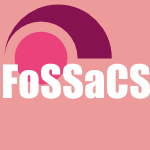 FoSSaCS-2015-ChadhaSVB #automaton #decidability #probability
FoSSaCS-2015-ChadhaSVB #automaton #decidability #probability- Decidable and Expressive Classes of Probabilistic Automata (RC, APS, MV, YB), pp. 200–214.
 FoSSaCS-2015-Cotton-BarrattH #automaton #decidability #memory management #ml
FoSSaCS-2015-Cotton-BarrattH #automaton #decidability #memory management #ml- Fragments of ML Decidable by Nested Data Class Memory Automata (CCB, DH, ASM, CHLO), pp. 249–263.
 ICSME-2015-OyetoyanCT
ICSME-2015-OyetoyanCT- A decision support system to refactor class cycles (TDO, DSC, CTN), pp. 231–240.
 ICSME-2015-Tymchuk #quality
ICSME-2015-Tymchuk #quality- Treating software quality as a first-class entity (YT), pp. 594–597.
 ICSME-2015-ValeM #architecture #dynamic analysis #mining #named #using
ICSME-2015-ValeM #architecture #dynamic analysis #mining #named #using- Keecle: Mining key architecturally relevant classes using dynamic analysis (LdNV, MdAM), pp. 566–570.
 SANER-2015-Lorenz #inheritance #quality #specification
SANER-2015-Lorenz #inheritance #quality #specification- The impact of column-orientation on the quality of class inheritance mapping specifications (ML), p. 597.
 SANER-2015-SilvaRVBA #javascript #question
SANER-2015-SilvaRVBA #javascript #question- Does JavaScript software embrace classes? (LS, MR, MTV, AB, NA), pp. 73–82.
 SCAM-2015-RaposSAC #named #navigation
SCAM-2015-RaposSAC #named #navigation- SimNav: Simulink navigation of model clone classes (EJR, AS, MHA, JRC), pp. 241–246.
 PLDI-2015-ZhangMVJ #fault
PLDI-2015-ZhangMVJ #fault- Diagnosing type errors with class (DZ, ACM, DV, SLPJ), pp. 12–21.
 DLT-2015-BealH #finite
DLT-2015-BealH #finite- Deciding Proper Conjugacy of Classes of One-Sided Finite-Type-Dyck Shifts (MPB, PH), pp. 167–178.
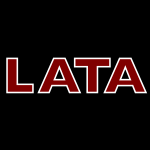 LATA-2015-AmanoS #bound #multi #polynomial
LATA-2015-AmanoS #bound #multi #polynomial- A Nonuniform Circuit Class with Multilayer of Threshold Gates Having Super Quasi Polynomial Size Lower Bounds Against NEXP (KA, AS), pp. 461–472.
 LATA-2015-AnselmoGM #2d #decidability
LATA-2015-AnselmoGM #2d #decidability- Structure and Measure of a Decidable Class of Two-dimensional Codes (MA, DG, MM), pp. 315–327.
 LATA-2015-Cotton-BarrattMO #automaton #memory management
LATA-2015-Cotton-BarrattMO #automaton #memory management- Weak and Nested Class Memory Automata (CCB, ASM, CHLO), pp. 188–199.
 LATA-2015-MauriLMPZ #bibliography #complexity
LATA-2015-MauriLMPZ #bibliography #complexity- Complexity Classes for Membrane Systems: A Survey (GM, AL, LM, AEP, CZ), pp. 56–69.
 ICFP-2015-LeF #continuation #transaction
ICFP-2015-LeF #continuation #transaction- Partial aborts for transactions via first-class continuations (ML, MF), pp. 230–242.
 ICFP-2015-Rossberg #ml #named
ICFP-2015-Rossberg #ml #named- 1ML — core and modules united (F-ing first-class modules) (AR), pp. 35–47.
 CSCW-2015-KulkarniCKBK #distance #matter #named
CSCW-2015-KulkarniCKBK #distance #matter #named- Talkabout: Making Distance Matter with Small Groups in Massive Classes (CK, JC, YK, MSB, SRK), pp. 1116–1128.
 HIMI-IKC-2015-AraiTA #development #learning
HIMI-IKC-2015-AraiTA #development #learning- Development of a Learning Support System for Class Structure Mapping Based on Viewpoint (TA, TT, TA), pp. 285–293.
 HIMI-IKD-2015-GilbertZ #information management #towards #wiki
HIMI-IKD-2015-GilbertZ #information management #towards #wiki- Towards a Class-Based Model of Information Organization in Wikipedia (MG, MZ), pp. 301–309.
 ICML-2015-MenonROW #estimation #learning
ICML-2015-MenonROW #estimation #learning- Learning from Corrupted Binary Labels via Class-Probability Estimation (AKM, BvR, CSO, BW), pp. 125–134.
 ICML-2015-NarasimhanK0 #metric #optimisation #performance
ICML-2015-NarasimhanK0 #metric #optimisation #performance- Optimizing Non-decomposable Performance Measures: A Tale of Two Classes (HN, PK, PJ), pp. 199–208.
 ICML-2015-PhamRFA #learning #multi #novel
ICML-2015-PhamRFA #learning #multi #novel- Multi-instance multi-label learning in the presence of novel class instances (ATP, RR, XZF, JPA), pp. 2427–2435.
 SIGIR-2015-WangSWZSLL #cumulative #recommendation
SIGIR-2015-WangSWZSLL #cumulative #recommendation- An Entity Class-Dependent Discriminative Mixture Model for Cumulative Citation Recommendation (JW, DS, QW, ZZ, LS, LL, CYL), pp. 635–644.
 MoDELS-J-2011-BavotaGOLTGC15 #analysis #diagrams #fine-grained #maintenance #uml
MoDELS-J-2011-BavotaGOLTGC15 #analysis #diagrams #fine-grained #maintenance #uml- A fine-grained analysis of the support provided by UML class diagrams and ER diagrams during data model maintenance (GB, CG, RO, ADL, GT, MG, JACL), pp. 287–306.
 MoDELS-J-2011-BavotaGOLTGC15 #analysis #diagrams #fine-grained #maintenance #uml
MoDELS-J-2011-BavotaGOLTGC15 #analysis #diagrams #fine-grained #maintenance #uml- A fine-grained analysis of the support provided by UML class diagrams and ER diagrams during data model maintenance (GB, CG, RO, ADL, GT, MG, JACL), pp. 287–306.
 GPCE-2015-ScherrC #domain-specific language #embedded #staged
GPCE-2015-ScherrC #domain-specific language #embedded #staged- Almost first-class language embedding: taming staged embedded DSLs (MS, SC), pp. 21–30.
 SAC-2015-BourdilBDV #petri net #symmetry
SAC-2015-BourdilBDV #petri net #symmetry- Symmetry reduced state classes for time petri nets (PAB, BB, SDZ, FV), pp. 1751–1758.
 SAC-2015-PapeBH #adaptation #data type #execution #optimisation #performance
SAC-2015-PapeBH #adaptation #data type #execution #optimisation #performance- Adaptive just-in-time value class optimization: transparent data structure inlining for fast execution (TP, CFB, RH), pp. 1970–1977.
 SAC-2015-QueirozH #capacity
SAC-2015-QueirozH #capacity- Translating full duplexity into capacity gains for the high-priority traffic classes of IEEE 802.11 (SQ, RH), pp. 634–639.
 SAC-2015-SantosM #detection
SAC-2015-SantosM #detection- Exploring decision drivers on god class detection in three controlled experiments (JAMS, MGM), pp. 1472–1479.
 ESEC-FSE-2015-AllamanisBBS
ESEC-FSE-2015-AllamanisBBS- Suggesting accurate method and class names (MA, ETB, CB, CAS), pp. 38–49.
 ICSE-v2-2015-AndersonHVWCBG #student
ICSE-v2-2015-AndersonHVWCBG #student- CS/SE Instructors Can Improve Student Writing without Reducing Class Time Devoted to Technical Content: Experimental Results (PVA, SH, MAV, DW, MC, JEB, GCG), pp. 455–464.
 ICSE-v2-2015-GuerroujBR #documentation
ICSE-v2-2015-GuerroujBR #documentation- Leveraging Informal Documentation to Summarize Classes and Methods in Context (LG, DB, PCR), pp. 639–642.
 ICSE-v2-2015-RaudjarvG #android #runtime
ICSE-v2-2015-RaudjarvG #android #runtime- JRebel.Android: Runtime Class- and Resource Reloading for Android (RR, ARG), pp. 741–744.
 ICLP-J-2015-FichteTW #logic programming #source code
ICLP-J-2015-FichteTW #logic programming #source code- Dual-normal logic programs — the forgotten class (JKF, MT, SW), pp. 495–510.
 LICS-2015-CarvalhoMM #algebra #complexity
LICS-2015-CarvalhoMM #algebra #complexity- From Complexity to Algebra and Back: Digraph Classes, Collapsibility, and the PGP (CC, FRM, BM), pp. 462–474.
 TAP-2015-HubnerHP #equivalence #evaluation #novel #testing
TAP-2015-HubnerHP #equivalence #evaluation #novel #testing- Experimental Evaluation of a Novel Equivalence Class Partition Testing Strategy (FH, WlH, JP), pp. 155–172.
 ECSA-2014-XuL #architecture #co-evolution #synthesis
ECSA-2014-XuL #architecture #co-evolution #synthesis- Co-evolving Pattern Synthesis and Class Responsibility Assignment in Architectural Synthesis (YX, PL), pp. 74–81.
 ASE-2014-ArcuriFG #automation #dependence #generative #testing
ASE-2014-ArcuriFG #automation #dependence #generative #testing- Automated unit test generation for classes with environment dependencies (AA, GF, JPG), pp. 79–90.
 CSEET-2014-Koolmanojwong #re-engineering #risk management
CSEET-2014-Koolmanojwong #re-engineering #risk management- Top-10 risks in real-client software engineering class projects (SK), pp. 201–202.
 CSEET-2014-NordioEMAPNS #coordination #distributed #education #empirical #re-engineering
CSEET-2014-NordioEMAPNS #coordination #distributed #education #empirical #re-engineering- An experiment on teaching coordination in a globally distributed software engineering class (MN, HCE, BM, NA, RP, EDN, AS), pp. 109–118.
 ITiCSE-2014-KothiyalMI #learning #question #scalability
ITiCSE-2014-KothiyalMI #learning #question #scalability- Think-pair-share in a large CS1 class: does learning really happen? (AK, SM, SI), pp. 51–56.
 ITiCSE-2014-SungS #development #mobile
ITiCSE-2014-SungS #development #mobile- Mobile application development classes for the mobile era (KS, AS), pp. 141–146.
 FASE-2014-FahrenbergALW #diagrams #difference
FASE-2014-FahrenbergALW #diagrams #difference- Sound Merging and Differencing for Class Diagrams (UF, MA, AL, AW), pp. 63–78.
 FASE-2014-Zaharieva-StojanovskiH #concurrent #invariant #source code #verification
FASE-2014-Zaharieva-StojanovskiH #concurrent #invariant #source code #verification- Verifying Class Invariants in Concurrent Programs (MZS, MH), pp. 230–245.
 CSMR-WCRE-2014-BavotaOLMGA #nash #refactoring
CSMR-WCRE-2014-BavotaOLMGA #nash #refactoring- In medio stat virtus: Extract class refactoring through nash equilibria (GB, RO, ADL, AM, YGG, GA), pp. 214–223.
 ICPC-2014-ThungLOC #classification #design #diagrams #metric #network #using
ICPC-2014-ThungLOC #classification #design #diagrams #metric #network #using- Condensing class diagrams by analyzing design and network metrics using optimistic classification (FT, DL, MHO, MRVC), pp. 110–121.
 PLDI-2014-DeVitoRFAH #generative #runtime #using
PLDI-2014-DeVitoRFAH #generative #runtime #using- First-class runtime generation of high-performance types using exotypes (ZD, DR, MF, AA, PH), p. 11.
 STOC-2014-GargMV #algorithm #equilibrium
STOC-2014-GargMV #algorithm #equilibrium- Dichotomies in equilibrium computation, and complementary pivot algorithms for a new class of non-separable utility functions (JG, RM, VVV), pp. 525–534.
 DLT-J-2013-AnselmoGM14 #2d #decidability
DLT-J-2013-AnselmoGM14 #2d #decidability- Prefix Picture codes: a Decidable class of Two-Dimensional codes (MA, DG, MM), pp. 1017–1032.
 LATA-2014-FormentiHKP #complexity
LATA-2014-FormentiHKP #complexity- ω-rational Languages: High Complexity Classes vs. Borel Hierarchy (EF, MH, MK, JP), pp. 372–383.
 IFM-2014-AbbasBR #modelling #uml
IFM-2014-AbbasBR #modelling #uml- Modeling UML Template Classes with FoCaLiZe (MA, CBBY, RR), pp. 87–102.
 ICGT-2014-RidderR #morphism #problem
ICGT-2014-RidderR #morphism #problem- The Subgraph Isomorphism Problem on a Class of Hyperedge Replacement Languages (HNdR, NdR), pp. 192–206.
 DUXU-DP-2014-Kumar #enterprise #experience #user interface
DUXU-DP-2014-Kumar #enterprise #experience #user interface- Humanizing the Enterprise — Delivering Best in Class User Experience to Business Software Users (JK), pp. 61–70.
 HIMI-DE-2014-KawabeYAW #metric #student
HIMI-DE-2014-KawabeYAW #metric #student- Measurement of Hand Raising Actions to Support Students’ Active Participation in Class (RK, MY, SA, TW), pp. 199–207.
 LCT-TRE-2014-IshikawaAKSTD #learning #process #self #student
LCT-TRE-2014-IshikawaAKSTD #learning #process #self #student- Sustaining Outside-of-Class CALL Activities by Means of a Student Self-Evaluation System in a University Blended Learning EFL Course (YI, RAY, MK, CS, YT, MD), pp. 146–154.
 ICEIS-v2-2014-MeloS #design #modelling #uml #using
ICEIS-v2-2014-MeloS #design #modelling #uml #using- Model-driven Structural Design of Software-intensive Systems Using SysML Blocks and UML Classes (MdSM, MSS), pp. 193–200.
 ICEIS-v2-2014-PereiraZS #concept analysis
ICEIS-v2-2014-PereiraZS #concept analysis- Extraction of Classes Through the Application of Formal Concept Analysis (DP, LZ, MS), pp. 275–282.
 ICEIS-v2-2014-XuLL #design #estimation #industrial #knowledge-based
ICEIS-v2-2014-XuLL #design #estimation #industrial #knowledge-based- Knowledge-based Design Cost Estimation Through Extending Industry Foundation Classes (SX, KL, WL), pp. 161–168.
 CIKM-2014-YaoTYXZSL #collaboration
CIKM-2014-YaoTYXZSL #collaboration- Dual-Regularized One-Class Collaborative Filtering (YY, HT, GY, FX, XZ, BKS, JL), pp. 759–768.
 CIKM-2014-ZhangLCZW #collaboration
CIKM-2014-ZhangLCZW #collaboration- Exploit Latent Dirichlet Allocation for One-Class Collaborative Filtering (HZ, ZL, YC, XZ, SW), pp. 1991–1994.
 ICML-c1-2014-IyerNS #bound #convergence #estimation #kernel
ICML-c1-2014-IyerNS #bound #convergence #estimation #kernel- Maximum Mean Discrepancy for Class Ratio Estimation: Convergence Bounds and Kernel Selection (AI, SN, SS), pp. 530–538.
 ICML-c2-2014-0001NKA #estimation #probability
ICML-c2-2014-0001NKA #estimation #probability- GEV-Canonical Regression for Accurate Binary Class Probability Estimation when One Class is Rare (AA, HN, SK, SA), pp. 1989–1997.
 ICML-c2-2014-AgarwalKKSV #multi #predict #scalability
ICML-c2-2014-AgarwalKKSV #multi #predict #scalability- Least Squares Revisited: Scalable Approaches for Multi-class Prediction (AA, SMK, NK, LS, GV), pp. 541–549.
 ICML-c2-2014-NiuDPS #approximate #learning #multi
ICML-c2-2014-NiuDPS #approximate #learning #multi- Transductive Learning with Multi-class Volume Approximation (GN, BD, MCdP, MS), pp. 1377–1385.
 ICPR-2014-BougueliaBB #classification #data type #detection #novel #performance
ICPR-2014-BougueliaBB #classification #data type #detection #novel #performance- Efficient Active Novel Class Detection for Data Stream Classification (MRB, YB, AB), pp. 2826–2831.
 ICPR-2014-HadjadjiCG #classification #multi
ICPR-2014-HadjadjiCG #classification #multi- Multiple One-Class Classifier Combination for Multi-class Classification (BH, YC, YG), pp. 2832–2837.
 ICPR-2014-KrawczykWC #classification #clustering #fuzzy
ICPR-2014-KrawczykWC #classification #clustering #fuzzy- Weighted One-Class Classifier Ensemble Based on Fuzzy Feature Space Partitioning (BK, MW, BC), pp. 2838–2843.
 ICPR-2014-LiYLYWH #classification #multi #predict
ICPR-2014-LiYLYWH #classification #multi #predict- Multi-view Based AdaBoost Classifier Ensemble for Class Prediction from Gene Expression Profiles (LL, ZY, JL, JY, HSW, GH), pp. 178–183.
 ICPR-2014-OHarneyMRCSCBF #kernel #learning #multi #pseudo
ICPR-2014-OHarneyMRCSCBF #kernel #learning #multi #pseudo- Pseudo-Marginal Bayesian Multiple-Class Multiple-Kernel Learning for Neuroimaging Data (ADO, AM, KR, KC, ABS, AC, CB, MF), pp. 3185–3190.
 ICPR-2014-ZhangWGZZ #analysis #using #verification
ICPR-2014-ZhangWGZZ #analysis #using #verification- Low Computation Face Verification Using Class Center Analysis (XZ, JW, YG, SZ, SZ), pp. 4543–4547.
 KDD-2014-DundarYR #identification #towards
KDD-2014-DundarYR #identification #towards- Batch discovery of recurring rare classes toward identifying anomalous samples (MD, HZY, BR), pp. 223–232.
 KDD-2014-XieGFTY
KDD-2014-XieGFTY- Class-distribution regularized consensus maximization for alleviating overfitting in model combination (SX, JG, WF, DST, PSY), pp. 303–312.
 KDD-2014-ZhaiXW #multi #optimisation
KDD-2014-ZhaiXW #multi #optimisation- A multi-class boosting method with direct optimization (SZ, TX, SW), pp. 273–282.
 KDIR-2014-SatoNS #classification #kernel #using
KDIR-2014-SatoNS #classification #kernel #using- A Simple Classification Method for Class Imbalanced Data using the Kernel Mean (YS, KN, AS), pp. 327–334.
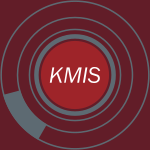 KMIS-2014-HisakaneOSK #multi
KMIS-2014-HisakaneOSK #multi- A Tutoring Rule Selection Method for Case-based e-Learning by Multi-class Support Vector Machine (DH, MO, MS, NK), pp. 119–125.
 MLDM-2014-LarinSKKHC #classification #parametricity #representation #using
MLDM-2014-LarinSKKHC #classification #parametricity #representation #using- Parametric Representation of Objects in Color Space Using One-Class Classifiers (AL, OS, AK, SYK, SCH, BHC), pp. 300–314.
 MLDM-2014-LimsettoW
MLDM-2014-LimsettoW- Integrating Weight with Ensemble to Handle Changes in Class Distribution (NL, KW), pp. 91–106.
 MLDM-2014-UtkinZC #classification #data-driven #database #robust
MLDM-2014-UtkinZC #classification #data-driven #database #robust- A Robust One-Class Classification Model with Interval-Valued Data Based on Belief Functions and Minimax Strategy (LVU, YAZ, AIC), pp. 107–118.
 SEKE-2014-ChenM #abstraction #evolution
SEKE-2014-ChenM #abstraction #evolution- Change and Role as First-Class Abstractions for Realising Dynamic Evolution (YC, XM), pp. 443–446.
 SEKE-2014-CostaMM #detection #diagrams #equivalence #semantics #uml
SEKE-2014-CostaMM #detection #diagrams #equivalence #semantics #uml- Detecting Semantic Equivalence in UML Class Diagrams (VOC, RM, LM), pp. 318–323.
 SEKE-2014-SantosM #detection #identification
SEKE-2014-SantosM #detection #identification- Identifying strategies on god class detection in two controlled experiments (JAMS, MGM), pp. 244–249.
 MoDELS-2014-MaraeeB #diagrams #uml
MoDELS-2014-MaraeeB #diagrams #uml- Removing Redundancies and Deducing Equivalences in UML Class Diagrams (AM, MB), pp. 235–251.
 MoDELS-2014-MaraeeB #diagrams #uml
MoDELS-2014-MaraeeB #diagrams #uml- Removing Redundancies and Deducing Equivalences in UML Class Diagrams (AM, MB), pp. 235–251.
 CC-2014-SrinivasanR #composition
CC-2014-SrinivasanR #composition- Recovery of Class Hierarchies and Composition Relationships from Machine Code (VS, TWR), pp. 61–84.
 CGO-2014-DingEO #architecture #compilation #congruence
CGO-2014-DingEO #architecture #compilation #congruence- Single Assignment Compiler, Single Assignment Architecture: Future Gated Single Assignment Form*; Static Single Assignment with Congruence Classes (SD, JE, SÖ), p. 196.
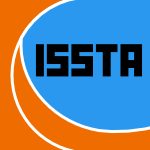 ISSTA-2014-PradelHG #concurrent #performance #testing
ISSTA-2014-PradelHG #concurrent #performance #testing- Performance regression testing of concurrent classes (MP, MH, TRG), pp. 13–25.
 ASE-2013-ScannielloGMM #clustering #fault #predict #using
ASE-2013-ScannielloGMM #clustering #fault #predict #using- Class level fault prediction using software clustering (GS, CG, AM, TM), pp. 640–645.
 CASE-2013-MartinezA #design
CASE-2013-MartinezA #design- Optimal switched-type control design for a class of nonlinear systems (JCM, VA), pp. 1069–1074.
 CASE-2013-WangJLC #capacity #policy
CASE-2013-WangJLC #capacity #policy- Integrated capacity allocation policies for a production service system with two-class customers and items (KW, ZJ, GL, JC), pp. 83–88.
 CASE-2013-YueH13a #assembly #concurrent #petri net #policy #polynomial #process
CASE-2013-YueH13a #assembly #concurrent #petri net #policy #polynomial #process- A polynomial deadlock avoidance policy for a class of assembly processes based on Petri nets (HY, HH), pp. 1151–1156.
 DATE-2013-Pomeranz #equivalence #fault #graph #on the #set
DATE-2013-Pomeranz #equivalence #fault #graph #on the #set- On candidate fault sets for fault diagnosis and dominance graphs of equivalence classes (IP), pp. 1083–1088.
 ICDAR-2013-CecottiV #classification #multi #recognition
ICDAR-2013-CecottiV #classification #multi #recognition- Rejection Schemes in Multi-class Classification — Application to Handwritten Character Recognition (HC, SV), pp. 445–449.
 ICDAR-2013-HoRRES #approach #classification #documentation
ICDAR-2013-HoRRES #approach #classification #documentation- Document Classification in a Non-stationary Environment: A One-Class SVM Approach (AKNH, NR, JYR, VE, NS), pp. 616–620.
 ICDAR-2013-YinLS #analysis #detection #documentation #framework #image #multi #novel
ICDAR-2013-YinLS #analysis #detection #documentation #framework #image #multi #novel- A Novel Multi-view Object Class Detection Framework for Document Image Content Analysis (WY, TL, FS), pp. 1095–1099.
 PODS-2013-KazanaS #bound #first-order #query
PODS-2013-KazanaS #bound #first-order #query- Enumeration of first-order queries on classes of structures with bounded expansion (WK, LS), pp. 297–308.
 CSEET-2013-ShethBK #approach #re-engineering
CSEET-2013-ShethBK #approach #re-engineering- A competitive-collaborative approach for introducing software engineering in a CS2 class (SS, JB, GEK), pp. 41–50.
 ITiCSE-2013-CapovillaH #education #spreadsheet #student
ITiCSE-2013-CapovillaH #education #spreadsheet #student- Teaching spreadsheets to visually-impaired students in an environment similar to a mainstream class (DC, PH), pp. 99–104.
 TFPIE-2013-Tobin-HochstadtH
TFPIE-2013-Tobin-HochstadtH- From Principles to Practice with Class in the First Year (STH, DVH), pp. 1–15.
 FASE-2013-BouchouchaSL #behaviour #comprehension #modelling #probability #towards #using
FASE-2013-BouchouchaSL #behaviour #comprehension #modelling #probability #towards #using- Towards Understanding the Behavior of Classes Using Probabilistic Models of Program Inputs (AB, HAS, PL), pp. 99–113.
 FASE-2013-LasseterC #design pattern #invariant #runtime
FASE-2013-LasseterC #design pattern #invariant #runtime- Design Pattern-Based Extension of Class Hierarchies to Support Runtime Invariant Checks (JL, JC), pp. 163–178.
 CSMR-2013-SabanePAG #case study #cost analysis #testing
CSMR-2013-SabanePAG #case study #cost analysis #testing- A Study on the Relation between Antipatterns and the Cost of Class Unit Testing (AS, MDP, GA, YGG), pp. 167–176.
 CSMR-2013-ScannielloGT #comprehension #diagrams #sequence chart #source code
CSMR-2013-ScannielloGT #comprehension #diagrams #sequence chart #source code- An Early Investigation on the Contribution of Class and Sequence Diagrams in Source Code Comprehension (GS, CG, GT), pp. 367–370.
 ICPC-2013-FalconeS #diagrams #eclipse #graph #named #plugin #uml #visualisation
ICPC-2013-FalconeS #diagrams #eclipse #graph #named #plugin #uml #visualisation- OnionUML: An Eclipse plug-in for visualizing UML class diagrams in onion graph notation (MF, BS), pp. 233–235.
 ICPC-2013-MorenoASMPV #automation #generative #java #natural language #summary
ICPC-2013-MorenoASMPV #automation #generative #java #natural language #summary- Automatic generation of natural language summaries for Java classes (LM, JA, GS, AM, LLP, KVS), pp. 23–32.
 ICPC-2013-MorenoMPV #automation #generative #java #named #natural language #summary
ICPC-2013-MorenoMPV #automation #generative #java #named #natural language #summary- JSummarizer: An automatic generator of natural language summaries for Java classes (LM, AM, LLP, KVS), pp. 230–232.
 ICSM-2013-OsmanCP #algorithm #analysis #diagrams #machine learning
ICSM-2013-OsmanCP #algorithm #analysis #diagrams #machine learning- An Analysis of Machine Learning Algorithms for Condensing Reverse Engineered Class Diagrams (MHO, MRVC, PvdP), pp. 140–149.
 PLDI-2013-Titzer #parametricity #tuple
PLDI-2013-Titzer #parametricity #tuple- Harmonizing classes, functions, tuples, and type parameters in virgil iii (BT), pp. 85–94.
 DLT-J-2012-Schmid13 #regular expression
DLT-J-2012-Schmid13 #regular expression- Inside the Class of regex Languages (MLS), pp. 1117–1134.
 LATA-2013-CuiDFI #automaton #execution
LATA-2013-CuiDFI #automaton #execution- Execution Information Rate for Some Classes of Automata (CC, ZD, TRF, OHI), pp. 226–237.
 LATA-2013-SippuS #multi #online
LATA-2013-SippuS #multi #online- Online Matching of Multiple Regular Patterns with Gaps and Character Classes (SS, ESS), pp. 523–534.
 IFL-2013-VieraS #composition #semantics #syntax
IFL-2013-VieraS #composition #semantics #syntax- First Class Syntax, Semantics, and Their Composition (MV, SDS), p. 73.
 CHI-2013-BirnholtzHR #student #twitter
CHI-2013-BirnholtzHR #student #twitter- Tweeting for class: co-construction as a means for engaging students in lectures (JPB, JTH, DR), pp. 797–800.
 EDOC-2013-GuediHMN
EDOC-2013-GuediHMN- Sizing the Underlying Factorization Structure of a Class Model (AOG, MH, AM, CN), pp. 167–172.
 ICEIS-J-2013-JuniorPVDCC #aspect-oriented #modelling #object-oriented #re-engineering
ICEIS-J-2013-JuniorPVDCC #aspect-oriented #modelling #object-oriented #re-engineering- Reengineering of Object-Oriented Software into Aspect-Oriented Ones Supported by Class Models (PAPJ, RDP, MCV, RSD, VVdC, HAXC), pp. 296–313.
 ICEIS-v1-2013-Castanon-PugaCF #fuzzy #java #library #named #object-oriented
ICEIS-v1-2013-Castanon-PugaCF #fuzzy #java #library #named #object-oriented- JT2FIS: Java Type-2 Fuzzy Inference System — An Object-oriented Class Library for Building Java Intelligent Applications (MCP, JRC, MFP), pp. 524–529.
 ICEIS-v2-2013-JuniorVDCCP #aspect-oriented #modelling #object-oriented #refactoring
ICEIS-v2-2013-JuniorVDCCP #aspect-oriented #modelling #object-oriented #refactoring- Concern-based Refactorings Supported by Class Models to Reengineer Object-Oriented Software into Aspect-Oriented Ones (PAPJ, MCV, RSD, VVdC, HAXC, RADP), pp. 46–57.
 ICML-c3-2013-CortesMR #classification #kernel #multi
ICML-c3-2013-CortesMR #classification #kernel #multi- Multi-Class Classification with Maximum Margin Multiple Kernel (CC, MM, AR), pp. 46–54.
 ICML-c3-2013-MenonNAC #algorithm #classification #consistency #on the #statistics
ICML-c3-2013-MenonNAC #algorithm #classification #consistency #on the #statistics- On the Statistical Consistency of Algorithms for Binary Classification under Class Imbalance (AKM, HN, SA, SC), pp. 603–611.
 MLDM-2013-DoanDP #classification #scalability #visual notation
MLDM-2013-DoanDP #classification #scalability #visual notation- Large Scale Visual Classification with Many Classes (TND, TND, FP), pp. 629–643.
 SEKE-2013-AssuncaoV #diagrams #optimisation #retrieval
SEKE-2013-AssuncaoV #diagrams #optimisation #retrieval- Class Diagram Retrieval with Particle Swarm Optimization (WKGA, SRV), pp. 632–637.
 SEKE-2013-ElshaarawyHT #diagrams #framework #ocl #towards
SEKE-2013-ElshaarawyHT #diagrams #framework #ocl #towards- Towards a Unified Framework for Measuring the Properties of Class Diagrams Augmented with OCL (S) (ME, HSH, IAHT), pp. 479–482.
 SEKE-2013-JulianoTSM #assessment #automation #case study #complexity #similarity
SEKE-2013-JulianoTSM #assessment #automation #case study #complexity #similarity- Automated Computation of Use Cases Similarity can Aid the Assessment of Cohesion and Complexity of Classes (S) (RCJ, BANT, MSS, MdAM), pp. 494–499.
 SIGIR-2013-PappasP #analysis #collaboration #sentiment
SIGIR-2013-PappasP #analysis #collaboration #sentiment- Sentiment analysis of user comments for one-class collaborative filtering over ted talks (NP, APB), pp. 773–776.
 MoDELS-2013-BalabanM #composition #constraints #correctness #diagrams #multi #uml
MoDELS-2013-BalabanM #composition #constraints #correctness #diagrams #multi #uml- Simplification and Correctness of UML Class Diagrams — Focusing on Multiplicity and Aggregation/Composition Constraints (MB, AM), pp. 454–470.
 MoDELS-2013-CazzolaRAF #evolution #fine-grained #modelling #process #uml #using
MoDELS-2013-CazzolaRAF #evolution #fine-grained #modelling #process #uml #using- Fine-Grained Software Evolution Using UML Activity and Class Models (WC, NAR, MAR, RBF), pp. 271–286.
 MoDELS-2013-ChavezSFM #approach #implementation #java #testing #uml
MoDELS-2013-ChavezSFM #approach #implementation #java #testing #uml- An Approach to Testing Java Implementation against Its UML Class Model (HMC, WS, RBF, BAM), pp. 220–236.
 MoDELS-2013-SunFR #modelling #slicing #uml
MoDELS-2013-SunFR #modelling #slicing #uml- Contract-Aware Slicing of UML Class Models (WS, RBF, IR), pp. 724–739.
 MoDELS-2013-BalabanM #composition #constraints #correctness #diagrams #multi #uml
MoDELS-2013-BalabanM #composition #constraints #correctness #diagrams #multi #uml- Simplification and Correctness of UML Class Diagrams — Focusing on Multiplicity and Aggregation/Composition Constraints (MB, AM), pp. 454–470.
 MoDELS-2013-CazzolaRAF #evolution #fine-grained #modelling #process #uml #using
MoDELS-2013-CazzolaRAF #evolution #fine-grained #modelling #process #uml #using- Fine-Grained Software Evolution Using UML Activity and Class Models (WC, NAR, MAR, RBF), pp. 271–286.
 MoDELS-2013-ChavezSFM #approach #implementation #java #testing #uml
MoDELS-2013-ChavezSFM #approach #implementation #java #testing #uml- An Approach to Testing Java Implementation against Its UML Class Model (HMC, WS, RBF, BAM), pp. 220–236.
 MoDELS-2013-SunFR #modelling #slicing #uml
MoDELS-2013-SunFR #modelling #slicing #uml- Contract-Aware Slicing of UML Class Models (WS, RBF, IR), pp. 724–739.
 TOOLS-EUROPE-J-2012-WernliLN13 #incremental
TOOLS-EUROPE-J-2012-WernliLN13 #incremental- Incremental Dynamic Updates with First-class Contexts (EW, ML, ON), pp. 1–27.
 OOPSLA-2013-BalatsourasS #graph
OOPSLA-2013-BalatsourasS #graph- Class hierarchy complementation: soundly completing a partial type graph (GB, YS), pp. 515–532.
 PPDP-2013-CalauttiGT #decidability #detection #logic programming #source code
PPDP-2013-CalauttiGT #decidability #detection #logic programming #source code- Detecting decidable classes of finitely ground logic programs with function symbols (MC, SG, IT), pp. 239–250.
 SAC-2013-FariaGC #algorithm #data type #detection #multi #problem
SAC-2013-FariaGC #algorithm #data type #detection #multi #problem- Novelty detection algorithm for data streams multi-class problems (ERF, JG, ACPLFC), pp. 795–800.
 ICSE-2013-KhooFH #debugging #named
ICSE-2013-KhooFH #debugging #named- Expositor: scriptable time-travel debugging with first-class traces (YPK, JSF, MH), pp. 352–361.
 ICST-2013-SteenbuckF #concurrent #generative #testing
ICST-2013-SteenbuckF #concurrent #generative #testing- Generating Unit Tests for Concurrent Classes (SS, GF), pp. 144–153.
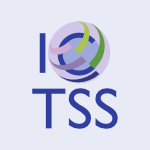 ICTSS-2013-HuangP #equivalence #modelling #testing
ICTSS-2013-HuangP #equivalence #modelling #testing- Exhaustive Model-Based Equivalence Class Testing (WlH, JP), pp. 49–64.
 LICS-2013-EickmeyerKK #first-order #graph #invariant #logic #model checking
LICS-2013-EickmeyerKK #first-order #graph #invariant #logic #model checking- Model Checking for Successor-Invariant First-Order Logic on Minor-Closed Graph Classes (KE, KiK, SK), pp. 134–142.
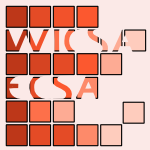 WICSA-ECSA-2012-ZhangUVZHC #architecture #modelling #named
WICSA-ECSA-2012-ZhangUVZHC #architecture #modelling #named- Dedal-CDL: Modeling First-class Architectural Changes in Dedal (H(Z, CU, SV, LZ, MH, BC), pp. 272–276.
 ASE-2012-MorenoM #automation #identification #java #named
ASE-2012-MorenoM #automation #identification #java #named- JStereoCode: automatically identifying method and class stereotypes in Java code (LM, AM), pp. 358–361.
 CASE-2012-HouLZ #on the #petri net
CASE-2012-HouLZ #on the #petri net- On iterative liveness-enforcement for a class of generalized Petri nets (YH, DL, MZ), pp. 188–193.
 CASE-2012-IsmailDH #higher-order #using
CASE-2012-IsmailDH #higher-order #using- Observer-based trajectory tracking for a class of underactuated Lagrangian systems using higher-order sliding modes (RMTRI, TDN, QPH), pp. 1204–1209.
 CASE-2012-ZhangWZX #fault #memory management #using
CASE-2012-ZhangWZX #fault #memory management #using- A dynamic memory model for mechanical fault diagnosis using one-class support vector machine (QZ, JW, JZ, GX), pp. 497–501.
 DAC-2012-SasanianWM #quantum #using
DAC-2012-SasanianWM #quantum #using- Realizing reversible circuits using a new class of quantum gates (ZS, RW, DMM), pp. 36–41.
 VLDB-2012-GraefeK #database #detection
VLDB-2012-GraefeK #database #detection- Definition, Detection, and Recovery of Single-Page Failures, a Fourth Class of Database Failures (GG, HAK), pp. 646–655.
 CSEET-2012-BollinHS #concept #education #experience #project management #simulation #using
CSEET-2012-BollinHS #concept #education #experience #project management #simulation #using- Teaching Software Project Management using Simulations — The AMEISE Environment: from Concepts to Class Room Experience (AB, EH, LS), pp. 85–86.
 FoSSaCS-2012-CaliGOP #diagrams #query #uml
FoSSaCS-2012-CaliGOP #diagrams #query #uml- Querying UML Class Diagrams (AC, GG, GO, AP), pp. 1–25.
 ICPC-2012-SohSPPGA #comprehension #diagrams #empirical #uml
ICPC-2012-SohSPPGA #comprehension #diagrams #empirical #uml- Professional status and expertise for UML class diagram comprehension: An empirical study (ZS, ZS, BVdP, GCP, YGG, GA), pp. 163–172.
 SCAM-2012-AliSGA #debugging #using
SCAM-2012-AliSGA #debugging #using- Improving Bug Location Using Binary Class Relationships (NA, AS, YGG, GA), pp. 174–183.
 WCRE-2012-SteidlHJ #analysis #network #recommendation #using
WCRE-2012-SteidlHJ #analysis #network #recommendation #using- Using Network Analysis for Recommendation of Central Software Classes (DS, BH, EJ), pp. 93–102.
 STOC-2012-Vegh #algorithm #low cost #polynomial #problem
STOC-2012-Vegh #algorithm #low cost #polynomial #problem- Strongly polynomial algorithm for a class of minimum-cost flow problems with separable convex objectives (LAV), pp. 27–40.
 DLT-2012-Schmid #regular expression
DLT-2012-Schmid #regular expression- Inside the Class of REGEX Languages (MLS), pp. 73–84.
 LATA-2012-GaoS
LATA-2012-GaoS- Learnability of Co-r.e. Classes (ZG, FS), pp. 252–263.
 IFM-2012-AndradeFLP #generative #java #testing
IFM-2012-AndradeFLP #generative #java #testing- Specification-Driven Unit Test Generation for Java Generic Classes (FRdA, JPF, AL, ACRP), pp. 296–311.
 CHI-2012-YardiB #difference #product line
CHI-2012-YardiB #difference #product line- Income, race, and class: exploring socioeconomic differences in family technology use (SY, AB), pp. 3041–3050.
 CSCW-2012-HarryGS #interactive #tablet
CSCW-2012-HarryGS #interactive #tablet- Setting the stage for interaction: a tablet application to augment group discussion in a seminar class (DH, EG, CS), pp. 1071–1080.
 ICML-2012-DundarAQR #learning #modelling #online
ICML-2012-DundarAQR #learning #modelling #online- Bayesian Nonexhaustive Learning for Online Discovery and Modeling of Emerging Classes (MD, FA, AQ, BR), p. 18.
 ICML-2012-MorvantKR #bound #classification #matrix #multi
ICML-2012-MorvantKR #bound #classification #matrix #multi- PAC-Bayesian Generalization Bound on Confusion Matrix for Multi-Class Classification (EM, SK, LR), p. 158.
 ICML-2012-PlessisS #learning
ICML-2012-PlessisS #learning- Semi-Supervised Learning of Class Balance under Class-Prior Change by Distribution Matching (MCdP, MS), p. 159.
 ICML-2012-SunRZ #adaptation #multi #named #problem
ICML-2012-SunRZ #adaptation #multi #named #problem- AOSO-LogitBoost: Adaptive One-Vs-One LogitBoost for Multi-Class Problem (PS, MDR, JZ), p. 103.
 ICPR-2012-AtaY #induction
ICPR-2012-AtaY #induction- Searching for the optimal ordering of classes in rule induction (SA, OTY), pp. 1277–1280.
 ICPR-2012-ChangrampadiYG #classification #image #multi #visual notation
ICPR-2012-ChangrampadiYG #classification #image #multi #visual notation- Multi-class ada-boost classification of object poses through visual and infrared image information fusion (MHC, YY, IYHG), pp. 2865–2868.
 ICPR-2012-DAmbrosioIS #learning #re-engineering
ICPR-2012-DAmbrosioIS #learning #re-engineering- A One-per-Class reconstruction rule for class imbalance learning (RD, GI, PS), pp. 1310–1313.
 ICPR-2012-LankinenKK #categorisation #comparison #detection #visual notation
ICPR-2012-LankinenKK #categorisation #comparison #detection #visual notation- A comparison of local feature detectors and descriptors for visual object categorization by intra-class repeatability and matching (JL, VK, JKK), pp. 780–783.
 ICPR-2012-LiuCSTN #learning #multi #performance #problem #recursion #scalability
ICPR-2012-LiuCSTN #learning #multi #performance #problem #recursion #scalability- Recursive NMF: Efficient label tree learning for large multi-class problems (LL, PMC, SS, PNT, AN), pp. 2148–2151.
 ICPR-2012-MaB #detection #multi
ICPR-2012-MaB #detection #multi- Multi-view multi-class object detection via exemplar compounding (KM, JBA), pp. 3256–3259.
 ICPR-2012-RadtkeGSG #adaptation
ICPR-2012-RadtkeGSG #adaptation- Adaptive selection of ensembles for imbalanced class distributions (PVWR, EG, RS, DOG), pp. 2980–2984.
 ICPR-2012-ThanhMNMY #detection #recognition #robust #using
ICPR-2012-ThanhMNMY #detection #recognition #robust #using- Inertial-sensor-based walking action recognition using robust step detection and inter-class relationships (TNT, YM, HN, YM, YY), pp. 3811–3814.
 ICPR-2012-YeKC #classification #multi
ICPR-2012-YeKC #classification #multi- Combining general multi-class and specific two-class classifiers for improved customized ECG heartbeat classification (CY, BVKVK, MTC), pp. 2428–2431.
 KDD-2012-AbrahaoSHK #community #on the
KDD-2012-AbrahaoSHK #community #on the- On the separability of structural classes of communities (BDA, SS, JEH, RK), pp. 624–632.
 KDD-2012-HoensC #learning
KDD-2012-HoensC #learning- Learning in non-stationary environments with class imbalance (TRH, NVC), pp. 168–176.
 SEKE-2012-SalamiA #algorithm #diagrams #framework #retrieval #search-based #using
SEKE-2012-SalamiA #algorithm #diagrams #framework #retrieval #search-based #using- A Framework for Class Diagram Retrieval Using Genetic Algorithm (HOS, MAA), pp. 737–740.
 SIGIR-2012-Ko #case study #classification #using
SIGIR-2012-Ko #case study #classification #using- A study of term weighting schemes using class information for text classification (YK), pp. 1029–1030.
 SIGIR-2012-LipkaSA #classification #clustering #information retrieval #problem
SIGIR-2012-LipkaSA #classification #clustering #information retrieval #problem- Cluster-based one-class ensemble for classification problems in information retrieval (NL, BS, MA), pp. 1041–1042.
 ICMT-2012-Kosiuczenko #state machine
ICMT-2012-Kosiuczenko #state machine- The Impact of Class Model Redesign on State Machines (PK), pp. 264–279.
 Onward-2012-McDirmid
Onward-2012-McDirmid- Escaping the maze of twisty classes (SM), pp. 127–138.
 OOPSLA-2012-TakikawaSDTF #type system
OOPSLA-2012-TakikawaSDTF #type system- Gradual typing for first-class classes (AT, TSS, CD, STH, MF), pp. 793–810.
 TOOLS-EUROPE-2012-WernliLN #incremental
TOOLS-EUROPE-2012-WernliLN #incremental- Incremental Dynamic Updates with First-Class Contexts (EW, ML, ON), pp. 304–319.
 SAC-2012-ChanvilaiHNTO #approach #constraints #diagrams #ocl
SAC-2012-ChanvilaiHNTO #approach #constraints #diagrams #ocl- Goal-oriented approach to creating class diagrams with OCL constraints (SC, KH, HN, YT, AO), pp. 1051–1056.
 SAC-2012-CunhaFS #ocl #relational #uml
SAC-2012-CunhaFS #ocl #relational #uml- From relational ClassSheets to UML+OCL (JC, JPF, JS), pp. 1151–1158.
 SAC-2012-GiuntaPT12a #aspect-oriented #design pattern
SAC-2012-GiuntaPT12a #aspect-oriented #design pattern- Superimposing roles for design patterns into application classes by means of aspects (RG, GP, ET), pp. 1866–1868.
 SAC-2012-KosinaG #multi #performance #problem
SAC-2012-KosinaG #multi #performance #problem- Very Fast Decision Rules for multi-class problems (PK, JG), pp. 795–800.
 SAC-2012-LeungS #constraints #mining
SAC-2012-LeungS #constraints #mining- A new class of constraints for constrained frequent pattern mining (CKSL, LS), pp. 199–204.
 SAC-2012-WangCCX #fault
SAC-2012-WangCCX #fault- Fault class prioritization in Boolean expressions (ZW, ZC, TYC, BX), pp. 1191–1196.
 SAC-2012-YuHJSLH #novel #programming #segmentation
SAC-2012-YuHJSLH #novel #programming #segmentation- A novel segmentation method for convex lesions based on dynamic programming with local intra-class variance (MY, QH, RJ, ES, HL, CCH), pp. 39–44.
 FSE-2012-ShaikhW #diagrams #ocl #performance #slicing #uml #verification
FSE-2012-ShaikhW #diagrams #ocl #performance #slicing #uml #verification- UMLtoCSP (UOST): a tool for efficient verification of UML/OCL class diagrams through model slicing (AS, UKW), p. 37.
 ICSE-2012-BavotaLMOP #eclipse #refactoring
ICSE-2012-BavotaLMOP #eclipse #refactoring- Supporting extract class refactoring in Eclipse: The ARIES project (GB, ADL, AM, RO, FP), pp. 1419–1422.
 ICSE-2012-Butler #identifier #java #mining
ICSE-2012-Butler #identifier #java #mining- Mining Java class identifier naming conventions (SB), pp. 1641–1643.
 ICSE-2012-KumarKRL #distributed #specification
ICSE-2012-KumarKRL #distributed #specification- Inferring class level specifications for distributed systems (SK, SCK, AR, DL), pp. 914–924.
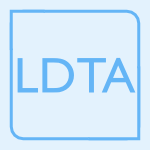 LDTA-2012-VieraSD
LDTA-2012-VieraSD- Grammar fragments fly first-class (MV, SDS, AD), p. 5.
 LDTA-2012-VieraSM #attribute grammar #how
LDTA-2012-VieraSM #attribute grammar #how- UUAG meets AspectAG: how to make attribute grammars first-class (MV, SDS, AM), p. 6.
 HPDC-2012-IlscheSCKJKIRNP #middleware
HPDC-2012-IlscheSCKJKIRNP #middleware- Enabling event tracing at leadership-class scale through I/O forwarding middleware (TI, JS, JC, DK, TJ, AK, KI, RBR, WEN, SP), pp. 49–60.
 CSL-2012-Cook #complexity #proving
CSL-2012-Cook #complexity #proving- Connecting Complexity Classes, Weak Formal Theories, and Propositional Proof Systems (Invited Talk) (SAC), pp. 9–11.
 ICST-2012-DelamareK #algorithm #aspect-oriented #integration #order #search-based
ICST-2012-DelamareK #algorithm #aspect-oriented #integration #order #search-based- A Genetic Algorithm for Computing Class Integration Test Orders for Aspect-Oriented Systems (RD, NAK), pp. 804–813.
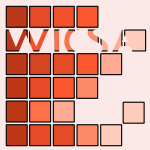 WICSA-2011-PetrovBN #analysis #architecture #design #enterprise #multi
WICSA-2011-PetrovBN #analysis #architecture #design #enterprise #multi- The Need for a Multilevel Context-Aware Software Architecture Analysis and Design Method with Enterprise and System Architecture Concerns as First Class Entities (PP, UB, RLN), pp. 147–156.
 ICDAR-2011-GatosLS #performance #reduction
ICDAR-2011-GatosLS #performance #reduction- Greek Polytonic OCR Based on Efficient Character Class Number Reduction (BG, GL, NS), pp. 1155–1159.
 ICDAR-2011-ShaoWXZZ #distance
ICDAR-2011-ShaoWXZZ #distance- Modified Two-Class LDA Based Compound Distance for Similar Handwritten Chinese Characters Discrimination (YS, CW, BX, RZ, LZ), pp. 653–657.
 ITiCSE-2011-Marmorstein #effectiveness #open source #re-engineering
ITiCSE-2011-Marmorstein #effectiveness #open source #re-engineering- Open source contribution as an effective software engineering class project (RMM), pp. 268–272.
 FASE-2011-SharmaGAFM #question #random #testing
FASE-2011-SharmaGAFM #question #random #testing- Testing Container Classes: Random or Systematic? (RS, MG, AA, GF, DM), pp. 262–277.
 ICSM-2011-ButlerWYS #java #mining
ICSM-2011-ButlerWYS #java #mining- Mining java class naming conventions (SB, MW, YY, HS), pp. 93–102.
 ICSM-2011-Dragan #object-oriented
ICSM-2011-Dragan #object-oriented- Emergent laws of method and class stereotypes in object oriented software (ND), pp. 550–555.
 ICSM-2011-Sharif #architecture #assessment #diagrams #empirical #uml
ICSM-2011-Sharif #architecture #assessment #diagrams #empirical #uml- Empirical assessment of UML class diagram layouts based on architectural importance (BS), pp. 544–549.
 SCAM-2011-MarinescuM #fault #question
SCAM-2011-MarinescuM #fault #question- Are the Clients of Flawed Classes (Also) Defect Prone? (RM, CM), pp. 65–74.
 PEPM-2011-Martin-Martin #functional #logic programming
PEPM-2011-Martin-Martin #functional #logic programming- Type classes in functional logic programming (EMM), pp. 121–130.
 ICALP-v1-2011-Mengel #constraints #problem
ICALP-v1-2011-Mengel #constraints #problem- Characterizing Arithmetic Circuit Classes by Constraint Satisfaction Problems — (Extended Abstract) (SM), pp. 700–711.
 ICALP-v1-2011-ODonnellWZ #fourier
ICALP-v1-2011-ODonnellWZ #fourier- The Fourier Entropy-Influence Conjecture for Certain Classes of Boolean Functions (RO, JW, YZ), pp. 330–341.
 SEFM-2011-GarisCR #alloy #diagrams #ocl #specification #uml
SEFM-2011-GarisCR #alloy #diagrams #ocl #specification #uml- Translating Alloy Specifications to UML Class Diagrams Annotated with OCL (AGG, AC, DR), pp. 221–236.
 ICFP-2011-DevrieseP #on the
ICFP-2011-DevrieseP #on the- On the bright side of type classes: instance arguments in Agda (DD, FP), pp. 143–155.
 ICFP-2011-VardoulakisS #analysis #automaton
ICFP-2011-VardoulakisS #analysis #automaton- Pushdown flow analysis of first-class control (DV, OS), pp. 69–80.
 GCM-2010-HoffmannM11 #adaptation #diagrams #generative #graph
GCM-2010-HoffmannM11 #adaptation #diagrams #generative #graph- Generating Instance Graphs from Class Diagrams with Adaptive Star Grammars (BH, MM).
 CHI-2011-MoravejiMMCR #development #learning #named #social #web
CHI-2011-MoravejiMMCR #development #learning #named #social #web- ClassSearch: facilitating the development of web search skills through social learning (NM, MRM, DM, MC, NHR), pp. 1797–1806.
 CSCW-2011-AmesGKS #comprehension #social
CSCW-2011-AmesGKS #comprehension #social- Understanding technology choices and values through social class (MGA, JG, JK, MS), pp. 55–64.
 HCI-UA-2011-Wang11a #interactive #learning #network #student #tool support #using
HCI-UA-2011-Wang11a #interactive #learning #network #student #tool support #using- Interactions between Human and Computer Networks: EFL College Students Using Computer Learning Tools in Remedial English Classes (ALW), pp. 107–112.
 ICEIS-J-2011-BajwaC #modelling #natural language #specification #uml
ICEIS-J-2011-BajwaC #modelling #natural language #specification #uml- From Natural Language Software Specifications to UML Class Models (ISB, MAC), pp. 224–237.
 ICEIS-v1-2011-PotoleaL #classification #performance
ICEIS-v1-2011-PotoleaL #classification #performance- A Comprehensive Study of the Effect of Class Imbalance on the Performance of Classifiers (RP, CL), pp. 14–21.
 ICEIS-v2-2011-BajwaNCA #interface #modelling #natural language
ICEIS-v2-2011-BajwaNCA #interface #modelling #natural language- A Controlled Natural Language Interface to Class Models (ISB, MAN, AAC, SA), pp. 102–110.
 CIKM-2011-AnderkaSL #classification #detection #problem #quality
CIKM-2011-AnderkaSL #classification #detection #problem #quality- Detection of text quality flaws as a one-class classification problem (MA, BS, NL), pp. 2313–2316.
 CIKM-2011-FuLZZ #learning #query
CIKM-2011-FuLZZ #learning #query- Do they belong to the same class: active learning by querying pairwise label homogeneity (YF, BL, XZ, CZ), pp. 2161–2164.
 CIKM-2011-SelvarajBSS #classification #dataset
CIKM-2011-SelvarajBSS #classification #dataset- Semi-supervised SVMs for classification with unknown class proportions and a small labeled dataset (SKS, BB, SS, SKS), pp. 653–662.
 KDIR-2011-PrachuabsupakijS #classification #multi #set #using
KDIR-2011-PrachuabsupakijS #classification #multi #set #using- Multi-class Data Classification for Imbalanced Data Set using Combined Sampling Approaches (WP, NS), pp. 166–171.
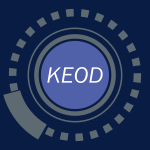 KEOD-2011-AbbesZN #learning #ontology #semantics
KEOD-2011-AbbesZN #learning #ontology #semantics- Evaluating Semantic Classes Used for Ontology Building and Learning from Texts (SBA, HZ, AN), pp. 445–448.
 KMIS-2011-MajidMSH #student
KMIS-2011-MajidMSH #student- Students’ Perceptions of Knowledge Sharing through Class Participation (SM, AAM, CMS, SMH), pp. 250–257.
 SEKE-2011-BadriT #analysis #control flow #dependence #empirical #testing
SEKE-2011-BadriT #analysis #control flow #dependence #empirical #testing- Empirical Analysis for Investigating the Effect of Control Flow Dependencies on Testability of Classes (MB, FT), pp. 475–480.
 SEKE-2011-CassellAG #approach #clustering #refactoring
SEKE-2011-CassellAG #approach #clustering #refactoring- A Dual Clustering Approach to the Extract Class Refactoring (KC, PA, LG), pp. 77–82.
 SEKE-2011-GaoK #fault #predict
SEKE-2011-GaoK #fault #predict- Software Defect Prediction for High-Dimensional and Class-Imbalanced Data (KG, TMK), pp. 89–94.
 SIGIR-2011-BlondelSU
SIGIR-2011-BlondelSU- Tackling class imbalance and data scarcity in literature-based gene function annotation (MB, KS, KU), pp. 1123–1124.
 SIGIR-2011-CetintasCSSD #modelling #online #probability
SIGIR-2011-CetintasCSSD #modelling #online #probability- Forecasting counts of user visits for online display advertising with probabilistic latent class models (SC, DC, LS, BS, ZD), pp. 1217–1218.
 MoDELS-2011-AkiyamaHKS #design #refactoring
MoDELS-2011-AkiyamaHKS #design #refactoring- Supporting Design Model Refactoring for Improving Class Responsibility Assignment (MA, SH, TK, MS), pp. 455–469.
 MoDELS-2011-BavotaGOLTGC #comprehension #diagrams #identification #uml
MoDELS-2011-BavotaGOLTGC #comprehension #diagrams #identification #uml- Identifying the Weaknesses of UML Class Diagrams during Data Model Comprehension (GB, CG, RO, ADL, GT, MG, JACL), pp. 168–182.
 MoDELS-2011-ElaasarL #case study #diagrams #uml
MoDELS-2011-ElaasarL #case study #diagrams #uml- Diagram Definition: A Case Study with the UML Class Diagram (ME, YL), pp. 364–378.
 MoDELS-2011-FeinererSS #diagrams #multi
MoDELS-2011-FeinererSS #diagrams #multi- Reducing Multiplicities in Class Diagrams (IF, GS, TS), pp. 379–393.
 MoDELS-2011-LettnerTM #bibliography #embedded #identification #migration #problem
MoDELS-2011-LettnerTM #bibliography #embedded #identification #migration #problem- A Critical Review of Applied MDA for Embedded Devices: Identification of Problem Classes and Discussing Porting Efforts in Practice (ML, MT, RM), pp. 228–242.
 MoDELS-2011-MaozRR #analysis #configuration management #consistency #diagrams #semantics
MoDELS-2011-MaozRR #analysis #configuration management #consistency #diagrams #semantics- Semantically Configurable Consistency Analysis for Class and Object Diagrams (SM, JOR, BR), pp. 153–167.
 MoDELS-2011-MaozRR11a #alloy #analysis #diagrams #named #revisited #using
MoDELS-2011-MaozRR11a #alloy #analysis #diagrams #named #revisited #using- CD2Alloy: Class Diagrams Analysis Using Alloy Revisited (SM, JOR, BR), pp. 592–607.
 MoDELS-2011-AkiyamaHKS #design #refactoring
MoDELS-2011-AkiyamaHKS #design #refactoring- Supporting Design Model Refactoring for Improving Class Responsibility Assignment (MA, SH, TK, MS), pp. 455–469.
 MoDELS-2011-BavotaGOLTGC #comprehension #diagrams #identification #uml
MoDELS-2011-BavotaGOLTGC #comprehension #diagrams #identification #uml- Identifying the Weaknesses of UML Class Diagrams during Data Model Comprehension (GB, CG, RO, ADL, GT, MG, JACL), pp. 168–182.
 MoDELS-2011-ElaasarL #case study #diagrams #uml
MoDELS-2011-ElaasarL #case study #diagrams #uml- Diagram Definition: A Case Study with the UML Class Diagram (ME, YL), pp. 364–378.
 MoDELS-2011-FeinererSS #diagrams #multi
MoDELS-2011-FeinererSS #diagrams #multi- Reducing Multiplicities in Class Diagrams (IF, GS, TS), pp. 379–393.
 MoDELS-2011-LettnerTM #bibliography #embedded #identification #migration #problem
MoDELS-2011-LettnerTM #bibliography #embedded #identification #migration #problem- A Critical Review of Applied MDA for Embedded Devices: Identification of Problem Classes and Discussing Porting Efforts in Practice (ML, MT, RM), pp. 228–242.
 MoDELS-2011-MaozRR #analysis #configuration management #consistency #diagrams #semantics
MoDELS-2011-MaozRR #analysis #configuration management #consistency #diagrams #semantics- Semantically Configurable Consistency Analysis for Class and Object Diagrams (SM, JOR, BR), pp. 153–167.
 MoDELS-2011-MaozRR11a #alloy #analysis #diagrams #named #revisited #using
MoDELS-2011-MaozRR11a #alloy #analysis #diagrams #named #revisited #using- CD2Alloy: Class Diagrams Analysis Using Alloy Revisited (SM, JOR, BR), pp. 592–607.
 ECOOP-2011-MaozRR #diagrams #difference #named #semantics
ECOOP-2011-MaozRR #diagrams #difference #named #semantics- CDDiff: Semantic Differencing for Class Diagrams (SM, JOR, BR), pp. 230–254.
 OOPSLA-2011-SunshineNSAT
OOPSLA-2011-SunshineNSAT- First-class state change in plaid (JS, KN, SS, JA, ÉT), pp. 713–732.
 TOOLS-EUROPE-2011-SchwarzLN #dependence #injection #named
TOOLS-EUROPE-2011-SchwarzLN #dependence #injection #named- Seuss: Better Class Responsibilities through Language-Based Dependency Injection (NS, ML, ON), pp. 276–289.
 GPCE-J-2009-McGacheyHM11 #java
GPCE-J-2009-McGacheyHM11 #java- Class Transformations for Transparent Distribution of Java Applications (PM, ALH, JEBM), pp. 204–238.
 SAC-2011-BabichCPK #abstraction #case study #eclipse #fault #object-oriented #predict #using
SAC-2011-BabichCPK #abstraction #case study #eclipse #fault #object-oriented #predict #using- Using a class abstraction technique to predict faults in OO classes: a case study through six releases of the Eclipse JDT (DB, PJC, JFP, BMGK), pp. 1419–1424.
 SAC-2011-LeungS #equivalence #mining #nondeterminism
SAC-2011-LeungS #equivalence #mining #nondeterminism- Equivalence class transformation based mining of frequent itemsets from uncertain data (CKSL, LS), pp. 983–984.
 SAC-2011-SunLZTCW #dependence #impact analysis #object-oriented #source code #using
SAC-2011-SunLZTCW #dependence #impact analysis #object-oriented #source code #using- Using lattice of class and method dependence for change impact analysis of object oriented programs (XS, BL, SZ, CT, XC, WW), pp. 1439–1444.
 ICSE-2011-BoddenSSOM #static analysis
ICSE-2011-BoddenSSOM #static analysis- Taming reflection: Aiding static analysis in the presence of reflection and custom class loaders (EB, AS, JS, HO, MM), pp. 241–250.
 ICSE-2011-FokaefsTSC #identification #named #refactoring
ICSE-2011-FokaefsTSC #identification #named #refactoring- JDeodorant: identification and application of extract class refactorings (MF, NT, ES, AC), pp. 1037–1039.
 ICSE-2011-KjolstadDAS
ICSE-2011-KjolstadDAS- Transformation for class immutability (FK, DD, GA, MS), pp. 61–70.
 SLE-2011-Wojciechowski #communication #concurrent #scripting language
SLE-2011-Wojciechowski #communication #concurrent #scripting language- Typed First-Class Communication Channels and Mobility for Concurrent Scripting Languages (PTW), pp. 378–387.
 CSL-2011-LeCY #complexity #formal method #problem
CSL-2011-LeCY #complexity #formal method #problem- A Formal Theory for the Complexity Class Associated with the Stable Marriage Problem (DTML, SAC, YY), pp. 381–395.
 ASE-2010-BavotaLMO #refactoring
ASE-2010-BavotaLMO #refactoring- A two-step technique for extract class refactoring (GB, ADL, AM, RO), pp. 151–154.
 CASE-2010-IslamL #distributed #hybrid
CASE-2010-IslamL #distributed #hybrid- A distributed hybrid sliding mode control system for a class of nonlinear mechanical systems (SI, PXL), pp. 356–361.
 ITiCSE-2010-AydinolG #using #web
ITiCSE-2010-AydinolG #using #web- Advantage of using web 2.0 applications in class (ABA, ÖG), p. 308.
 FASE-2010-BacchelliDL #fault #question
FASE-2010-BacchelliDL #fault #question- Are Popular Classes More Defect Prone? (AB, MD, ML), pp. 59–73.
 FASE-2010-DarvasM #consistency #proving #using
FASE-2010-DarvasM #consistency #proving #using- Proving Consistency and Completeness of Model Classes Using Theory Interpretation (ÁD, PM), pp. 218–232.
 CSMR-2010-FokinTC #c++ #decompiler #re-engineering #source code
CSMR-2010-FokinTC #c++ #decompiler #re-engineering #source code- Reconstruction of Class Hierarchies for Decompilation of C++ Programs (AF, KT, AC), pp. 240–243.
 ICPC-2010-HammadCM #design #evolution
ICPC-2010-HammadCM #design #evolution- Measuring Class Importance in the Context of Design Evolution (MH, MLC, JIM), pp. 148–151.
 ICPC-2010-Mihancea #named #polymorphism #visualisation
ICPC-2010-Mihancea #named #polymorphism #visualisation- Patrools: Visualizing the Polymorphic Usage of Class Hierarchies (PFM), pp. 36–37.
 ICSM-2010-BavotaOLAG #game studies #identification #refactoring
ICSM-2010-BavotaOLAG #game studies #identification #refactoring- Playing with refactoring: Identifying extract class opportunities through game theory (GB, RO, ADL, GA, YGG), pp. 1–5.
 ICSM-2010-DraganCM #automation #identification
ICSM-2010-DraganCM #automation #identification- Automatic identification of class stereotypes (ND, MLC, JIM), pp. 1–10.
 ICSM-2010-GethersP #modelling #object-oriented #relational #topic #using
ICSM-2010-GethersP #modelling #object-oriented #relational #topic #using- Using Relational Topic Models to capture coupling among classes in object-oriented software systems (MG, DP), pp. 1–10.
 ICSM-2010-OlbrichCS #case study #evolution #open source #smell
ICSM-2010-OlbrichCS #case study #evolution #open source #smell- Are all code smells harmful? A study of God Classes and Brain Classes in the evolution of three open source systems (SMO, DC, DIKS), pp. 1–10.
 ICSM-2010-QusefOL #testing #traceability
ICSM-2010-QusefOL #testing #traceability- Recovering traceability links between unit tests and classes under test: An improved method (AQ, RO, ADL), pp. 1–10.
 MSR-2010-NugrohoCA #design #java #metric #predict #uml
MSR-2010-NugrohoCA #design #java #metric #predict #uml- Assessing UML design metrics for predicting fault-prone classes in a Java system (AN, MRVC, EA), pp. 21–30.
 CIAA-2010-ReidenbachS #polynomial #regular expression #scalability
CIAA-2010-ReidenbachS #polynomial #regular expression #scalability- A Polynomial Time Match Test for Large Classes of Extended Regular Expressions (DR, MLS), pp. 241–250.
 DLT-2010-Giammarresi #2d
DLT-2010-Giammarresi #2d- A Brief Excursion Inside the Class of Tiling Recognizable Two-Dimensional Languages (DG), pp. 4–15.
 DLT-2010-PorrecaLZ #on the
DLT-2010-PorrecaLZ #on the- On a Powerful Class of Non-universal P Systems with Active Membranes (AEP, AL, CZ), pp. 364–375.
 LATA-2010-AravantinosCP #complexity #problem #satisfiability
LATA-2010-AravantinosCP #complexity #problem #satisfiability- Complexity of the Satisfiability Problem for a Class of Propositional Schemata (VA, RC, NP), pp. 58–69.
 LATA-2010-JainLS #automation
LATA-2010-JainLS #automation- Learnability of Automatic Classes (SJ, QL, FS), pp. 321–332.
 ICFP-2010-MorrisJ #programming
ICFP-2010-MorrisJ #programming- Instance chains: type class programming without overlapping instances (JGM, MPJ), pp. 375–386.
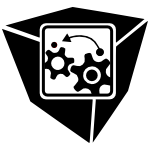 SOFTVIS-2010-FollettH #dependence #impact analysis #named #visualisation
SOFTVIS-2010-FollettH #dependence #impact analysis #named #visualisation- ImpactViz: visualizing class dependencies and the impact of changes in software revisions (MF, OH), pp. 209–210.
 SOFTVIS-2010-FrischD #diagrams #visualisation
SOFTVIS-2010-FrischD #diagrams #visualisation- Off-screen visualization techniques for class diagrams (MF, RD), pp. 163–172.
 CIKM-2010-LiHZC #collaboration
CIKM-2010-LiHZC #collaboration- Improving one-class collaborative filtering by incorporating rich user information (YL, JH, CZ, YC), pp. 959–968.
 CIKM-2010-LiuXCY #classification #feature model #multi
CIKM-2010-LiuXCY #classification #feature model #multi- Orientation distance-based discriminative feature extraction for multi-class classification (BL, YX, LC, PSY), pp. 909–918.
 ICML-2010-WalshSLD #learning
ICML-2010-WalshSLD #learning- Generalizing Apprenticeship Learning across Hypothesis Classes (TJW, KS, MLL, CD), pp. 1119–1126.
 ICML-2010-WangCV #multi
ICML-2010-WangCV #multi- Multi-Class Pegasos on a Budget (ZW, KC, SV), pp. 1143–1150.
 ICML-2010-WunderLB #multi
ICML-2010-WunderLB #multi- Classes of Multiagent Q-learning Dynamics with epsilon-greedy Exploration (MW, MLL, MB), pp. 1167–1174.
 ICPR-2010-BaradaraniMW #design #image #on the
ICPR-2010-BaradaraniMW #design #image #on the- On the Design of a Class of Odd-Length Biorthogonal Wavelet Filter Banks for Signal and Image Processing (AB, PM, QMJW), pp. 2282–2285.
 ICPR-2010-CapitaineF #evaluation
ICPR-2010-CapitaineF #evaluation- An Optimum Class-Rejective Decision Rule and Its Evaluation (HLC, CF), pp. 3312–3315.
 ICPR-2010-CordellaSFMF #classification #performance
ICPR-2010-CordellaSFMF #classification #performance- Combining Single Class Features for Improving Performance of a Two Stage Classifier (LPC, CDS, FF, CM, ASdF), pp. 4352–4355.
 ICPR-2010-DickinsonHA #multi #using #video
ICPR-2010-DickinsonHA #multi #using #video- Segmenting Video Foreground Using a Multi-Class MRF (PD, AH, KA), pp. 1848–1851.
 ICPR-2010-DitzlerPC #algorithm #incremental #learning
ICPR-2010-DitzlerPC #algorithm #incremental #learning- An Incremental Learning Algorithm for Non-stationary Environments and Class Imbalance (GD, RP, NVC), pp. 2997–3000.
 ICPR-2010-EscaleraMPRP #fault #framework #online
ICPR-2010-EscaleraMPRP #fault #framework #online- Adding Classes Online in Error Correcting Output Codes Framework (SE, DM, EP, PR, OP), pp. 2945–2948.
 ICPR-2010-GhanemVW #classification #multi
ICPR-2010-GhanemVW #classification #multi- Multi-class Pattern Classification in Imbalanced Data (ASG, SV, GAWW), pp. 2881–2884.
 ICPR-2010-HeG #classification
ICPR-2010-HeG #classification- Rare Class Classification by Support Vector Machine (HH, AG), pp. 548–551.
 ICPR-2010-HeLS #automation #recognition #verification
ICPR-2010-HeLS #automation #recognition #verification- Automatic Discrimination between Confusing Classes with Writing Styles Verification in Arabic Handwritten Numeral Recognition (CLH, LL, CYS), pp. 2045–2048.
 ICPR-2010-JingLYBY #analysis #kernel
ICPR-2010-JingLYBY #analysis #kernel- Kernel Uncorrelated Adjacent-class Discriminant Analysis (XYJ, SL, YFY, LSB, JY), pp. 706–709.
 ICPR-2010-JinHL #multi
ICPR-2010-JinHL #multi- Multi-class AdaBoost with Hypothesis Margin (XJ, XH, CLL), pp. 65–68.
 ICPR-2010-LiuYZH #multi #recognition
ICPR-2010-LiuYZH #multi #recognition- Action Recognition by Multiple Features and Hyper-Sphere Multi-class SVM (JL, JY, YZ, XH), pp. 3744–3747.
 ICPR-2010-MangalampalliCS #classification #fuzzy #image #named #performance
ICPR-2010-MangalampalliCS #classification #fuzzy #image #named #performance- I-FAC: Efficient Fuzzy Associative Classifier for Object Classes in Images (AM, VC, SS), pp. 4388–4391.
 ICPR-2010-SmithW #analysis
ICPR-2010-SmithW #analysis- A Bias-Variance Analysis of Bootstrapped Class-Separability Weighting for Error-Correcting Output Code Ensembles (RSS, TW), pp. 61–64.
 ICPR-2010-WanLJ #feature model
ICPR-2010-WanLJ #feature model- Feature Extraction Based on Class Mean Embedding (CME) (MW, ZL, ZJ), pp. 4174–4177.
 ICPR-2010-WojcikiewiczBK #classification #clustering #image
ICPR-2010-WojcikiewiczBK #classification #clustering #image- Enhancing Image Classification with Class-wise Clustered Vocabularies (WW, AB, MK), pp. 1060–1063.
 ICPR-2010-WuGZ #multi #recognition #segmentation
ICPR-2010-WuGZ #multi #recognition #segmentation- Theme-Based Multi-class Object Recognition and Segmentation (SW, JG, FZ), pp. 3013–3016.
 ICPR-2010-ZhangYWWXHY #graph #multi #recognition
ICPR-2010-ZhangYWWXHY #graph #multi #recognition- Multi-class Graph Boosting with Subgraph Sharing for Object Recognition (BZ, GY, YW, WW, JX, GH, YY), pp. 1541–1544.
 ICPR-2010-ZhuBC #multi #recognition #visual notation
ICPR-2010-ZhuBC #multi #recognition #visual notation- Multi-scale Color Local Binary Patterns for Visual Object Classes Recognition (CZ, CEB, LC), pp. 3065–3068.
 KDD-2010-AttenbergP #classification #learning #modelling #why
KDD-2010-AttenbergP #classification #learning #modelling #why- Why label when you can search?: alternatives to active learning for applying human resources to build classification models under extreme class imbalance (JA, FJP), pp. 423–432.
 KDD-2010-DuBoisS #modelling #relational
KDD-2010-DuBoisS #modelling #relational- Modeling relational events via latent classes (CD, PS), pp. 803–812.
 KDD-2010-LiuYY #algorithm #performance #problem
KDD-2010-LiuYY #algorithm #performance #problem- An efficient algorithm for a class of fused lasso problems (JL, LY, JY), pp. 323–332.
 KDD-2010-PrengerLVCH #bound #classification #fault
KDD-2010-PrengerLVCH #bound #classification #fault- Class-specific error bounds for ensemble classifiers (RJP, TDL, KRV, BYC, WGH), pp. 843–852.
 KDD-2010-PrestonBKSF #clustering #constraints #using
KDD-2010-PrestonBKSF #clustering #constraints #using- Redefining class definitions using constraint-based clustering: an application to remote sensing of the earth’s surface (DP, CEB, RK, DSM, MAF), pp. 823–832.
 KDD-2010-SunCY #approach #reduction #scalability
KDD-2010-SunCY #approach #reduction #scalability- A scalable two-stage approach for a class of dimensionality reduction techniques (LS, BC, JY), pp. 313–322.
 KDIR-2010-PadmajaBK #framework #problem #reduction
KDIR-2010-PadmajaBK #framework #problem #reduction- A Class Specific Dimensionality Reduction Framework for Class Imbalance Problem: CPC_SMOTE (TMP, RSB, PRK), pp. 237–242.
 KDIR-2010-ZhuLC #ranking
KDIR-2010-ZhuLC #ranking- Ranking Classes of Search Engine Results (ZZ, ML, IJC), pp. 294–301.
 KR-2010-BartholomewL #decidability #modelling
KR-2010-BartholomewL #decidability #modelling- A Decidable Class of Groundable Formulas in the General Theory of Stable Models (MB, JL).
 KR-2010-CondottaL #constraints #network
KR-2010-CondottaL #constraints #network- A Class of df-Consistencies for Qualitative Constraint Networks (JFC, CL).
 SEKE-2010-ArrudaCD #detection #framework #using
SEKE-2010-ArrudaCD #detection #framework #using- A Framework for Detecting Code Piracy Using Class Structure (PA, PC, DD), pp. 559–564.
 SIGIR-2010-Pasca
SIGIR-2010-Pasca- Extraction of open-domain class attributes from text: building blocks for faceted search (MP), p. 909.
 ECOOP-2010-HermansPD #automation #diagrams #spreadsheet
ECOOP-2010-HermansPD #automation #diagrams #spreadsheet- Automatically Extracting Class Diagrams from Spreadsheets (FH, MP, AvD), pp. 52–75.
 OOPSLA-2010-OliveiraMO
OOPSLA-2010-OliveiraMO- Type classes as objects and implicits (BCdSO, AM, MO), pp. 341–360.
 OOPSLA-2010-ServettoZ #composition #java #named
OOPSLA-2010-ServettoZ #composition #java #named- MetaFJig: a meta-circular composition language for Java-like classes (MS, EZ), pp. 464–483.
 OOPSLA-2010-VerwaestBGLN #named
OOPSLA-2010-VerwaestBGLN #named- Pinocchio: bringing reflection to life with first-class interpreters (TV, CB, DG, AL, ON), pp. 774–789.
 TOOLS-EUROPE-2010-MadsenE #parametricity
TOOLS-EUROPE-2010-MadsenE #parametricity- Revisiting Parametric Types and Virtual Classes (ABM, EE), pp. 233–252.
 ICSE-2010-BaresiM #automation #generative #java #named #testing
ICSE-2010-BaresiM #automation #generative #java #named #testing- TestFul: automatic unit-test generation for Java classes (LB, MM), pp. 281–284.
 ICST-2010-PorresR #contract #nondeterminism #protocol #uml
ICST-2010-PorresR #contract #nondeterminism #protocol #uml- From Nondeterministic UML Protocol Statemachines to Class Contracts (IP, IR), pp. 107–116.
 ICTSS-2010-CabralPV #algorithm #integration #order #problem
ICTSS-2010-CabralPV #algorithm #integration #order #problem- A Pareto Ant Colony Algorithm Applied to the Class Integration and Test Order Problem (RdVC, AP, SRV), pp. 16–29.
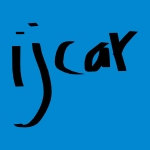 IJCAR-2010-AravantinosCP #decidability
IJCAR-2010-AravantinosCP #decidability- A Decidable Class of Nested Iterated Schemata (VA, RC, NP), pp. 293–308.
 LICS-2010-KuskeLL #automation #morphism #problem
LICS-2010-KuskeLL #automation #morphism #problem- The Isomorphism Problem on Classes of Automatic Structures (DK, JL, ML), pp. 160–169.
 VMCAI-2010-BuZL #automaton #hybrid #programming #reachability #using #verification
VMCAI-2010-BuZL #automaton #hybrid #programming #reachability #using #verification- Path-Oriented Reachability Verification of a Class of Nonlinear Hybrid Automata Using Convex Programming (LB, JZ, XL), pp. 78–94.
 CBSE-2009-Bickford #component #specification #using
CBSE-2009-Bickford #component #specification #using- Component Specification Using Event Classes (MB), pp. 140–155.
 ASE-2009-CassellAGN #automation #clustering #towards #using
ASE-2009-CassellAGN #automation #clustering #towards #using- Towards Automating Class-Splitting Using Betweenness Clustering (KC, PA, LG, JN), pp. 595–599.
 DATE-2009-LarcherBGIBG #configuration management #standard
DATE-2009-LarcherBGIBG #configuration management #standard- A MEMS reconfigurable quad-band Class-E Power Amplifier for GSM standard (LL, RB, MG, JI, MB, AG), pp. 364–368.
 DATE-2009-LinHL #design
DATE-2009-LinHL #design- Enhanced design of filterless class-D audio amplifier (CWL, BSH, YCL), pp. 1397–1402.
 ICDAR-2009-AlaeiNP #classification
ICDAR-2009-AlaeiNP #classification- Fine Classification of Unconstrained Handwritten Persian/Arabic Numerals by Removing Confusion amongst Similar Classes (AA, PN, UP), pp. 601–605.
 SIGMOD-2009-Freitas #memory management
SIGMOD-2009-Freitas #memory management- Storage class memory: technology, systems and applications (RFF), pp. 985–986.
 VLDB-2009-CormodeSBK #graph #network #social
VLDB-2009-CormodeSBK #graph #network #social- Class-based graph anonymization for social network data (GC, DS, SB, BK), pp. 766–777.
 CSEET-2009-Bass #quality
CSEET-2009-Bass #quality- Making Quality Attributes First Class Entities (LB), p. 3.
 ITiCSE-2009-Lasserre #adaptation #learning #programming
ITiCSE-2009-Lasserre #adaptation #learning #programming- Adaptation of team-based learning on a first term programming class (PL), pp. 186–190.
 CSMR-2009-JoshiJ #concept analysis
CSMR-2009-JoshiJ #concept analysis- Concept Analysis for Class Cohesion (PJ, RKJ), pp. 237–240.
 CSMR-2009-MihanceaM #comprehension
CSMR-2009-MihanceaM #comprehension- Discovering Comprehension Pitfalls in Class Hierarchies (PFM, RM), pp. 7–16.
 ICPC-2009-SharifM #comprehension #diagrams #empirical #uml
ICPC-2009-SharifM #comprehension #diagrams #empirical #uml- An empirical study on the comprehension of stereotyped UML class diagram layouts (BS, JIM), pp. 268–272.
 ICSM-2009-FokaefsTCS #clustering #object-oriented #using
ICSM-2009-FokaefsTCS #clustering #object-oriented #using- Decomposing object-oriented class modules using an agglomerative clustering technique (MF, NT, AC, JS), pp. 93–101.
 ICSM-2009-LiuPFGC #modelling #topic
ICSM-2009-LiuPFGC #modelling #topic- Modeling class cohesion as mixtures of latent topics (YL, DP, RF, TG, NC), pp. 233–242.
 WCRE-1999-CostaJCP99a #modelling
WCRE-1999-CostaJCP99a #modelling- Recovering Class Models Stereotyped with Crosscutting Concerns (HAXC, PAPJ, VVdC, RADP), pp. 311–312.
 WCRE-1999-VaucherKMG99a #case study #design #lessons learnt #smell
WCRE-1999-VaucherKMG99a #case study #design #lessons learnt #smell- Tracking Design Smells: Lessons from a Study of God Classes (SV, FK, NM, YGG), pp. 145–154.
 PLDI-2009-QiM #product line
PLDI-2009-QiM #product line- Sharing classes between families (XQ, ACM), pp. 281–292.
 DLT-2009-Souza #decidability #equivalence #on the #transducer
DLT-2009-Souza #decidability #equivalence #on the #transducer- On the Decidability of the Equivalence for a Certain Class of Transducers (RdS), pp. 478–489.
 LATA-2009-LiuM #automation #complexity
LATA-2009-LiuM #automation #complexity- Analysing Complexity in Classes of Unary Automatic Structures (JL, MM), pp. 518–529.
 FM-2009-JohnsenKY #composition #concurrent #distributed #evolution
FM-2009-JohnsenKY #composition #concurrent #distributed #evolution- Dynamic Classes: Modular Asynchronous Evolution of Distributed Concurrent Objects (EBJ, MK, ICY), pp. 596–611.
 FM-2009-SaidBS #refinement #state machine #tool support #uml
FM-2009-SaidBS #refinement #state machine #tool support #uml- Language and Tool Support for Class and State Machine Refinement in UML-B (MYS, MJB, CFS), pp. 579–595.
 ICFP-2009-RompfMO #continuation #implementation #polymorphism
ICFP-2009-RompfMO #continuation #implementation #polymorphism- Implementing first-class polymorphic delimited continuations by a type-directed selective CPS-transform (TR, IM, MO), pp. 317–328.
 ICFP-2009-VieraSS #aspect-oriented #attribute grammar #haskell #how #programming
ICFP-2009-VieraSS #aspect-oriented #attribute grammar #haskell #how #programming- Attribute grammars fly first-class: how to do aspect oriented programming in Haskell (MV, SDS, WS), pp. 245–256.
 ICFP-2009-Voigtlander #functional #theorem
ICFP-2009-Voigtlander #functional #theorem- Free theorems involving type constructor classes: functional pearl (JV), pp. 173–184.
 HIMI-II-2009-AndoM #how #interactive #mobile #motivation #question #student
HIMI-II-2009-AndoM #how #interactive #mobile #motivation #question #student- How Mobile Interaction Motivates Students in a Class? (AA, KM), pp. 621–631.
 OCSC-2009-JohnsonB #community #wiki
OCSC-2009-JohnsonB #community #wiki- Creating Community through the Use of a Class Wiki (KAJ, JB), pp. 471–478.
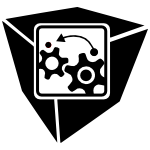 VISSOFT-2009-SharifM #comprehension #diagrams #empirical #layout #uml
VISSOFT-2009-SharifM #comprehension #diagrams #empirical #layout #uml- The effect of layout on the comprehension of UML class diagrams: A controlled experiment (BS, JIM), pp. 11–18.
 ICEIS-AIDSS-2009-RaimbaultGL #diagrams #information management #uml #using
ICEIS-AIDSS-2009-RaimbaultGL #diagrams #information management #uml #using- Using UML Class Diagram as a Knowledge Engineering Tool (TR, DG, SL), pp. 60–65.
 CIKM-2009-QianNZ #multi #performance
CIKM-2009-QianNZ #multi #performance- Efficient multi-class unlabeled constrained semi-supervised SVM (MQ, FN, CZ), pp. 1665–1668.
 CIKM-2009-QiCKKW #learning
CIKM-2009-QiCKKW #learning- Combining labeled and unlabeled data with word-class distribution learning (YQ, RC, PPK, KK, JW), pp. 1737–1740.
 CIKM-2009-WangHLS #comprehension #learning #query #semantics #web
CIKM-2009-WangHLS #comprehension #learning #query #semantics #web- Semi-supervised learning of semantic classes for query understanding: from the web and for the web (YYW, RH, XL, JS), pp. 37–46.
 ICML-2009-Li #adaptation #classification #multi #named
ICML-2009-Li #adaptation #classification #multi #named- ABC-boost: adaptive base class boost for multi-class classification (PL0), pp. 625–632.
 ICML-2009-PlathTN #classification #image #multi #random #segmentation #using
ICML-2009-PlathTN #classification #image #multi #random #segmentation #using- Multi-class image segmentation using conditional random fields and global classification (NP, MT, SN), pp. 817–824.
 ICML-2009-SunJY #machine learning #problem
ICML-2009-SunJY #machine learning #problem- A least squares formulation for a class of generalized eigenvalue problems in machine learning (LS, SJ, JY), pp. 977–984.
 KDD-2009-KolczC #composition #email
KDD-2009-KolczC #composition #email- Genre-based decomposition of email class noise (AK, GVC), pp. 427–436.
 KDD-2009-MaunzHK #graph #mining #refinement #scalability #using
KDD-2009-MaunzHK #graph #mining #refinement #scalability #using- Large-scale graph mining using backbone refinement classes (AM, CH, SK), pp. 617–626.
 KDD-2009-PanS #collaboration #scalability
KDD-2009-PanS #collaboration #scalability- Mind the gaps: weighting the unknown in large-scale one-class collaborative filtering (RP, MS), pp. 667–676.
 KDD-2009-XueW #classification #quantifier
KDD-2009-XueW #classification #quantifier- Quantification and semi-supervised classification methods for handling changes in class distribution (JCX, GMW), pp. 897–906.
 KDIR-2009-BruyneP #classification
KDIR-2009-BruyneP #classification- 2-class Eigen Transformation Classification Trees (SDB, FP), pp. 251–258.
 KDIR-2009-VillalbaC #biology #case study #classification #generative #reduction
KDIR-2009-VillalbaC #biology #case study #classification #generative #reduction- Artificial Data Generation for One-class Classification — A Case Study of Dimensionality Reduction for Text and Biological Data (SDV, PC), pp. 202–210.
 KEOD-2009-HermidaRMP #case study #modelling #ontology #owl #reuse #uml
KEOD-2009-HermidaRMP #case study #modelling #ontology #owl #reuse #uml- Reusing UML Class Models to Generate OWL Ontologies — A Use Case in the Pharmacotherapeutic Domain (JMH, MTRF, AM, MP), pp. 281–286.
 MLDM-2009-SilvaSNPJN #classification #geometry #image #metric #using
MLDM-2009-SilvaSNPJN #classification #geometry #image #metric #using- Lung Nodules Classification in CT Images Using Simpson’s Index, Geometrical Measures and One-Class SVM (CAdS, ACS, SMBN, ACdP, GBJ, RAN), pp. 810–822.
 SEKE-2009-LiangKS #approach #automation #case study #diagrams
SEKE-2009-LiangKS #approach #automation #case study #diagrams- Automatic Class Matching to Compare Extracted Class Diagrams: Approach and Case Study (YL, NAK, RKS), pp. 268–273.
 SIGIR-2009-Collins-ThompsonB #performance #predict #query #using
SIGIR-2009-Collins-ThompsonB #performance #predict #query #using- Estimating query performance using class predictions (KCT, PNB), pp. 672–673.
 ECOOP-2009-Jones #haskell #what #why
ECOOP-2009-Jones #haskell #what #why- Classes, Jim, But Not as We Know Them — Type Classes in Haskell: What, Why, and Whither (SLPJ), p. 1.
 ECOOP-2009-LagorioSZ #calculus #composition
ECOOP-2009-LagorioSZ #calculus #composition- Featherweight Jigsaw: A Minimal Core Calculus for Modular Composition of Classes (GL, MS, EZ), pp. 244–268.
 OOPSLA-2009-TsafrirWBS #dependence #performance #source code
OOPSLA-2009-TsafrirWBS #dependence #performance #source code- Minimizing dependencies within generic classes for faster and smaller programs (DT, RWW, DFB, BS), pp. 425–444.
 GPCE-2009-McGacheyHM #java #pervasive
GPCE-2009-McGacheyHM #java #pervasive- Classifying Java class transformations for pervasive virtualized access (PM, ALH, JEBM), pp. 75–84.
 POPL-2009-Leijen #flexibility #morphism #polymorphism #robust #type inference
POPL-2009-Leijen #flexibility #morphism #polymorphism #robust #type inference- Flexible types: robust type inference for first-class polymorphism (DL), pp. 66–77.
 SAC-2009-BrooksI #classification #detection #novel #visual notation
SAC-2009-BrooksI #classification #detection #novel #visual notation- Visual detection of novel terrain via two-class classification (CAB, KI), pp. 1145–1150.
 SAC-2009-ChoiKHK #component #dependence #metric
SAC-2009-ChoiKHK #component #dependence #metric- Component-based metrics applying the strength of dependency between classes (MC, IJK, JH, JYK), pp. 530–536.
 SAC-2009-Hurlin #parallel #protocol #specification #thread
SAC-2009-Hurlin #parallel #protocol #specification #thread- Specifying and checking protocols of multithreaded classes (CH), pp. 587–592.
 SAC-2009-ShenU #approximate #composition #concept #matrix #multi
SAC-2009-ShenU #approximate #composition #concept #matrix #multi- A class of multistep sparse matrix strategies for concept decomposition matrix approximation (CS, MU), pp. 1714–1718.
 ICLP-2009-LierlerL #decidability #source code
ICLP-2009-LierlerL #decidability #source code- One More Decidable Class of Finitely Ground Programs (YL, VL), pp. 489–493.
 ASE-2008-FalleriHN #approach #normalisation
ASE-2008-FalleriHN #approach #normalisation- A Generic Approach for Class Model Normalization (JRF, MH, CN), pp. 431–434.
 CASE-2008-HouZWCT #adaptation #approach #fuzzy #nondeterminism #using
CASE-2008-HouZWCT #adaptation #approach #fuzzy #nondeterminism #using- Adaptive dynamic surface control of a class of uncertain nonlinear systems in pure-feedback form using fuzzy backstepping approach (ZGH, AMZ, FXW, LC, MT), pp. 821–826.
 CASE-2008-KuanCJ #modelling
CASE-2008-KuanCJ #modelling- Method for proposing sort screen thresholds based on modeling etest/sort-class in semiconductor manufacturing (WKY, LCC, WJL), pp. 236–241.
 VLDB-2008-LeeHLG #classification #clustering #named #using
VLDB-2008-LeeHLG #classification #clustering #named #using- TraClass: trajectory classification using hierarchical region-based and trajectory-based clustering (JGL, JH, XL, HG), pp. 1081–1094.
 ITiCSE-2008-Abad #case study #distributed #experience #learning
ITiCSE-2008-Abad #case study #distributed #experience #learning- Learning through creating learning objects: experiences with a class project in a distributed systems course (CLA), pp. 255–259.
 ITiCSE-2008-Fekete #education #java #student #thread
ITiCSE-2008-Fekete #education #java #student #thread- Teaching students to develop thread-safe java classes (ADF), pp. 119–123.
 ITiCSE-2008-PatersonHC #education #semantics
ITiCSE-2008-PatersonHC #education #semantics- Drawing the line: teaching the semantics of binary class associations (JHP, JH, KFC), p. 362.
 FASE-2008-DenaroGP #integration #testing
FASE-2008-DenaroGP #integration #testing- Contextual Integration Testing of Classes (GD, AG, MP), pp. 246–260.
 FoSSaCS-2008-GodoyMT #decidability #morphism
FoSSaCS-2008-GodoyMT #decidability #morphism- Classes of Tree Homomorphisms with Decidable Preservation of Regularity (GG, SM, ST), pp. 127–141.
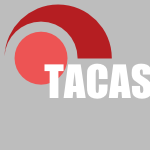 TACAS-2008-FarzanCCTW #automation #composition #regular expression #verification
TACAS-2008-FarzanCCTW #automation #composition #regular expression #verification- Extending Automated Compositional Verification to the Full Class of ω-Regular Languages (AF, YFC, EMC, YKT, BYW), pp. 2–17.
 CSMR-2008-LuciaGOT #diagrams #maintenance #modelling #process #uml
CSMR-2008-LuciaGOT #diagrams #maintenance #modelling #process #uml- Assessing the Support of ER and UML Class Diagrams during Maintenance Activities on Data Models (ADL, CG, RO, GT), pp. 173–182.
 ICPC-2008-DenierG #metric #named
ICPC-2008-DenierG #metric #named- Mendel: A Model, Metrics, and Rules to Understand Class Hierarchies (SD, YGG), pp. 143–152.
 ICPC-2008-LuciaGOT #comparison #comprehension #diagrams #empirical #uml
ICPC-2008-LuciaGOT #comparison #comprehension #diagrams #empirical #uml- Data Model Comprehension: An Empirical Comparison of ER and UML Class Diagrams (ADL, CG, RO, GT), pp. 93–102.
 ICSM-2008-LuciaOV #metric #semantics #using
ICSM-2008-LuciaOV #metric #semantics #using- Using structural and semantic metrics to improve class cohesion (ADL, RO, LV), pp. 27–36.
 ICSM-2008-PentaCGA #design pattern #empirical
ICSM-2008-PentaCGA #design pattern #empirical- An empirical study of the relationships between design pattern roles and class change proneness (MDP, LC, YGG, GA), pp. 217–226.
 SCAM-2008-Mihancea #approach #re-engineering #visual notation
SCAM-2008-Mihancea #approach #re-engineering #visual notation- Type Highlighting: A Client-Driven Visual Approach for Class Hierarchies Reengineering (PFM), pp. 207–216.
 SCAM-2008-SingerK
SCAM-2008-SingerK- Exploiting the Correspondence between Micro Patterns and Class Names (JS, CCK), pp. 67–76.
 WCRE-2008-BhattiDH #object-oriented
WCRE-2008-BhattiDH #object-oriented- Reconsidering Classes in Procedural Object-Oriented Code (MUB, SD, MH), pp. 257–266.
 WCRE-2008-Ebraert #feature model #programming
WCRE-2008-Ebraert #feature model #programming- First-Class Change Objects for Feature-Oriented Programming (PE), pp. 319–322.
 SEFM-2008-DjokoDF #aspect-oriented
SEFM-2008-DjokoDF #aspect-oriented- Specialized Aspect Languages Preserving Classes of Properties (SDD, RD, PF), pp. 227–236.
 ICFP-2008-Leijen #morphism #named #polymorphism #type inference
ICFP-2008-Leijen #morphism #named #polymorphism #type inference- HMF: simple type inference for first-class polymorphism (DL), pp. 283–294.
 ICFP-2008-VytiniotisWJ #haskell #morphism #named #polymorphism
ICFP-2008-VytiniotisWJ #haskell #morphism #named #polymorphism- FPH: first-class polymorphism for Haskell (DV, SW, SLPJ), pp. 295–306.
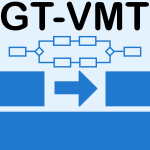 GT-VMT-2006-HermannET08 #diagrams #graph grammar #inheritance #sequence chart #syntax #uml
GT-VMT-2006-HermannET08 #diagrams #graph grammar #inheritance #sequence chart #syntax #uml- A Typed Attributed Graph Grammar with Inheritance for the Abstract Syntax of UML Class and Sequence Diagrams (FH, HE, GT), pp. 261–269.
 GT-VMT-2008-RensinkK #diagrams #graph #on the #semantics #uml
GT-VMT-2008-RensinkK #diagrams #graph #on the #semantics #uml- On a Graph-Based Semantics for UML Class and Object Diagrams (AR, AK).
 CHI-2008-LuoLLT #image #multi #named #query
CHI-2008-LuoLLT #image #multi #named #query- MQSearch: image search by multi-class query (YL, WL, JL, XT), pp. 49–52.
 SIGAda-2008-Moore #ada #using
SIGAda-2008-Moore #ada #using- A buffer container class hierarchy using Ada 2005 (BJM), pp. 57–74.
 ICEIS-AIDSS-2008-BoucheGC #sequence
ICEIS-AIDSS-2008-BoucheGC #sequence- A Global Model of Sequences of Discrete Event Class Occurrences (PB, MLG, JC), pp. 173–180.
 ICEIS-AIDSS-2008-GocB #sequence
ICEIS-AIDSS-2008-GocB #sequence- Discovering Expert’s Knowledge from Sequences of Discrete Event Class Occurrences (MLG, NB), pp. 253–260.
 ICEIS-ISAS2-2008-ShigemitsuS #diagrams
ICEIS-ISAS2-2008-ShigemitsuS #diagrams- Extracting Class Structure Based on Fishbone Diagrams (MS, YS), pp. 460–465.
 CIKM-2008-ChalamallaNSR #identification
CIKM-2008-ChalamallaNSR #identification- Identification of class specific discourse patterns (AC, SN, LVS, GR), pp. 1193–1202.
 CIKM-2008-GhelliCS #linear #regular expression
CIKM-2008-GhelliCS #linear #regular expression- Linear time membership in a class of regular expressions with interleaving and counting (GG, DC, CS), pp. 389–398.
 CIKM-2008-LoekitoB #behaviour #mining
CIKM-2008-LoekitoB #behaviour #mining- Mining influential attributes that capture class and group contrast behaviour (EL, JB), pp. 971–980.
 CIKM-2008-ShiLW #multi #semantics
CIKM-2008-ShiLW #multi #semantics- Pattern-based semantic class discovery with multi-membership support (SS, XL, JRW), pp. 1453–1454.
 ECIR-2008-OfoghiYM #identification #natural language #semantics
ECIR-2008-OfoghiYM #identification #natural language #semantics- The Impact of Semantic Class Identification and Semantic Role Labeling on Natural Language Answer Extraction (BO, JY, LM), pp. 430–437.
 ICML-2008-CrammerTP #clustering
ICML-2008-CrammerTP #clustering- A rate-distortion one-class model and its applications to clustering (KC, PPT, FCNP), pp. 184–191.
 ICML-2008-OBrienGG #classification #multi #probability
ICML-2008-OBrienGG #classification #multi #probability- Cost-sensitive multi-class classification from probability estimates (DBO, MRG, RMG), pp. 712–719.
 ICPR-2008-IlayarajaNJ #implementation #performance #problem #scalability
ICPR-2008-IlayarajaNJ #implementation #performance #problem #scalability- Efficient implementation of SVM for large class problems (PI, NVN, CVJ), pp. 1–4.
 ICPR-2008-PaclikLND #analysis #estimation #multi #using
ICPR-2008-PaclikLND #analysis #estimation #multi #using- Variance estimation for two-class and multi-class ROC analysis using operating point averaging (PP, CL, JN, RPWD), pp. 1–4.
 ICPR-2008-RicamatoMT #comparison #empirical
ICPR-2008-RicamatoMT #comparison #empirical- MCS-based balancing techniques for skewed classes: An empirical comparison (MTR, CM, FT), pp. 1–4.
 KDD-2008-KeerthiSCHL #linear #multi #scalability
KDD-2008-KeerthiSCHL #linear #multi #scalability- A sequential dual method for large scale multi-class linear svms (SSK, SS, KWC, CJH, CJL), pp. 408–416.
 KDD-2008-LozanoA #multi
KDD-2008-LozanoA #multi- Multi-class cost-sensitive boosting with p-norm loss functions (ACL, NA), pp. 506–514.
 SEKE-2008-HewettKS #generative #integration #object-oriented #order #performance #testing
SEKE-2008-HewettKS #generative #integration #object-oriented #order #performance #testing- Test Order Generation for Efficient Object-oriented Class Integration Testing (RH, PK, DS), pp. 703–708.
 MoDELS-2008-YuFR #modelling #static analysis #uml
MoDELS-2008-YuFR #modelling #static analysis #uml- Scenario-Based Static Analysis of UML Class Models (LY, RBF, IR), pp. 234–248.
 MoDELS-2008-YuFR #modelling #static analysis #uml
MoDELS-2008-YuFR #modelling #static analysis #uml- Scenario-Based Static Analysis of UML Class Models (LY, RBF, IR), pp. 234–248.
 ECOOP-2008-BiermanPN #incremental #named
ECOOP-2008-BiermanPN #incremental #named- UpgradeJ: Incremental Typechecking for Class Upgrades (GMB, MJP, JN), pp. 235–259.
 TOOLS-EUROPE-2008-NielsenE #composition #optimisation #static typing
TOOLS-EUROPE-2008-NielsenE #composition #optimisation #static typing- Optimizing Dynamic Class Composition in a Statically Typed Language (ABN, EE), pp. 161–177.
 GPCE-2008-KaminaT #lightweight
GPCE-2008-KaminaT #lightweight- Lightweight dependent classes (TK, TT), pp. 113–124.
 PPDP-2008-MarionP #complexity #polynomial
PPDP-2008-MarionP #complexity #polynomial- Characterizations of polynomial complexity classes with a better intensionality (JYM, RP), pp. 79–88.
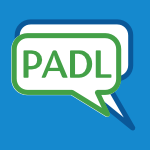 PADL-2008-FernandezFFGM #developer #ml #programming #tool support
PADL-2008-FernandezFFGM #developer #ml #programming #tool support- A Generic Programming Toolkit for PADS/ML: First-Class Upgrades for Third-Party Developers (MFF, KF, JNF, MG, YM), pp. 133–149.
 POPL-2008-Pientka #higher-order #programming #syntax
POPL-2008-Pientka #higher-order #programming #syntax- A type-theoretic foundation for programming with higher-order abstract syntax and first-class substitutions (BP), pp. 371–382.
 SAC-2008-ChenXN #analysis #detection #fault #specification
SAC-2008-ChenXN #analysis #detection #fault #specification- A detectability analysis of fault classes for Boolean specifications (ZC, BX, CN), pp. 826–830.
 SAC-2008-NishizawaC #java #refinement
SAC-2008-NishizawaC #java #refinement- A small extension to Java for class refinement (MN, SC), pp. 160–165.
 OSDI-2008-YangLBKM #named #operating system
OSDI-2008-YangLBKM #named #operating system- Redline: First Class Support for Interactivity in Commodity Operating Systems (TY, TL, EDB, SFK, JEBM), pp. 73–86.
 SAT-2008-PorschenS #linear
SAT-2008-PorschenS #linear- A CNF Class Generalizing Exact Linear Formulas (SP, ES), pp. 231–245.
 ECSA-2007-Kjaer #architecture #prototype
ECSA-2007-Kjaer #architecture #prototype- First Class Connectors for Prototyping Service Oriented Architectures (KEK), pp. 171–178.
 ASE-2007-WapplerS #testing
ASE-2007-WapplerS #testing- Improving evolutionary class testing in the presence of non-public methods (SW, IS), pp. 381–384.
 CASE-2007-YipLL #process
CASE-2007-YipLL #process- Forecasting Final/Class Yield Based on Fabrication Process E-Test and Sort Data (WKY, KGL, WJL), pp. 478–483.
 CASE-2007-ZhaoLZ #on the #petri net
CASE-2007-ZhaoLZ #on the #petri net- On Supervisory Control of a Class of Discrete Event Systems Modeled by Petri Nets (MZ, ZL, MZ), pp. 1–6.
 ICDAR-2007-UchidaSIOK #embedded
ICDAR-2007-UchidaSIOK #embedded- Extraction of Embedded Class Information from Universal Character Pattern (SU, MS, MI, SO, KK), pp. 437–441.
 ICDAR-2007-WendlingR #recognition #using
ICDAR-2007-WendlingR #recognition #using- Symbol Recognition Using a 2-class Hierarchical Model of Choquet Integrals (LW, JR), pp. 634–638.
 ITiCSE-2007-KheirW #realtime #speech #student #using
ITiCSE-2007-KheirW #realtime #speech #student #using- Inclusion of deaf students in computer science classes using real-time speech transcription (RK, TW), pp. 261–265.
 ITiCSE-2007-PatersonH #design #implementation
ITiCSE-2007-PatersonH #design #implementation- From classes to code: supporting the transition from design to implementation (JHP, JH), p. 362.
 ITiCSE-2007-PecinovskyP #interface #order
ITiCSE-2007-PecinovskyP #interface #order- Order of explanation should be interface: abstract classes — overriding (RP, JP), p. 338.
 WCRE-J-2005-SuttonM07 #c++ #modelling #uml
WCRE-J-2005-SuttonM07 #c++ #modelling #uml- Recovering UML class models from C++: A detailed explanation (AS, JIM), pp. 212–229.
 ICPC-2007-YusufKM #comprehension #diagrams #eye tracking #uml
ICPC-2007-YusufKM #comprehension #diagrams #eye tracking #uml- Assessing the Comprehension of UML Class Diagrams via Eye Tracking (SY, HHK, JIM), pp. 113–122.
 ICSM-2007-BowmanBL #algorithm #multi #search-based
ICSM-2007-BowmanBL #algorithm #multi #search-based- Multi-Objective Genetic Algorithm to Support Class Responsibility Assignment (MB, LCB, YL), pp. 124–133.
 SCAM-2007-SawinR #java
SCAM-2007-SawinR #java- Improved Static Resolution of Dynamic Class Loading in Java (JS, AR), pp. 143–154.
 STOC-2007-Santhanam #bound
STOC-2007-Santhanam #bound- Circuit lower bounds for Merlin-Arthur classes (RS), pp. 275–283.
 CIAA-J-2006-NicartCCGK07 #automaton #multi
CIAA-J-2006-NicartCCGK07 #automaton #multi- Labelling Multi-Tape Automata with Constrained Symbol Classes (FN, JMC, TC, TG, AK), pp. 847–858.
 ICALP-2007-BurgisserC #complexity #problem #quantifier
ICALP-2007-BurgisserC #complexity #problem #quantifier- Exotic Quantifiers, Complexity Classes, and Complete Problems (PB, FC), pp. 207–218.
 IFM-2007-CavarraW #behaviour #modelling #specification
IFM-2007-CavarraW #behaviour #modelling #specification- Behavioural Specifications from Class Models (AC, JW), pp. 118–137.
 HIMI-IIE-2007-AndoM #education #student
HIMI-IIE-2007-AndoM #education #student- A New Method for Teachers and Students to Record Daily Progress in a Class (AA, KM), pp. 245–251.
 VISSOFT-2007-KagdiM #diagrams #graph #uml
VISSOFT-2007-KagdiM #diagrams #graph #uml- Onion Graphs for Focus+Context Views of UML Class Diagrams (HHK, JIM), pp. 80–87.
 CIKM-2007-PascaDG #documentation #query
CIKM-2007-PascaDG #documentation #query- The role of documents vs. queries in extracting class attributes from text (MP, BVD, NG), pp. 485–494.
 CIKM-2007-SarmentoJRO #quote
CIKM-2007-SarmentoJRO #quote- “More like these”: growing entity classes from seeds (LS, VJ, MdR, EO), pp. 959–962.
 ICML-2007-McNeillV #generative #linear #modelling #probability
ICML-2007-McNeillV #generative #linear #modelling #probability- Linear and nonlinear generative probabilistic class models for shape contours (GM, SV), pp. 617–624.
 KDD-2007-LiLW #equivalence #mining #statistics
KDD-2007-LiLW #equivalence #mining #statistics- Mining statistically important equivalence classes and delta-discriminative emerging patterns (JL, GL, LW), pp. 430–439.
 KDD-2007-WuWCX #analysis #composition
KDD-2007-WuWCX #analysis #composition- Local decomposition for rare class analysis (JW, HX, PW, JC), pp. 814–823.
 MLDM-2007-Lehmann #hybrid #learning #ontology
MLDM-2007-Lehmann #hybrid #learning #ontology- Hybrid Learning of Ontology Classes (JL), pp. 883–898.
 SEKE-2007-FollecoKHS #learning #quality
SEKE-2007-FollecoKHS #learning #quality- Learning from Software Quality Data with Class Imbalance and Noise (AF, TMK, JVH, CS), p. 487–?.
 SIGIR-2007-ErtekinHG #learning #problem
SIGIR-2007-ErtekinHG #learning #problem- Active learning for class imbalance problem (SE, JH, CLG), pp. 823–824.
 ECMDA-FA-2007-MaraeeB #diagrams #finite #performance #reasoning #satisfiability #set #uml
ECMDA-FA-2007-MaraeeB #diagrams #finite #performance #reasoning #satisfiability #set #uml- Efficient Reasoning About Finite Satisfiability of UML Class Diagrams with Constrained Generalization Sets (AM, MB), pp. 17–31.
 MoDELS-2007-CabotG #contract #diagrams #uml
MoDELS-2007-CabotG #contract #diagrams #uml- Deriving Operation Contracts from UML Class Diagrams (JC, CG), pp. 196–210.
 MoDELS-2007-CabotG #contract #diagrams #uml
MoDELS-2007-CabotG #contract #diagrams #uml- Deriving Operation Contracts from UML Class Diagrams (JC, CG), pp. 196–210.
 ECOOP-2007-DoorenS #abstraction #inheritance #using
ECOOP-2007-DoorenS #abstraction #inheritance #using- A Higher Abstraction Level Using First-Class Inheritance Relations (MvD, ES), pp. 425–449.
 ECOOP-2007-HuangZS #image #named
ECOOP-2007-HuangZS #image #named- Morphing: Safely Shaping a Class in the Image of Others (SSH, DZ, YS), pp. 399–424.
 OOPSLA-2007-GasiunasMO
OOPSLA-2007-GasiunasMO- Dependent classes (VG, MM, KO), pp. 133–152.
 TOOLS-EUROPE-2007-BalsCEE #design #modelling #named #object-oriented #spreadsheet
TOOLS-EUROPE-2007-BalsCEE #design #modelling #named #object-oriented #spreadsheet- ClassSheets — model-based, object-oriented design of spreadsheet applications (JCB, FC, GE, ME), pp. 383–398.
 POPL-2007-DreyerHCK #composition
POPL-2007-DreyerHCK #composition- Modular type classes (DD, RH, MMTC, GK), pp. 63–70.
 POPL-2007-SiskindP #standard
POPL-2007-SiskindP #standard- First-class nonstandard interpretations by opening closures (JMS, BAP), pp. 71–76.
 SAC-2007-LamprierALS #clustering #named #segmentation
SAC-2007-LamprierALS #clustering #named #segmentation- ClassStruggle: a clustering based text segmentation (SL, TA, BL, FS), pp. 600–604.
 SAC-2007-VignagaB #design #diagrams #interactive
SAC-2007-VignagaB #design #diagrams #interactive- Transforming system operations’ interactions into a design class diagram (AV, MCB), pp. 993–997.
 ICSE-2007-KiezunETF #java #refactoring
ICSE-2007-KiezunETF #java #refactoring- Refactoring for Parameterizing Java Classes (AK, MDE, FT, RMF), pp. 437–446.
 ICSE-2007-TurhanB #re-engineering
ICSE-2007-TurhanB #re-engineering- A Template for Real World Team Projects for Highly Populated Software Engineering Classes (BT, ABB), pp. 748–753.
 ICSE-2007-Zualkernan #learning #programming #using
ICSE-2007-Zualkernan #learning #programming #using- Using Soloman-Felder Learning Style Index to Evaluate Pedagogical Resources for Introductory Programming Classes (IAZ), pp. 723–726.
 HPDC-2007-ZhengVT #fault tolerance #replication #scheduling
HPDC-2007-ZhengVT #fault tolerance #replication #scheduling- Fault-tolerant scheduling for differentiated classes of tasks with low replication cost in computational grids (QZ, BV, CKT), pp. 239–240.
 PPoPP-2007-CarlstromMCKO #transaction
PPoPP-2007-CarlstromMCKO #transaction- Transactional collection classes (BDC, AM, MC, CK, KO), pp. 56–67.
 AMOST-2007-MassonJPJD #automation #generative #modelling #security #testing
AMOST-2007-MassonJPJD #automation #generative #modelling #security #testing- Automatic generation of model based tests for a class of security properties (PAM, JJ, JCP, EJ, GD), pp. 12–22.
 CSL-2007-AehligB #logic
CSL-2007-AehligB #logic- Propositional Logic for Circuit Classes (KA, AB), pp. 512–526.
 CSL-2007-AehligCN #complexity
CSL-2007-AehligCN #complexity- Relativizing Small Complexity Classes and Their Theories (KA, SAC, PN), pp. 374–388.
 CSL-2007-DawarR #finite #logic #power of #strict
CSL-2007-DawarR #finite #logic #power of #strict- The Power of Counting Logics on Restricted Classes of Finite Structures (AD, DR), pp. 84–98.
 LICS-2007-TorreMP #context-sensitive grammar #robust
LICS-2007-TorreMP #context-sensitive grammar #robust- A Robust Class of Context-Sensitive Languages (SLT, PM, GP), pp. 161–170.
 VMCAI-2007-Logozzo #abstract interpretation #analysis #composition #java #named #verification
VMCAI-2007-Logozzo #abstract interpretation #analysis #composition #java #named #verification- Cibai: An Abstract Interpretation-Based Static Analyzer for Modular Analysis and Verification of Java Classes (FL), pp. 283–298.
 ASE-2006-SatohKU #diagrams #uml
ASE-2006-SatohKU #diagrams #uml- Contradiction Finding and Minimal Recovery for UML Class Diagrams (KS, KK, TU), pp. 277–280.
 CASE-2006-FangL #agile #multi
CASE-2006-FangL #agile #multi- A Class of Optimal Operation Planning for Kanban Managed Multi-Stage Production System (YF, YJL), pp. 369–374.
 CASE-2006-LiuWL #algorithm #performance #petri net #set
CASE-2006-LiuWL #algorithm #performance #petri net #set- A fast algorithm to find a set of elementary siphons for a class of petri nets (XL, AW, ZL), pp. 399–404.
 DATE-2006-MajidzadehS #design #higher-order #novel
DATE-2006-MajidzadehS #design #higher-order #novel- Arbitrary design of high order noise transfer function for a novel class of reduced-sample-rate sigma-delta-pipeline ADCs (VM, OS), pp. 138–143.
 ICPC-2006-Mihancea #towards
ICPC-2006-Mihancea #towards- Towards a Client Driven Characterization of Class Hierarchies (PFM), pp. 285–294.
 ICSM-2006-TomaszewskiGL #fault #predict
ICSM-2006-TomaszewskiGL #fault #predict- A Method for an Accurate Early Prediction of Faults in Modified Classes (PT, HG, LL), pp. 487–496.
 MSR-2006-KakimotoMKTTM #identification #using
MSR-2006-KakimotoMKTTM #identification #using- Using software birthmarks to identify similar classes and major functionalities (TK, AM, YK, HT, MT, KiM), pp. 171–172.
 MSR-2006-SagerBPK #algorithm #detection #java #using
MSR-2006-SagerBPK #algorithm #detection #java #using- Detecting similar Java classes using tree algorithms (TS, AB, MP, CK), pp. 65–71.
 WCRE-2006-KorshunovaPBM #c++ #diagrams #named #process #reverse engineering #sequence #source code #uml #xmi
WCRE-2006-KorshunovaPBM #c++ #diagrams #named #process #reverse engineering #sequence #source code #uml #xmi- CPP2XMI: Reverse Engineering of UML Class, Sequence, and Activity Diagrams from C++ Source Code (EK, MP, MvdB, MRM), pp. 297–298.
 STOC-2006-KawarabayashiM #approximate #graph
STOC-2006-KawarabayashiM #approximate #graph- Approximating the list-chromatic number and the chromatic number in minor-closed and odd-minor-closed classes of graphs (KiK, BM), pp. 401–416.
 CIAA-2006-NicartCCGK #automaton #multi
CIAA-2006-NicartCCGK #automaton #multi- Multi-tape Automata with Symbol Classes (FN, JMC, TC, TG, AK), pp. 126–136.
 DLT-2006-ItoLS #bound
DLT-2006-ItoLS #bound- Closure of Language Classes Under Bounded Duplication (MI, PL, KST), pp. 238–247.
 FM-2006-McCombS #composition #refinement
FM-2006-McCombS #composition #refinement- Compositional Class Refinement in Object-Z (TM, GS), pp. 205–220.
 ICFP-2006-BlumeAC #programming
ICFP-2006-BlumeAC #programming- Extensible programming with first-class cases (MB, UAA, WC), pp. 239–250.
 SOFTVIS-2006-GudenbergNEE #diagrams #layout #uml
SOFTVIS-2006-GudenbergNEE #diagrams #layout #uml- Evolutionary layout of UML class diagrams (JWvG, AN, ME, HE), pp. 163–164.
 SOFTVIS-2006-Jucknath-JohnG #evolution #graph #modelling #scalability #visualisation
SOFTVIS-2006-Jucknath-JohnG #evolution #graph #modelling #scalability #visualisation- Icon graphs: visualizing the evolution of large class models (SJJ, DG), pp. 167–168.
 SOFTVIS-2006-Jucknath-JohnGT #development #layout #modelling
SOFTVIS-2006-Jucknath-JohnGT #development #layout #modelling- Evolutionary layout: preserving the mental map during the development of class models (SJJ, DG, GT), pp. 165–166.
 ICML-2006-DenisMR #classification #learning #naive bayes #performance
ICML-2006-DenisMR #classification #learning #naive bayes #performance- Efficient learning of Naive Bayes classifiers under class-conditional classification noise (FD, CNM, LR), pp. 265–272.
 ICPR-v1-2006-DhuaC #multi #recognition
ICPR-v1-2006-DhuaC #multi #recognition- Hierarchical, Generic to Specific Multi-class Object Recognition (AD, FC), pp. 783–788.
 ICPR-v1-2006-ToewsA #detection #invariant
ICPR-v1-2006-ToewsA #detection #invariant- Detection Over Viewpoint via the Object Class Invariant (MT, TA), pp. 765–768.
 ICPR-v1-2006-ZehnderKG #detection #multi #performance
ICPR-v1-2006-ZehnderKG #detection #multi #performance- Efficient, Simultaneous Detection of Multiple Object Classes (PZ, EKM, LJVG), pp. 797–802.
 ICPR-v2-2006-IlonenPKK #classification
ICPR-v2-2006-IlonenPKK #classification- Gaussian mixture pdf in one-class classification: computing and utilizing confidence values (JI, PP, JKK, HK), pp. 577–580.
 ICPR-v2-2006-SanguansatAJM #2d #analysis #component #recognition
ICPR-v2-2006-SanguansatAJM #2d #analysis #component #recognition- Class-Specific Subspace-Based Two-Dimensional Principal Component Analysis for Face Recognition (PS, WA, SJ, SM), pp. 1246–1249.
 ICPR-v2-2006-Sternby #clustering #refinement
ICPR-v2-2006-Sternby #clustering #refinement- Class Dependent Cluster Refinement (JS), pp. 833–836.
 ICPR-v3-2006-ChengC #problem
ICPR-v3-2006-ChengC #problem- A Complementary Ordering Method for Class Imbalanced Problem (HTC, CSC), pp. 429–432.
 ICPR-v3-2006-IsukapalliE #identification #learning #policy
ICPR-v3-2006-IsukapalliE #identification #learning #policy- Learning Policies for Efficiently Identifying Objects of Many Classes (RI, AME, RG), pp. 356–361.
 ICPR-v3-2006-PranckevicieneHS #feature model
ICPR-v3-2006-PranckevicieneHS #feature model- Class Separability in Spaces Reduced By Feature Selection (EP, TH, RLS), pp. 254–257.
 ICPR-v3-2006-YoshimuraHM #comparison
ICPR-v3-2006-YoshimuraHM #comparison- Comparison of Structural Variables with Spatio-temporal Variables Concerning the Identifiability of Okuri Class and Player in Japanese Traditional Dancing (MY, KH, YM), pp. 308–311.
 ICPR-v4-2006-HocquetRC #estimation #parametricity #problem
ICPR-v4-2006-HocquetRC #estimation #parametricity #problem- Estimation of User Specific Parameters in One-class Problems (SH, JYR, HC), pp. 449–452.
 ICPR-v4-2006-SmithH #using
ICPR-v4-2006-SmithH #using- Estimating Cast Shadows using SFS and Class-based Surface Completion (WAPS, ERH), pp. 86–90.
 KDD-2006-ArunasalamC #classification #named #top-down
KDD-2006-ArunasalamC #classification #named #top-down- CCCS: a top-down associative classifier for imbalanced class distribution (BA, SC), pp. 517–522.
 KDD-2006-Forman #classification #fault #roadmap
KDD-2006-Forman #classification #fault #roadmap- Quantifying trends accurately despite classifier error and class imbalance (GF), pp. 157–166.
 SEKE-2006-BabichCC #java #named
SEKE-2006-BabichCC #java #named- TaxTOOLJ: A Tool to Catalog Java Classes (DB, KC, PJC), pp. 375–380.
 SEKE-2006-HoipkemierKM #3d #diagrams #open source #visualisation
SEKE-2006-HoipkemierKM #3d #diagrams #open source #visualisation- 3D Visualization of Class Template Diagrams for Deployed Open Source Applications (BNH, NAK, BAM), pp. 232–235.
 MoDELS-2006-ArevaloFHN #abstraction #approach #concept analysis #modelling
MoDELS-2006-ArevaloFHN #abstraction #approach #concept analysis #modelling- Building Abstractions in Class Models: Formal Concept Analysis in a Model-Driven Approach (GA, JRF, MH, CN), pp. 513–527.
 MoDELS-2006-HendricksonJH #design #diagrams #process
MoDELS-2006-HendricksonJH #design #diagrams #process- Layered Class Diagrams: Supporting the Design Process (SAH, BJ, AvdH), pp. 722–736.
 MoDELS-2006-ArevaloFHN #abstraction #approach #concept analysis #modelling
MoDELS-2006-ArevaloFHN #abstraction #approach #concept analysis #modelling- Building Abstractions in Class Models: Formal Concept Analysis in a Model-Driven Approach (GA, JRF, MH, CN), pp. 513–527.
 MoDELS-2006-HendricksonJH #design #diagrams #process
MoDELS-2006-HendricksonJH #design #diagrams #process- Layered Class Diagrams: Supporting the Design Process (SAH, BJ, AvdH), pp. 722–736.
 ECOOP-2006-LeeC
ECOOP-2006-LeeC- Parameterized Modules for Classes and Extensible Functions (KL, CC), pp. 353–378.
 OOPSLA-2006-Hutchins #prototype #using
OOPSLA-2006-Hutchins #prototype #using- Eliminating distinctions of class: using prototypes to model virtual classes (DH), pp. 1–20.
 GPCE-2006-LammelO #integration
GPCE-2006-LammelO #integration- Software extension and integration with type classes (RL, KO), pp. 161–170.
 PPDP-2006-Sulzmann #proving #source code
PPDP-2006-Sulzmann #proving #source code- Extracting programs from type class proofs (MS), pp. 97–108.
 POPL-2006-ErnstOC #calculus
POPL-2006-ErnstOC #calculus- A virtual class calculus (EE, KO, WRC), pp. 270–282.
 SAC-2006-FekihAM #diagrams #specification #state machine #uml
SAC-2006-FekihAM #diagrams #specification #state machine #uml- Transformation of B specifications into UML class diagrams and state machines (HF, LJBA, SM), pp. 1840–1844.
 SAC-2006-PuppinS #java #network #social
SAC-2006-PuppinS #java #network #social- The social network of Java classes (DP, FS), pp. 1409–1413.
 SAC-2006-SasitornC #java #performance #virtual machine
SAC-2006-SasitornC #java #performance #virtual machine- Efficient first-class generics on stock Java virtual machines (JS, RC), pp. 1621–1628.
 SAC-2006-SteimannMM #interface
SAC-2006-SteimannMM #interface- Decoupling classes with inferred interfaces (FS, PM, AM), pp. 1404–1408.
 ICSE-2006-GoelMRT #process
ICSE-2006-GoelMRT #process- Interacting process classes (AG, SM, AR, PST), pp. 302–311.
 CGO-2006-SuL
CGO-2006-SuL- Dynamic Class Hierarchy Mutation (LS, MHL), pp. 98–110.
 CGO-2006-SundaresanMRS #case study #compilation #experience #java #multi #thread
CGO-2006-SundaresanMRS #case study #compilation #experience #java #multi #thread- Experiences with Multi-threading and Dynamic Class Loading in a Java Just-In-Time Compiler (VS, DM, PR, MGS), pp. 87–97.
 IJCAR-2006-TomanW #dependence #functional #logic #on the
IJCAR-2006-TomanW #dependence #functional #logic #on the- On Keys and Functional Dependencies as First-Class Citizens in Description Logics (DT, GEW), pp. 647–661.
 ASE-2005-EngelsE #automation #generative #named #object-oriented #specification #spreadsheet
ASE-2005-EngelsE #automation #generative #named #object-oriented #specification #spreadsheet- ClassSheets: automatic generation of spreadsheet applications from object-oriented specifications (GE, ME), pp. 124–133.
 ASE-2005-Milanova #composition #diagrams #identification #precise #uml
ASE-2005-Milanova #composition #diagrams #identification #precise #uml- Precise identification of composition relationships for UML class diagrams (AM), pp. 76–85.
 CASE-2005-GuschinskayaDGL #approach #heuristic #optimisation
CASE-2005-GuschinskayaDGL #approach #heuristic #optimisation- A combined heuristic approach for optimization of a class of machining lines (OG, AD, NG, GL), pp. 154–159.
 ITiCSE-2005-Deibel #interactive
ITiCSE-2005-Deibel #interactive- Team formation methods for increasing interaction during in-class group work (KD), pp. 291–295.
 ITiCSE-2005-EckerdalT #concept #java
ITiCSE-2005-EckerdalT #concept #java- Novice Java programmers’ conceptions of “object” and “class”, and variation theory (AE, MT), pp. 89–93.
 ITiCSE-2005-Fossum #interpreter
ITiCSE-2005-Fossum #interpreter- Classes as first class objects in an environment-passing interpreter (TVF), pp. 261–265.
 ESOP-2005-SecoC #component #polymorphism #type system
ESOP-2005-SecoC #component #polymorphism #type system- Subtyping First-Class Polymorphic Components (JCS, LC), pp. 342–356.
 FASE-2005-EgyedSW #maintenance #refinement #uml
FASE-2005-EgyedSW #maintenance #refinement #uml- Maintaining Life Perspectives During the Refinement of UML Class Structures (AE, WS, KW), pp. 310–325.
 FASE-2005-EichbergSM #using
FASE-2005-EichbergSM #using- Using Annotations to Check Structural Properties of Classes (ME, TS, MM), pp. 237–252.
 TACAS-2005-BinghamH #empirical #infinity #performance #verification
TACAS-2005-BinghamH #empirical #infinity #performance #verification- Empirically Efficient Verification for a Class of Infinite-State Systems (JDB, AJH), pp. 77–92.
 CSMR-2005-ArevaloDN #dependence
CSMR-2005-ArevaloDN #dependence- Discovering Unanticipated Dependency Schemas in Class Hierarchies (GA, SD, ON), pp. 62–71.
 CSMR-2005-GirbaLD #evolution
CSMR-2005-GirbaLD #evolution- Characterizing the Evolution of Class Hierarchies (TG, ML, SD), pp. 2–11.
 ICSM-2005-KagdiMS #modelling #slicing #uml
ICSM-2005-KagdiMS #modelling #slicing #uml- Context-Free Slicing of UML Class Models (HHK, JIM, AS), pp. 635–638.
 ICSM-2005-MarcusP #concept
ICSM-2005-MarcusP #concept- The Conceptual Cohesion of Classes (AM, DP), pp. 133–142.
 ICSM-2005-SalahDMSV #named #reverse engineering #sequence
ICSM-2005-SalahDMSV #named #reverse engineering #sequence- Scenariographer: A Tool for Reverse Engineering Class Usage Scenarios from Method Invocation Sequences (MS, TD, SM, AS, FIV), pp. 155–164.
 IWPC-2005-SunW #comprehension #diagrams #layout #on the #uml
IWPC-2005-SunW #comprehension #diagrams #layout #on the #uml- On Evaluating the Layout of UML Class Diagrams for Program Comprehension (DS, KW), pp. 317–326.
 PASTE-2005-KhurshidS #execution #library #symbolic computation
PASTE-2005-KhurshidS #execution #library #symbolic computation- Generalizing symbolic execution to library classes (SK, YLS), pp. 103–110.
 SCAM-2005-JonesK #analysis #garbage collection #performance #thread
SCAM-2005-JonesK #analysis #garbage collection #performance #thread- A Fast Analysis for Thread-Local Garbage Collection with Dynamic Class Loading (REJ, ACK), pp. 129–138.
 SCAM-2005-PowerH #classification #java #named #source code
SCAM-2005-PowerH #classification #java #named #source code- Declassification: Transforming Java Programs to Remove Intermediate Classes (BP, GWH), pp. 183–192.
 WCRE-2005-SuttonM #c++ #modelling #reverse engineering #uml
WCRE-2005-SuttonM #c++ #modelling #reverse engineering #uml- Mappings for Accurately Reverse Engineering UML Class Models from C++ (AS, JIM), pp. 175–184.
 STOC-2005-FortnowST #semantics
STOC-2005-FortnowST #semantics- Hierarchies for semantic classes (LF, RS, LT), pp. 348–355.
 STOC-2005-Hallgren #algorithm #performance #quantum
STOC-2005-Hallgren #algorithm #performance #quantum- Fast quantum algorithms for computing the unit group and class group of a number field (SH), pp. 468–474.
 CIAA-2005-KempeCEGN
CIAA-2005-KempeCEGN- A Class of Rational n-WFSM Auto-intersections (AK, JMC, JE, FG, FN), pp. 188–198.
 CIAA-2005-VielhaberC #infinity #on the #set #transducer
CIAA-2005-VielhaberC #infinity #on the #set #transducer- On a Class of Bijective Binary Transducers with Finitary Description Despite Infinite State Set (MV, MdPCC), pp. 356–357.
 FM-2005-LeinoM #composition #invariant #verification
FM-2005-LeinoM #composition #invariant #verification- Modular Verification of Static Class Invariants (KRML, PM), pp. 26–42.
 ICFP-2005-LammelJ #scrap your boilerplate
ICFP-2005-LammelJ #scrap your boilerplate- Scrap your boilerplate with class: extensible generic functions (RL, SLPJ), pp. 204–215.
 ICFP-2005-MakholmW #mixin #morphism #type inference
ICFP-2005-MakholmW #mixin #morphism #type inference- Type inference, principal typings, and let-polymorphism for first-class mixin modules (HM, JBW), pp. 156–167.
 ICFP-2005-RingenburgG #named
ICFP-2005-RingenburgG #named- AtomCaml: first-class atomicity via rollback (MFR, DG), pp. 92–104.
 VISSOFT-2005-AndriyevskaDSM #architecture #diagrams #layout #uml
VISSOFT-2005-AndriyevskaDSM #architecture #diagrams #layout #uml- Evaluating UML Class Diagram Layout based on Architectural Importance (OA, ND, BS, JIM), pp. 14–19.
 VISSOFT-2005-SmithM #identification #interactive #java #runtime #source code
VISSOFT-2005-SmithM #identification #interactive #java #runtime #source code- Identifying Structural Features of Java Programs by Analysing the Interaction of Classes at Runtime (MPS, MM), pp. 108–113.
 ICML-2005-BurgeL #learning #network
ICML-2005-BurgeL #learning #network- Learning class-discriminative dynamic Bayesian networks (JB, TL), pp. 97–104.
 ICML-2005-GuptaG #clustering #hybrid #robust #using
ICML-2005-GuptaG #clustering #hybrid #robust #using- Robust one-class clustering using hybrid global and local search (GG, JG), pp. 273–280.
 ICML-2005-HillD #adaptation #classification #problem
ICML-2005-HillD #adaptation #classification #problem- Adapting two-class support vector classification methods to many class problems (SIH, AD), pp. 313–320.
 ICML-2005-IeWNL #adaptation #multi #recognition #using
ICML-2005-IeWNL #adaptation #multi #recognition #using- Multi-class protein fold recognition using adaptive codes (EI, JW, WSN, CSL), pp. 329–336.
 SEKE-2005-ChiangTK #classification #multi #performance #using
SEKE-2005-ChiangTK #classification #multi #performance #using- Fast Class Rendering Using Multiresolution Classification in Discrete Cosine Transform Domain (TWC, TT, LJK), pp. 689–694.
 SEKE-2005-TsunodaKOMM #collaboration #java #named #recommendation
SEKE-2005-TsunodaKOMM #collaboration #java #named #recommendation- Javawock: A Java Class Recommender System Based on Collaborative Filtering (MT, TK, NO, AM, KiM), pp. 491–497.
 SEKE-2005-ZhouL #approach #diagrams
SEKE-2005-ZhouL #approach #diagrams- Measuring Class Cohesion: A Causality Diagram Based Approach (YZ, HKNL), pp. 767–771.
 MoDELS-2005-ChengSB #analysis #automation #case study #experience #industrial #lessons learnt #modelling #uml
MoDELS-2005-ChengSB #analysis #automation #case study #experience #industrial #lessons learnt #modelling #uml- Lessons Learned from Automated Analysis of Industrial UML Class Models (An Experience Report) (BHCC, RS, BB), pp. 324–338.
 MoDELS-2005-MarkovicB #diagrams #ocl #refactoring #uml
MoDELS-2005-MarkovicB #diagrams #ocl #refactoring #uml- Refactoring OCL Annotated UML Class Diagrams (SM, TB), pp. 280–294.
 MoDELS-2005-ChengSB #analysis #automation #case study #experience #industrial #lessons learnt #modelling #uml
MoDELS-2005-ChengSB #analysis #automation #case study #experience #industrial #lessons learnt #modelling #uml- Lessons Learned from Automated Analysis of Industrial UML Class Models (An Experience Report) (BHCC, RS, BB), pp. 324–338.
 MoDELS-2005-MarkovicB #diagrams #ocl #refactoring #uml
MoDELS-2005-MarkovicB #diagrams #ocl #refactoring #uml- Refactoring OCL Annotated UML Class Diagrams (SM, TB), pp. 280–294.
 ECOOP-2005-BiermanW #object-oriented
ECOOP-2005-BiermanW #object-oriented- First-Class Relationships in an Object-Oriented Language (GMB, AW), pp. 262–286.
 ECOOP-2005-DaynesC #representation #runtime
ECOOP-2005-DaynesC #representation #runtime- Sharing the Runtime Representation of Classes Across Class Loaders (LD, GC), pp. 97–120.
 ECOOP-2005-LamP #consistency #diagrams #statechart
ECOOP-2005-LamP #consistency #diagrams #statechart- Consistency Checking of Statechart Diagrams of a Class Hierarchy (VSWL, JAP), pp. 412–427.
 OOPSLA-2005-BalabanTF #library #migration #refactoring
OOPSLA-2005-BalabanTF #library #migration #refactoring- Refactoring support for class library migration (IB, FT, RMF), pp. 265–279.
 PADL-2005-HeerenH
PADL-2005-HeerenH- Type Class Directives (BH, JH), pp. 253–267.
 POPL-2005-AlurCMN #interface #java #specification #synthesis
POPL-2005-AlurCMN #interface #java #specification #synthesis- Synthesis of interface specifications for Java classes (RA, PC, PM, WN), pp. 98–109.
 POPL-2005-ChakravartyKJM
POPL-2005-ChakravartyKJM- Associated types with class (MMTC, GK, SLPJ, SM), pp. 1–13.
 SAC-2005-SignoriniG #evolution #object-oriented
SAC-2005-SignoriniG #evolution #object-oriented- Object-oriented wound healing in the liver: a class-structured view of fibrogenesis and a glimpse of its evolution (JS, PG), pp. 165–171.
 SAC-2005-ZhouX #approach #complexity #diagrams
SAC-2005-ZhouX #approach #complexity #diagrams- Measuring structural complexity for class diagrams: an information theory approach (YZ, BX), pp. 1679–1683.
 CC-2005-Padovani #c++ #compilation #using
CC-2005-Padovani #c++ #compilation #using- Compilation of Generic Regular Path Expressions Using C++ Class Templates (LP), pp. 27–42.
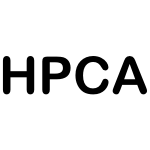 HPCA-2005-JacobsonBHBZEEGLST #performance
HPCA-2005-JacobsonBHBZEEGLST #performance- Stretching the Limits of Clock-Gating Efficiency in Server-Class Processors (HMJ, PB, ZH, AB, VVZ, RJE, LE, JG, DL, BS, JMT), pp. 238–242.
 CSL-2005-Murlak #on the
CSL-2005-Murlak #on the- On Deciding Topological Classes of Deterministic Tree Languages (FM), pp. 428–441.
 LICS-2005-DawarO #theorem
LICS-2005-DawarO #theorem- Modal Characterisation Theorems over Special Classes of Frames (AD, MO), pp. 21–30.
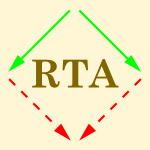 RTA-2005-TourE #unification
RTA-2005-TourE #unification- Unification in a Class of Permutative Theories (TBdlT, ME), pp. 105–119.
 VMCAI-2005-Bozzelli #model checking #process #term rewriting
VMCAI-2005-Bozzelli #model checking #process #term rewriting- Model Checking for Process Rewrite Systems and a Class of Action-Based Regular Properties (LB), pp. 282–297.
 SIGMOD-2004-PaparizosWLJ #evaluation #logic #performance #xquery
SIGMOD-2004-PaparizosWLJ #evaluation #logic #performance #xquery- Tree Logical Classes for Efficient Evaluation of XQuery (SP, YW, LVSL, HVJ), pp. 71–82.
 ITiCSE-2004-CasselFLPKIG #using
ITiCSE-2004-CasselFLPKIG #using- Using CITIDEL to develop and share class plans (LNC, EAF, JL, MAPQ, DK, JI, CLG), p. 270.
 FASE-2004-Egyed #adaptation #consistency #diagrams #evolution #refinement
FASE-2004-Egyed #adaptation #consistency #diagrams #evolution #refinement- Consistent Adaptation and Evolution of Class Diagrams during Refinement (AE), pp. 37–53.
 TACAS-2004-SuW #analysis #constraints
TACAS-2004-SuW #analysis #constraints- A Class of Polynomially Solvable Range Constraints for Interval Analysis without Widenings and Narrowings (ZS, DW), pp. 280–295.
 IWPC-2004-HammoudaGKS #diagrams #learning #modelling #uml
IWPC-2004-HammoudaGKS #diagrams #learning #modelling #uml- Tool-Supported Customization of UML Class Diagrams for Learning Complex System Models (IH, OG, KK, TS), pp. 24–33.
 IWPC-2004-XingS #comprehension #evolution #object-oriented
IWPC-2004-XingS #comprehension #evolution #object-oriented- Understanding Class Evolution in Object-Oriented Software (ZX, ES), pp. 34–45.
 SCAM-2004-BruntinkD #metric #object-oriented #predict #testing #using
SCAM-2004-BruntinkD #metric #object-oriented #predict #testing #using- Predicting Class Testability using Object-Oriented Metrics (MB, AvD), pp. 136–145.
 STOC-2004-BurgisserC #algebra #complexity #set
STOC-2004-BurgisserC #algebra #complexity #set- Counting complexity classes for numeric computations II: algebraic and semialgebraic sets (PB, FC), pp. 475–485.
 DLT-2004-GenestMK #algorithm #automaton #communication #effectiveness #theorem
DLT-2004-GenestMK #algorithm #automaton #communication #effectiveness #theorem- A Kleene Theorem for a Class of Communicating Automata with Effective Algorithms (BG, AM, DK), pp. 30–48.
 ICGT-2004-EhrenfeuchtHHR
ICGT-2004-EhrenfeuchtHHR- Embedding in Switching Classes with Skew Gains (AE, JH, TH, GR), pp. 257–270.
 ICEIS-v3-2004-BonacinBL #analysis #design #diagrams #ontology #semantics
ICEIS-v3-2004-BonacinBL #analysis #design #diagrams #ontology #semantics- From Ontology Charts to Class Diagrams: Semantic Analysis Aiding Systems Design (RB, MCCB, KL), pp. 389–395.
 ICEIS-v3-2004-Ohki #analysis #formal method
ICEIS-v3-2004-Ohki #analysis #formal method- Formalization of Class Structure Extraction through Lifetime Analysis (MO), pp. 635–642.
 ICEIS-v4-2004-MazhelisP #classification #detection
ICEIS-v4-2004-MazhelisP #classification #detection- Combining One-Class Classifiers for Mobile-User Substitution Detection (OM, SP), pp. 130–137.
 ICML-2004-AppiceCRF #multi #problem
ICML-2004-AppiceCRF #multi #problem- Redundant feature elimination for multi-class problems (AA, MC, SR, PAF).
 ICML-2004-CrammerC #optimisation
ICML-2004-CrammerC #optimisation- A needle in a haystack: local one-class optimization (KC, GC).
 ICML-2004-Forman #classification #feature model #multi
ICML-2004-Forman #classification #feature model #multi- A pitfall and solution in multi-class feature selection for text classification (GF).
 ICML-2004-FrankK #multi #problem
ICML-2004-FrankK #multi #problem- Ensembles of nested dichotomies for multi-class problems (EF, SK).
 ICML-2004-KoppelS #classification #problem #verification
ICML-2004-KoppelS #classification #problem #verification- Authorship verification as a one-class classification problem (MK, JS).
 ICML-2004-VuralD #multi
ICML-2004-VuralD #multi- A hierarchical method for multi-class support vector machines (VV, JGD).
 ICPR-v1-2004-LiBS #image #recognition #using
ICPR-v1-2004-LiBS #image #recognition #using- Object Class Recognition using Images of Abstract Regions (YL, JAB, LGS), pp. 40–43.
 ICPR-v2-2004-BeierholmB #music #speech #using
ICPR-v2-2004-BeierholmB #music #speech #using- Speech Music Discrimination Using Class-Specific Features (TB, PMB), pp. 379–382.
 ICPR-v2-2004-ShimanoN #optimisation #recognition
ICPR-v2-2004-ShimanoN #optimisation #recognition- Simultaneous Optimization of Class Configuration and Feature Space for Object Recognition (MS, KN), pp. 7–10.
 ICPR-v3-2004-TaxM #classification
ICPR-v3-2004-TaxM #classification- A Consistency-Based Model Selection for One-Class Classification (DMJT, KRM), pp. 363–366.
 ICPR-v4-2004-LiuWLT #classification #recognition
ICPR-v4-2004-LiuWLT #classification #recognition- Nearest Intra-Class Space Classifier for Face Recognition (WL, YW, SZL, TT), pp. 495–498.
 ICPR-v4-2004-PaclikVD #algorithm #feature model #multi
ICPR-v4-2004-PaclikVD #algorithm #feature model #multi- Multi-Class Extensions of the GLDB Feature Extraction Algorithm for Spectral Data (PP, SV, RPWD), pp. 629–632.
 ICPR-v4-2004-SamsonB #clustering #learning #parallel #robust #video
ICPR-v4-2004-SamsonB #clustering #learning #parallel #robust #video- Learning Classes for Video Interpretation with a Robust Parallel Clustering Method (VS, PB), pp. 569–572.
 KDD-2004-AbeZL #learning #multi
KDD-2004-AbeZL #learning #multi- An iterative method for multi-class cost-sensitive learning (NA, BZ, JL), pp. 3–11.
 KDD-2004-LiuYM #algorithm #classification #parametricity #performance
KDD-2004-LiuYM #algorithm #classification #parametricity #performance- The IOC algorithm: efficient many-class non-parametric classification for high-dimensional data (TL, KY, AWM), pp. 629–634.
 SEKE-2004-GomesPCPSFB #composition #diagrams #reuse #uml #using
SEKE-2004-GomesPCPSFB #composition #diagrams #reuse #uml #using- Reuse of UML Class Diagrams Using Case-Based Composition (PG, FCP, PC, PP, NS, JLF, CB), pp. 258–263.
 SEKE-2004-SubramaniamLFE #case study #development #generative #named
SEKE-2004-SubramaniamLFE #case study #development #generative #named- UCDA: Use Case Driven Development Assistant Tool for Class Model Generation (KS, DL, BHF, AE), pp. 324–329.
 SEKE-2004-XingS #co-evolution #detection
SEKE-2004-XingS #co-evolution #detection- Data-mining in Support of Detecting Class Co-evolution (ZX, ES), pp. 123–128.
 TOOLS-USA-2003-ArdourelH04 #eiffel #graph
TOOLS-USA-2003-ArdourelH04 #eiffel #graph- Class-based Visibility from an MDA Perspective: From Access Graphs to Eiffel Code (GA, MH), pp. 177–195.
 TOOLS-USA-2003-BadriB04 #empirical
TOOLS-USA-2003-BadriB04 #empirical- A Proposal of a New Class Cohesion Criterion: An Empirical Study (LB, MB), pp. 145–159.
 ECOOP-2004-HirzelDH #analysis #pointer
ECOOP-2004-HirzelDH #analysis #pointer- Pointer Analysis in the Presence of Dynamic Class Loading (MH, AD, MH), pp. 96–122.
 ECOOP-2004-SutterTD #constraints #java #library #using
ECOOP-2004-SutterTD #constraints #java #library #using- Customization of Java Library Classes Using Type Constraints and Profile Information (BDS, FT, JD), pp. 585–610.
 OOPSLA-2004-DincklageD #java
OOPSLA-2004-DincklageD #java- Converting Java classes to use generics (DvD, AD), pp. 1–14.
 OOPSLA-2004-FactorSS #approach #library #object-oriented #standard
OOPSLA-2004-FactorSS #approach #library #object-oriented #standard- Instrumentation of standard libraries in object-oriented languages: the twin class hierarchy approach (MF, AS, KS), pp. 288–300.
 OOPSLA-2004-GueheneucA #uml
OOPSLA-2004-GueheneucA #uml- Recovering binary class relationships: putting icing on the UML cake (YGG, HAA), pp. 301–314.
 OOPSLA-2004-StreckenbachS #refactoring
OOPSLA-2004-StreckenbachS #refactoring- Refactoring class hierarchies with KABA (MS, GS), pp. 315–330.
 SAC-2004-BettiniBL #calculus #higher-order #mixin
SAC-2004-BettiniBL #calculus #higher-order #mixin- A core calculus of higher-order mixins and classes (LB, VB, SL), pp. 1508–1509.
 SAC-2004-BuckerRW #parallel
SAC-2004-BuckerRW #parallel- A class of OpenMP applications involving nested parallelism (HMB, AR, AW), pp. 220–224.
 SAC-2004-FagorziZA #calculus #modelling #multi
SAC-2004-FagorziZA #calculus #modelling #multi- Modeling multiple class loaders by a calculus for dynamic linking (SF, EZ, DA), pp. 1281–1288.
 SAC-2004-SignoriniG #design #object-oriented #process #specification
SAC-2004-SignoriniG #design #object-oriented #process #specification- Object-oriented design for the specification of the blood clotting cascade: a class-structured view of bio-computing processes (JS, PG), pp. 207–208.
 SAC-2004-UngureanuMBK #clustering
SAC-2004-UngureanuMBK #clustering- Class-Dependent Assignment in cluster-based servers (VU, BM, PGB, MNK), pp. 1420–1425.
 SAC-PL-J-2004-FagorziZ #case study #encoding #multi
SAC-PL-J-2004-FagorziZ #case study #encoding #multi- A Case-Study in Encoding Configuration Languages: Multiple Class Loaders (SF, EZ), pp. 31–54.
 ICSE-2004-LeowKS #automation #generative #source code #specification #testing
ICSE-2004-LeowKS #automation #generative #source code #specification #testing- Automated Generation of Test Programs from Closed Specifications of Classes and Test Cases (WKL, SCK, YS), pp. 96–105.
 VMCAI-2004-Logozzo #automation #invariant
VMCAI-2004-Logozzo #automation #invariant- Automatic Inference of Class Invariants (FL), pp. 211–222.
 ASE-2003-ArevaloDN #comprehension
ASE-2003-ArevaloDN #comprehension- XRay Views: Understanding the Internals of Classes (GA, SD, ON), pp. 267–270.
 ASE-2003-GueheneucA
ASE-2003-GueheneucA- A Pragmatic Study of Binary Class Relationships (YGG, HAA), pp. 277–280.
 DATE-2003-Tarnick #embedded #self
DATE-2003-Tarnick #embedded #self- Self-Testing Embedded Checkers for Bose-Lin, Bose, and a Class of Borden Codes (ST), pp. 11162–11163.
 ICDAR-2003-BooseSB #interactive #scalability
ICDAR-2003-BooseSB #interactive #scalability- A Scalable Solution for Integrating Illustrated Parts Drawings into a Class IV Interactive Electronic Technical Manual (MLB, DBS, LSB), pp. 309–313.
 ICDAR-2003-LeeO #classification #multi #problem
ICDAR-2003-LeeO #classification #multi #problem- Binary Classification Trees for Multi-class Classification Problems (JSL, ISO), pp. 770–774.
 ICDAR-2003-MaD #classification #documentation #image #multi
ICDAR-2003-MaD #classification #documentation #image #multi- Gabor Filter Based Multi-class Classifier for Scanned Document Images (HM, DSD), pp. 968–972.
 ICDAR-2003-PerraudVML #modelling #n-gram #recognition
ICDAR-2003-PerraudVML #modelling #n-gram #recognition- N-Gram and N-Class Models for On line Handwriting Recognition (FP, CVG, EM, PML), p. 1053–?.
 ICDAR-2003-TakahashiN #learning #recognition
ICDAR-2003-TakahashiN #learning #recognition- A class-modular GLVQ ensemble with outlier learning for handwritten digit recognition (KT, DN), pp. 268–272.
 ICDAR-2003-UchidaS #recognition #using
ICDAR-2003-UchidaS #recognition #using- Handwritten character recognition using elastic matching based on a class-dependent deformation model (SU, HS), pp. 163–167.
 ITiCSE-2003-CasselIKGFLP #education #library #using
ITiCSE-2003-CasselIKGFLP #education #library #using- Using an education oriented digital library to organize and present classes in computing and information (LNC, JI, DK, CLG, EAF, JL, MAPQ), p. 260.
 FoSSaCS-2003-ArnoldS #ambiguity #calculus #game studies #μ-calculus
FoSSaCS-2003-ArnoldS #ambiguity #calculus #game studies #μ-calculus- Ambiguous Classes in the Games μ-Calculus Hierarchy (AA, LS), pp. 70–86.
 TACAS-2003-BerthomieuV #analysis #branch #petri net
TACAS-2003-BerthomieuV #analysis #branch #petri net- State Class Constructions for Branching Analysis of Time Petri Nets (BB, FV), pp. 442–457.
 SCAM-2003-WheeldonC
SCAM-2003-WheeldonC- Power Law Distributions in Class Relationships (RW, SC), pp. 45–54.
 WCRE-2003-DekelG #concept
WCRE-2003-DekelG #concept- Revealing Class Structure with Concept Lattices (UD, JYG), pp. 353–365.
 SAS-2003-BessonJ #analysis #composition #datalog
SAS-2003-BessonJ #analysis #composition #datalog- Modular Class Analysis with DATALOG (FB, TPJ), pp. 19–36.
 SAS-2003-Logozzo #analysis #composition #object-oriented
SAS-2003-Logozzo #analysis #composition #object-oriented- Class-Level Modular Analysis for Object Oriented Languages (FL), pp. 37–54.
 DLT-2003-FreundMOP #on the
DLT-2003-FreundMOP #on the- On Three Classes of Automata-Like P Systems (RF, CMV, AO, GP), pp. 292–303.
 ICALP-2003-XieDI #equation #infinity #polynomial #verification
ICALP-2003-XieDI #equation #infinity #polynomial #verification- A Solvable Class of Quadratic Diophantine Equations with Applications to Verification of Infinite-State Systems (GX, ZD, OHI), pp. 668–680.
 FME-2003-DuranCS #compilation #inheritance
FME-2003-DuranCS #compilation #inheritance- A Strategy for Compiling Classes, Inheritance, and Dynamic Binding (AD, AC, AS), pp. 301–320.
 SOFTVIS-2003-Eichelberger #design #diagrams #question
SOFTVIS-2003-Eichelberger #design #diagrams #question- Nice Class Diagrams Admit Good Design? (HE), pp. 159–167.
 SOFTVIS-2003-EiglspergerKS #approach #automation #diagrams #layout #uml
SOFTVIS-2003-EiglspergerKS #approach #automation #diagrams #layout #uml- A Topology-Shape-Metrics Approach for the Automatic Layout of UML Class Diagram (ME, MK, MS), pp. 189–198.
 SOFTVIS-2003-GutwengerJKKLM #approach #diagrams #uml #visualisation
SOFTVIS-2003-GutwengerJKKLM #approach #diagrams #uml #visualisation- A New Approach for Visualizing UML Class Diagrams (CG, MJ, KK, JK, SL, PM), pp. 179–188.
 VISSOFT-2003-EichelbergerG #diagrams #layout #state of the art #uml
VISSOFT-2003-EichelbergerG #diagrams #layout #state of the art #uml- UML Class Diagrams – State of the Art in Layout Techniques (HE, JWvG), pp. 30–34.
 VISSOFT-2003-EichelbergerW #diagrams #layout #uml
VISSOFT-2003-EichelbergerW #diagrams #layout #uml- Demonstration of Advanced Layout of UML Class Diagrams by SugiBib (HE, JW), pp. 58–59.
 CAiSE-2003-GeneroP #complexity #diagrams #metric #uml
CAiSE-2003-GeneroP #complexity #diagrams #metric #uml- No-redundant Metrics for UML Class Diagram Structural Complexity (MEM, MG, MP), pp. 127–142.
 ICEIS-v1-2003-EzeifeD #database #incremental
ICEIS-v1-2003-EzeifeD #database #incremental- Incremental Horizontal Fragmentation of Database Class Objects (CIE, PD), pp. 239–245.
 ICEIS-v3-2003-Ramos #constraints #diagrams #relational #uml
ICEIS-v3-2003-Ramos #constraints #diagrams #relational #uml- Deontic Constraints: From UML Class Diagram to Relational Model (PR0), pp. 424–432.
 ECIR-2003-CeciM #classification #documentation #html
ECIR-2003-CeciM #classification #documentation #html- Hierarchical Classification of HTML Documents with WebClassII (MC, DM), pp. 57–72.
 ICML-2003-LachicheF #classification #multi #probability #using
ICML-2003-LachicheF #classification #multi #probability #using- Improving Accuracy and Cost of Two-class and Multi-class Probabilistic Classifiers Using ROC Curves (NL, PAF), pp. 416–423.
 ICML-2003-Mesterharm #algorithm #multi #using
ICML-2003-Mesterharm #algorithm #multi #using- Using Linear-threshold Algorithms to Combine Multi-class Sub-experts (CM), pp. 544–551.
 ICML-2003-ZhuWC #dataset #scalability
ICML-2003-ZhuWC #dataset #scalability- Eliminating Class Noise in Large Datasets (XZ, XW, QC), pp. 920–927.
 KDD-2003-PerlichP #concept #relational
KDD-2003-PerlichP #concept #relational- Aggregation-based feature invention and relational concept classes (CP, FJP), pp. 167–176.
 KDD-2003-TeohM #interactive #named #visualisation
KDD-2003-TeohM #interactive #named #visualisation- PaintingClass: interactive construction, visualization and exploration of decision trees (STT, KLM), pp. 667–672.
 MLDM-2003-DehmeshkiKC #rule-based #set
MLDM-2003-DehmeshkiKC #rule-based #set- A Rule-Based Scheme for Filtering Examples from Majority Class in an Imbalanced Training Set (JD, MK, MVC), pp. 215–223.
 SEKE-2003-DongY #design pattern #diagrams #uml #visualisation
SEKE-2003-DongY #design pattern #diagrams #uml #visualisation- Extending UML to Visualize Design Patterns In Class Diagrams (JD, SY), pp. 124–131.
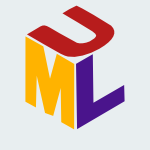 UML-2003-Balsters #database #modelling #ocl #uml
UML-2003-Balsters #database #modelling #ocl #uml- Modelling Database Views with Derived Classes in the UML/OCL-Framework (HB), pp. 295–309.
 UML-2003-Egyed #abstraction #composition #reasoning #relational
UML-2003-Egyed #abstraction #composition #reasoning #relational- Compositional and Relational Reasoning during Class Abstraction (AE), pp. 121–137.
 UML-2003-Isoda #uml
UML-2003-Isoda #uml- A Critique of UML’s Definition of the Use-Case Class (SI), pp. 280–294.
 ECOOP-2003-HenkelD #algebra #java #specification
ECOOP-2003-HenkelD #algebra #java #specification- Discovering Algebraic Specifications from Java Classes (JH, AD), pp. 431–456.
 OOPSLA-2003-AllenBC #approach
OOPSLA-2003-AllenBC #approach- A first-class approach to genericity (EEA, JB, RC), pp. 96–114.
 OOPSLA-2003-BlackSD #smalltalk
OOPSLA-2003-BlackSD #smalltalk- Applying traits to the smalltalk collection classes (APB, NS, SD), pp. 47–64.
 ICSE-2003-RountevMR #analysis #java #morphism #polymorphism #testing
ICSE-2003-RountevMR #analysis #java #morphism #polymorphism #testing- Fragment Class Analysis for Testing of Polymorphism in Java Software (AR, AM, BGR), pp. 210–220.
 CADE-2003-Belinfante #reasoning
CADE-2003-Belinfante #reasoning- Reasoning about Iteration in Gödel’s Class Theory (JGFB), pp. 228–242.
 CADE-2003-Ringeissen
CADE-2003-Ringeissen- Matching in a Class of Combined Non-disjoint Theories (CR), pp. 212–227.
 CSL-2003-ChenF
CSL-2003-ChenF- Machine Characterization of the Classes of the W-Hierarchy (YC, JF), pp. 114–127.
 CSL-2003-Reus #composition #logic #semantics
CSL-2003-Reus #composition #logic #semantics- Modular Semantics and Logics of Classes (BR), pp. 456–469.
 ASE-2002-GibbsMP #automation #c++ #invariant #validation
ASE-2002-GibbsMP #automation #c++ #invariant #validation- Automated Validation of Class Invariants in C++ Applications (THG, BAM, JFP), p. 205–?.
 DATE-2002-AghaghiriPF #encoding #multi #power management
DATE-2002-AghaghiriPF #encoding #multi #power management- EZ Encoding: A Class of Irredundant Low Power Codes for Data Address and Multiplexed Address Buses (YA, MP, FF), p. 1102.
 VLDB-2002-CarneyCCCLSSTZ #data transformation #monitoring
VLDB-2002-CarneyCCCLSSTZ #data transformation #monitoring- Monitoring Streams — A New Class of Data Management Applications (DC, UÇ, MC, CC, SL, GS, MS, NT, SBZ), pp. 215–226.
 CSEET-2002-BevanWM #guidelines #programming
CSEET-2002-BevanWM #guidelines #programming- Guidelines for the Use of Pair Programming in a Freshman Programming Class (JB, LLW, CEM), pp. 100–107.
 ITiCSE-2002-SchepM #case study #experience #programming #using
ITiCSE-2002-SchepM #case study #experience #programming #using- Experiences with using robots in an all-female programming class (MS, NM), p. 241.
 ICSM-2002-ChenZBZY #analysis #approach #dependence #novel
ICSM-2002-ChenZBZY #analysis #approach #dependence #novel- A Novel Approach to Measuring Class Cohesion Based on Dependence Analysis (ZC, YZ, BX, JZ, HY), pp. 377–384.
 ICSM-2002-Sneed #object-oriented #repository
ICSM-2002-Sneed #object-oriented #repository- Transforming Procedural Program Structures to Object-Oriented Class Structures for the Purpose of Populating a Common Software Repository (HMS), p. 286.
 ICSM-2002-ZhouBZY #named
ICSM-2002-ZhouBZY #named- ICBMC: An Improved Cohesion Measure for Classes (YZ, BX, JZ, HY), pp. 44–53.
 WCRE-2002-BarowskiC #dependence #java
WCRE-2002-BarowskiC #dependence #java- Extraction and Use of Class Dependency Information for Java (LAB, JHCI), p. 309–?.
 PLDI-2002-CociorvaBLSRNBH #optimisation #trade-off
PLDI-2002-CociorvaBLSRNBH #optimisation #trade-off- Space-Time Trade-Off Optimization for a Class of Electronic Structure Calculations (DC, GB, CCL, PS, JR, MN, DEB, RJH), pp. 177–186.
 FME-2002-CavalcantiN #refinement #simulation
FME-2002-CavalcantiN #refinement #simulation- Forward Simulation for Data Refinement of Classes (AC, DAN), pp. 471–490.
 IFM-2002-KuskeGKK #diagrams #graph transformation #semantics #uml
IFM-2002-KuskeGKK #diagrams #graph transformation #semantics #uml- An Integrated Semantics for UML Class, Object and State Diagrams Based on Graph Transformation (SK, MG, RK, HJK), pp. 11–28.
 ICFP-2002-NeubauerT #higher-order #morphism #polymorphism
ICFP-2002-NeubauerT #higher-order #morphism #polymorphism- Type classes with more higher-order polymorphism (MN, PT), pp. 179–190.
 ICGT-2002-HageHW #graph
ICGT-2002-HageHW #graph- Euler Graphs, Triangle-Free Graphs and Bipartite Graphs in Switching Classes (JH, TH, EW), pp. 148–160.
 VISSOFT-2002-Eichelberger #diagrams
VISSOFT-2002-Eichelberger #diagrams- Aesthetics of Class Diagrams (HE), pp. 23–31.
 ICEIS-2002-DahchourP #semantics
ICEIS-2002-DahchourP #semantics- The Semantics of Reifying n-ary Relationships as Classes (MD, AP), pp. 580–586.
 ICEIS-2002-PelechanoACP #automation #code generation #concept #object-oriented
ICEIS-2002-PelechanoACP #automation #code generation #concept #object-oriented- Automating the Code Generation of Role Classes in OO Conceptual Schemas (VP, MA, EC, OP), pp. 658–666.
 ICEIS-2002-PequenoV #self #using
ICEIS-2002-PequenoV #self #using- Using Full Match Classes for Self-Maintenance of Mediated Views (VMP, VMPV), pp. 148–154.
 CIKM-2002-MotoyoshiMW #mining
CIKM-2002-MotoyoshiMW #mining- Mining temporal classes from time series data (MM, TM, KW), pp. 493–498.
 ICML-2002-Ghani #categorisation #multi
ICML-2002-Ghani #categorisation #multi- Combining Labeled and Unlabeled Data for MultiClass Text Categorization (RG), pp. 187–194.
 ICPR-v1-2002-BingPL
ICPR-v1-2002-BingPL- Recognizing Faces with Expressions: Within-class Space and Between-class Space (YB, CP, JL), pp. 139–142.
 ICPR-v2-2002-BhagavathyNM #image #modelling #using
ICPR-v2-2002-BhagavathyNM #image #modelling #using- Modeling Object Classes in Aerial Images Using Texture Motifs (SB, SN, BSM), pp. 981–984.
 ICPR-v2-2002-ErcilB #classification #polynomial #using
ICPR-v2-2002-ErcilB #classification #polynomial #using- One Class Classification Using Implicit Polynomial Surface Fitting (AE, BB), pp. 152–155.
 ICPR-v2-2002-FrancH #multi
ICPR-v2-2002-FrancH #multi- Multi-Class Support Vector Machine (VF, VH), pp. 236–239.
 ICPR-v2-2002-TaxD #classification #multi #using
ICPR-v2-2002-TaxD #classification #multi #using- Using Two-Class Classifiers for Multiclass Classification (DMJT, RPWD), pp. 124–127.
 ICPR-v2-2002-Vaswani #classification #linear #matrix
ICPR-v2-2002-Vaswani #classification #linear #matrix- A Linear Classifier for Gaussian Class Conditional Distributions with Unequal Covariance Matrices (NV), pp. 60–63.
 ICPR-v4-2002-CaputoN #classification #kernel
ICPR-v4-2002-CaputoN #classification #kernel- To Each According to its Need: Kernel Class Specific Classifiers (BC, HN), pp. 94–97.
 ICPR-v4-2002-KoB02a #feedback #image #multi #network #probability #retrieval
ICPR-v4-2002-KoB02a #feedback #image #multi #network #probability #retrieval- Probabilistic Neural Networks Supporting Multi-Class Relevance Feedback in Region-Based Image Retrieval (BK, HB), pp. 138–141.
 KDD-2002-GodboleSC #multi #scalability #using
KDD-2002-GodboleSC #multi #scalability #using- Scaling multi-class support vector machines using inter-class confusion (SG, SS, SC), pp. 513–518.
 KDD-2002-JoshiAK #predict #question
KDD-2002-JoshiAK #predict #question- Predicting rare classes: can boosting make any weak learner strong? (MVJ, RCA, VK), pp. 297–306.
 ECOOP-2002-ArnoldR #effectiveness
ECOOP-2002-ArnoldR #effectiveness- Thin Guards: A Simple and Effective Technique for Reducing the Penalty of Dynamic Class Loading (MA, BGR), pp. 498–524.
 ECOOP-2002-IchisugiT #difference #independence
ECOOP-2002-IchisugiT #difference #independence- Difference-Based Modules: A Class-Independent Module Mechanism (YI, AT), pp. 62–88.
 ECOOP-2002-SneltingT #composition #semantics
ECOOP-2002-SneltingT #composition #semantics- Semantics-Based Composition of Class Hierarchies (GS, FT), pp. 562–584.
 PPDP-2002-AnconaLZ #compilation #java
PPDP-2002-AnconaLZ #compilation #java- True separate compilation of Java classes (DA, GL, EZ), pp. 189–200.
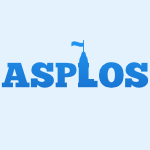 ASPLOS-2002-ZengELV #ecosystem #energy #named #operating system
ASPLOS-2002-ZengELV #ecosystem #energy #named #operating system- ECOSystem: managing energy as a first class operating system resource (HZ, CSE, ARL, AV), pp. 123–132.
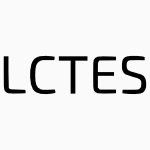 LCTES-SCOPES-2002-NewsomeW #compilation #java
LCTES-SCOPES-2002-NewsomeW #compilation #java- Proxy compilation of dynamically loaded Java classes with MoJo (MN, DW), pp. 204–212.
 CADE-2002-GeorgievaHS #decidability
CADE-2002-GeorgievaHS #decidability- A New Clausal Class Decidable by Hyperresolution (LG, UH, RAS), pp. 260–274.
 LICS-2002-CalvaneseGL #information management #logic #representation
LICS-2002-CalvaneseGL #information management #logic #representation- Description Logics: Foundations for Class-based Knowledge Representation (DC, GDG, ML), pp. 359–370.
 LICS-2002-Cook #complexity #proving
LICS-2002-Cook #complexity #proving- Complexity Classes, Propositional Proof Systems, and Formal Theories (SAC), p. 311.
 LICS-2002-HesseI #complexity #problem
LICS-2002-HesseI #complexity #problem- Complete Problems for Dynamic Complexity Classes (WH, NI), p. 313–?.
 SAT-2002-Bruni #satisfiability
SAT-2002-Bruni #satisfiability- Exact selection of minimal unsatisfiable subformulae for special classes of propositional formulae (RB), p. 22.
 ASE-2001-GrosuLSSY #automation #concurrent #re-engineering #using
ASE-2001-GrosuLSSY #automation #concurrent #re-engineering #using- Automated Software Engineering Using Concurrent Class Machines (RG, YAL, SAS, SDS, JY), p. 297–?.
 ASE-2001-LedangS #behaviour #diagrams #modelling #uml
ASE-2001-LedangS #behaviour #diagrams #modelling #uml- Modeling Class Operations in B: Application to UML Behavioral Diagrams (HL, JS), pp. 289–296.
 ICDAR-2001-OhLS #recognition
ICDAR-2001-OhLS #recognition- A Class-Modularity for Character Recognition (ISO, JSL, CYS), pp. 64–68.
 CSEET-2001-CarringtonMJ #in the large
CSEET-2001-CarringtonMJ #in the large- PSP SM in the Large Class (DAC, BM, DBJ), pp. 81–88.
 ITiCSE-2001-Cassel #problem #student #summary
ITiCSE-2001-Cassel #problem #student #summary- Reading summaries: relating class to student’s problems with the current reading assignment (LNC), p. 188.
 ITiCSE-2001-Guzdial #collaboration #multi
ITiCSE-2001-Guzdial #collaboration #multi- Use of collaborative multimedia in computer science classes (MG), pp. 17–20.
 ITiCSE-2001-Rutherfoord #re-engineering #using
ITiCSE-2001-Rutherfoord #re-engineering #using- Using personality inventories to help form teams for software engineering class projects (RHR), pp. 73–76.
 FoSSaCS-2001-JensenS #abstract interpretation #analysis #object-oriented #source code
FoSSaCS-2001-JensenS #abstract interpretation #analysis #object-oriented #source code- Class Analysis of Object-Oriented Programs through Abstract Interpretation (TPJ, FS), pp. 261–275.
 ICSM-2001-BeydedaGS #representation #testing #visual notation
ICSM-2001-BeydedaGS #representation #testing #visual notation- A Graphical Class Representation for Integrated Black- and White-Box Testing (SB, VG, MS), pp. 706–715.
 ICSM-2001-TonellaP #c++ #diagrams #reverse engineering #uml
ICSM-2001-TonellaP #c++ #diagrams #reverse engineering #uml- Reverse Engineering of the UML Class Diagram from C++ Code in Presence of Weakly Typed Containers (PT, AP), pp. 376–385.
 PASTE-2001-Webber #invariant #question #what
PASTE-2001-Webber #invariant #question #what- What is a class invariant? (ABW), pp. 86–89.
 SCAM-2001-KnieselCA #framework #java #named
SCAM-2001-KnieselCA #framework #java #named- Jmangler — A Framework for Load-Time Transformation of Java Class Files (GK, PC, MA), pp. 100–110.
 WCRE-2001-AlhajjP #database #migration #object-oriented #re-engineering #relational
WCRE-2001-AlhajjP #database #migration #object-oriented #re-engineering #relational- Reengineering Relational Databases to Object-Oriented: Constructing the Class Hierarchy and Migrating the Data (RA, FP), pp. 335–344.
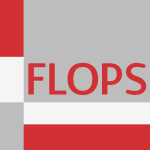 FLOPS-2001-SatoSK #calculus
FLOPS-2001-SatoSK #calculus- A Simply Typed Context Calculus with First-Class Environments (MS, TS, YK), pp. 359–374.
 ICEIS-v2-2001-AraujoM #diagrams #uml
ICEIS-v2-2001-AraujoM #diagrams #uml- Handling Mutual Exclusion in UML Class Diagrams (JA, AMDM), pp. 659–666.
 ICEIS-v2-2001-KuzniarzP #uml
ICEIS-v2-2001-KuzniarzP #uml- Defining Pattern Class Stereotypes in UML (LK, MP), pp. 578–582.
 ICML-2001-LatinneSD #classification #multi #problem
ICML-2001-LatinneSD #classification #multi #problem- Adjusting the Outputs of a Classifier to New a Priori Probabilities May Significantly Improve Classification Accuracy: Evidence from a multi-class problem in remote sensing (PL, MS, CD), pp. 298–305.
 KDD-2001-LinP #induction #natural language #semantics
KDD-2001-LinP #induction #natural language #semantics- Induction of semantic classes from natural language text (DL, PP), pp. 317–322.
 KDD-2001-Morimoto #database #mining #set
KDD-2001-Morimoto #database #mining #set- Mining frequent neighboring class sets in spatial databases (YM), pp. 353–358.
 OOPSLA-2001-LanzaD #categorisation #visualisation
OOPSLA-2001-LanzaD #categorisation #visualisation- A Categorization of Classes based on the Visualization of their Internal Structure: The Class Blueprint (ML, SD), pp. 300–311.
 TOOLS-USA-2001-GueheneucA #constraints #design pattern #detection #fault #using
TOOLS-USA-2001-GueheneucA #constraints #design pattern #detection #fault #using- Using Design Patterns and Constraints to Automate the Detection and Correction of Inter-Class Design Defects (YGG, HAA), pp. 296–306.
 GCSE-2001-GregorSM #injection
GCSE-2001-GregorSM #injection- Base Class Injection (DG, SS, DRM), pp. 106–117.
 CC-2001-Madsen #implementation
CC-2001-Madsen #implementation- Virtual Classes and Their Implementation (OLM), pp. 1–2.
 IJCAR-2001-GieslK #decidability #induction #theorem
IJCAR-2001-GieslK #decidability #induction #theorem- Decidable Classes of Inductive Theorems (JG, DK), pp. 469–484.
 TLCA-2001-Hofmann #behaviour #bound #complexity #memory management #type system
TLCA-2001-Hofmann #behaviour #bound #complexity #memory management #type system- From Bounded Arithmetic to Memory Management: Use of Type Theory to Capture Complexity Classes and Space Behaviour (MH0), pp. 2–3.
 ASE-2000-Egyed #abstraction #diagrams #semantics
ASE-2000-Egyed #abstraction #diagrams #semantics- Semantic Abstraction Rules for Class Diagrams (AE), pp. 301–304.
 ASE-2000-SahraouiLBE #assessment #automation #library #reuse #towards
ASE-2000-SahraouiLBE #assessment #automation #library #reuse #towards- Towards the Automatic Assessment of Evolvability for Reusable Class Libraries (HAS, HL, MB, FE), pp. 289–292.
 ITiCSE-2000-CarrS #education #library #parallel #programming #thread
ITiCSE-2000-CarrS #education #library #parallel #programming #thread- A portable class library for teaching multithreaded programming (SC, CKS), pp. 124–127.
 ESOP-2000-Danvy #continuation #formal method #implementation
ESOP-2000-Danvy #continuation #formal method #implementation- Formalizing Implementation Strategies for First-Class Continuations (OD), pp. 88–103.
 ESOP-2000-FisherRR #calculus #compilation
ESOP-2000-FisherRR #calculus #compilation- A Calculus for Compiling and Linking Classes (KF, JHR, JGR), pp. 135–149.
 ESOP-2000-Jones #dependence #functional
ESOP-2000-Jones #dependence #functional- Type Classes with Functional Dependencies (MPJ), pp. 230–244.
 ESOP-2000-Russo #ml #standard
ESOP-2000-Russo #ml #standard- First-Class Structures for Standard ML (CVR), pp. 336–350.
 ESOP-2000-WellsV #equation #reasoning
ESOP-2000-WellsV #equation #reasoning- Equational Reasoning for Linking with First-Class Primitive Modules (JBW, RV), pp. 412–428.
 FASE-2000-HuizingK #invariant #object-oriented #source code #using #verification
FASE-2000-HuizingK #invariant #object-oriented #source code #using #verification- Verification of Object Oriented Programs Using Class Invariants (KH, RK), pp. 208–221.
 FASE-2000-ReggioACH #approach #formal method #lightweight #state machine #uml
FASE-2000-ReggioACH #approach #formal method #lightweight #state machine #uml- Analysing UML Active Classes and Associated State Machines — A Lightweight Formal Approach (GR, EA, CC, HH), pp. 127–146.
 ICSM-2000-LuccaFC #data-driven #diagrams #legacy
ICSM-2000-LuccaFC #data-driven #diagrams #legacy- Recovering Class Diagrams from Data-Intensive Legacy Systems (GADL, ARF, UdC), pp. 52–63.
 PLDI-2000-SreedharBC #framework #interprocedural #optimisation
PLDI-2000-SreedharBC #framework #interprocedural #optimisation- A framework for interprocedural optimization in the presence of dynamic class loading (VCS, MGB, JDC), pp. 196–207.
 STOC-2000-GuptaT #algorithm #approximate #classification #constant #problem
STOC-2000-GuptaT #algorithm #approximate #classification #constant #problem- A constant factor approximation algorithm for a class of classification problems (AG, ÉT), pp. 652–658.
 ICALP-2000-Urbanski #automaton #on the
ICALP-2000-Urbanski #automaton #on the- On Deciding if Deterministic Rabin Language Is in Büchi Class (TFU), pp. 663–674.
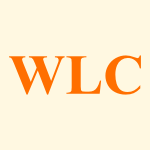 WLC-2000-SchottS #algorithm #parallel #word
WLC-2000-SchottS #algorithm #parallel #word- Two Optimal Parallel Algorithms on the Commutation Class of a Word (RS, JCS), pp. 403–419.
 WLC-2000-Van #on the
WLC-2000-Van #on the- On A Class of Hypercodes (DLV), pp. 171–182.
 IFM-2000-MassonMJ #composition #verification
IFM-2000-MassonMJ #composition #verification- Modular Verification for a Class of PLTL Properties (PAM, HM, JJ), pp. 398–419.
 CHI-2000-FreiSMI #design #named
CHI-2000-FreiSMI #design #named- curlybot: designing a new class of computational toys (PF, VS, BM, HI), pp. 129–136.
 ICEIS-2000-OConnorW #self
ICEIS-2000-OConnorW #self- An Information Theoretic Self-Organising Map with Disaggregation of Output Classes (MO, WJW), pp. 108–115.
 ICML-2000-BoschZ #in memory #learning #multi
ICML-2000-BoschZ #in memory #learning #multi- Unpacking Multi-valued Symbolic Features and Classes in Memory-Based Language Learning (AvdB, JZ), pp. 1055–1062.
 ICML-2000-Hall #feature model #machine learning
ICML-2000-Hall #feature model #machine learning- Correlation-based Feature Selection for Discrete and Numeric Class Machine Learning (MAH), pp. 359–366.
 ICPR-v1-2000-NielsenP #adaptation #problem #representation #segmentation #using
ICPR-v1-2000-NielsenP #adaptation #problem #representation #segmentation #using- A Solution to the Problem of Segmentation near Edges Using Adaptable Class-Specific Representation (CFN, PJP), pp. 1436–1440.
 ICPR-v2-2000-BaggenstossN #classification #probability #using
ICPR-v2-2000-BaggenstossN #classification #probability #using- A Theoretically Optimal Probabilistic Classifier Using Class-Specific Features (PMB, HN), pp. 2763–2768.
 ICPR-v2-2000-DuinLH #feature model #linear #multi
ICPR-v2-2000-DuinLH #feature model #linear #multi- Multi-Class Linear Feature Extraction by Nonlinear PCA (RPWD, ML, RHU), pp. 2398–2401.
 ICPR-v3-2000-AlbregtsenND #adaptation #distance #matrix
ICPR-v3-2000-AlbregtsenND #adaptation #distance #matrix- Adaptive Gray Level Run Length Features from Class Distance Matrices (FA, BN, HED), pp. 3746–3749.
 KDD-2000-KingKCD #data mining #functional #mining #predict #sequence #using
KDD-2000-KingKCD #data mining #functional #mining #predict #sequence #using- Genome scale prediction of protein functional class from sequence using data mining (RDK, AK, AC, LD), pp. 384–389.
 KDD-2000-SchefferW #algorithm
KDD-2000-SchefferW #algorithm- A sequential sampling algorithm for a general class of utility criteria (TS, SW), pp. 330–334.
 SIGIR-2000-OhML #categorisation #hypermedia #incremental #using
SIGIR-2000-OhML #categorisation #hypermedia #incremental #using- A practical hypertext categorization method using links and incrementally available class information (HJO, SHM, MHL), pp. 264–271.
 UML-2000-Padawitz #constraints #diagrams #how #proving #state machine #theorem proving #uml
UML-2000-Padawitz #constraints #diagrams #how #proving #state machine #theorem proving #uml- Swinging UML: How to Make Class Diagrams and State Machines Amenable to Constraint Solving and Proving (PP), pp. 162–177.
 ECOOP-2000-IgarashiP #on the
ECOOP-2000-IgarashiP #on the- On Inner Classes (AI, BCP), pp. 129–153.
 ECOOP-2000-MalabarbaPGBB #java #runtime #type safety
ECOOP-2000-MalabarbaPGBB #java #runtime #type safety- Runtime Support for Type-Safe Dynamic Java Classes (SM, RP, JG, ETB, JFB), pp. 337–361.
 OOPSLA-2000-CliftonLCM #composition #java #multi #named #symmetry
OOPSLA-2000-CliftonLCM #composition #java #multi #named #symmetry- MultiJava: modular open classes and symmetric multiple dispatch for Java (CC, GTL, CC, TDM), pp. 130–145.
 OOPSLA-2000-Glew #encoding #performance
OOPSLA-2000-Glew #encoding #performance- An efficient class and object encoding (NG), pp. 311–324.
 OOPSLA-2000-QianGC #java #specification
OOPSLA-2000-QianGC #java #specification- A formal specification of JavaTM class loading (ZQ, AG, AC), pp. 325–336.
 TOOLS-PACIFIC-2000-BarberG #architecture #identification #object-oriented #tool support
TOOLS-PACIFIC-2000-BarberG #architecture #identification #object-oriented #tool support- Tool Support for Systematic Class Identification in Object-Oriented Software Architectures (KSB, TJG), pp. 82–93.
 TOOLS-USA-2000-Kotula #c++ #reliability
TOOLS-USA-2000-Kotula #c++ #reliability- Constructing Reliable C++ Classes [Abstract] (JK), pp. 501–504.
 TOOLS-USA-2000-ViegaRB #automation
TOOLS-USA-2000-ViegaRB #automation- Automating Delegation in Class-Based Languages (JV, PR, RB), p. 171–?.
 PADL-2000-GuptaA #constraints #interface #named #source code #spreadsheet #visual notation
PADL-2000-GuptaA #constraints #interface #named #source code #spreadsheet #visual notation- Knowledgesheet: A Graphical Spreadsheet Interface for Interactively Developing a Class of Constraint Programs (GG, SFA), pp. 308–323.
 PADL-2000-Tullsen
PADL-2000-Tullsen- First Class Patterns (MT), pp. 1–15.
 POPL-2000-Bawden #metaprogramming
POPL-2000-Bawden #metaprogramming- First-Class Macros have Types (AB), pp. 133–141.
 ICRE-2000-Glinz #approach #consistency #lightweight #modelling
ICRE-2000-Glinz #approach #consistency #lightweight #modelling- A Lightweight Approach to Consistency of Scenarios and Class Models (MG), p. 49–?.
 SAC-2000-AlhajjP
SAC-2000-AlhajjP- Maximizing Reuseability: Seeking Appropriate Positions for Derived Classes Within the Class Hierarchy (RA, FP), pp. 351–355.
 SAC-2000-ChongS
SAC-2000-ChongS- Back to the Basics: A first Class Chalkboard and More (NSTC, MS), pp. 131–136.
 CADE-2000-Belinfante #algorithm
CADE-2000-Belinfante #algorithm- Gödel’s Algorithm for Class Formation (JGFB), pp. 132–147.
 CL-2000-Janhunen #logic programming #source code #strict
CL-2000-Janhunen #logic programming #source code #strict- Comparing the Expressive Powers of Some Syntactically Restricted Classes of Logic Programs (TJ), pp. 852–866.
 CL-2000-Muller #constraints
CL-2000-Muller #constraints- Promoting Constraints to First-Class Status (TM), pp. 429–447.
 ISSTA-2000-BuyOP #automation #testing
ISSTA-2000-BuyOP #automation #testing- Automated Testing of Classes (UAB, AO, MP), pp. 39–48.
 LICS-2000-LindellW #decidability #finite #first-order
LICS-2000-LindellW #decidability #finite #first-order- The Role of Decidability in First Order Separations over Classes of Finite Structures (SL, SW), pp. 45–50.
 DAC-1999-EcklMZL #approach #multi
DAC-1999-EcklMZL #approach #multi- A Practical Approach to Multiple-Class Retiming (KE, JCM, PZ, CL), pp. 237–242.
 DATE-1999-EcklL #multi
DATE-1999-EcklL #multi- Retiming Sequential Circuits with Multiple Register Classes (KE, CL), p. 650–?.
 ICDAR-1999-CesariniFGS #approach #comprehension #documentation #multi
ICDAR-1999-CesariniFGS #approach #comprehension #documentation #multi- A Two Level Knowledge Approach for Understanding Documents of a Multi-Class Domain (FC, EF, MG, GS), pp. 135–138.
 ICDAR-1999-LebourgeoisBE #learning #using
ICDAR-1999-LebourgeoisBE #learning #using- Structure Relation between Classes for Supervised Learning using Pretopology (FL, MB, HE), pp. 33–36.
 ICDAR-1999-PrevostM #online #recognition
ICDAR-1999-PrevostM #online #recognition- Non-supervised Determination of Allograph Sub-classes for On-line Omni-scriptor Handwriting Recognition (LP, MM), pp. 438–441.
 VLDB-1999-WangZL #classification #proximity #using
VLDB-1999-WangZL #classification #proximity #using- Building Hierarchical Classifiers Using Class Proximity (KW, SZ, SCL), pp. 363–374.
 ITiCSE-1999-Siegel #infinity #why
ITiCSE-1999-Siegel #infinity #why- Why do fools fall into infinite loops: singing to your computer science class (EVS), pp. 167–170.
 IWPC-1999-Li #evolution #on the
IWPC-1999-Li #evolution #on the- On Managing Classes for Evolving Software (LL), pp. 144–150.
 PASTE-1999-SouterPH #analysis
PASTE-1999-SouterPH #analysis- Inter-Class Def-Use Analysis with Partial Class Representations (ALS, LLP, DH), pp. 47–56.
 PLDI-1999-FisherR #design
PLDI-1999-FisherR #design- The Design of a Class Mechanism for Moby (KF, JHR), pp. 37–49.
 PLDI-1999-Pugh #java
PLDI-1999-Pugh #java- Compressing Java Class Files (WP), pp. 247–258.
 SAS-1999-KollerM #abstract interpretation
SAS-1999-KollerM #abstract interpretation- A New Class of Functions for Abstract Interpretation (JK, MM), pp. 248–263.
 DLT-1999-KvetonK
DLT-1999-KvetonK- Functions preserving classes of languages (PK, VK), pp. 81–102.
 WIA-1999-AmilhastreJV #finite #heuristic
WIA-1999-AmilhastreJV #finite #heuristic- FA Minimisation Heuristics for a Class of Finite Languages (JA, PJ, MCV), pp. 1–12.
 ICFP-1999-LeagueST #java #representation
ICFP-1999-LeagueST #java #representation- Representing Java Classes in a Typed Intermediate Language (CL, ZS, VT), pp. 183–196.
 HCI-CCAD-1999-YenWNL #case study #design #education #information management #learning
HCI-CCAD-1999-YenWNL #case study #design #education #information management #learning- Design of a computer-mediated environment to capture and evaluate knowledge transfer and learning: a case study in a larger higher education class (SY, BW, JN, LJL), pp. 735–739.
 ICEIS-1999-Athans #distributed #problem
ICEIS-1999-Athans #distributed #problem- A Class of Distributed Decision Problems (MA), p. III.
 ICML-1999-MladenicG #feature model #naive bayes
ICML-1999-MladenicG #feature model #naive bayes- Feature Selection for Unbalanced Class Distribution and Naive Bayes (DM, MG), pp. 258–267.
 KDD-1999-WangWLSSZ #algorithm #clustering #data mining #mining
KDD-1999-WangWLSSZ #algorithm #clustering #data mining #mining- Evaluating a Class of Distance-Mapping Algorithms for Data Mining and Clustering (JTLW, XW, KIL, DS, BAS, KZ), pp. 307–311.
 UML-1999-DSouzaSB #uml
UML-1999-DSouzaSB #uml- First-Class Extensibility for UML-Profiles, Stereotypes, Patterns (DD, AS, AB), pp. 265–277.
 UML-1999-KimC #diagrams #formal method #uml #using
UML-1999-KimC #diagrams #formal method #uml #using- Formalizing the UML Class Diagram Using Object-Z (SKK, DAC), pp. 83–98.
 UML-1999-RaczK #diagrams #uml
UML-1999-RaczK #diagrams #uml- Tool-Supported Compressing of UML Class Diagrams (FDR, KK), pp. 172–187.
 ECOOP-1999-BonoPS #calculus #mixin
ECOOP-1999-BonoPS #calculus #mixin- A Core Calculus of Classes and Mixins (VB, AP, VS), pp. 43–66.
 ECOOP-1999-Ernst
ECOOP-1999-Ernst- Propagating Class and Method Combination (EE), pp. 67–91.
 ECOOP-1999-Serrano
ECOOP-1999-Serrano- Wide Classes (MS), pp. 391–415.
 ECOOP-1999-ThorupT
ECOOP-1999-ThorupT- Unifying Genericity — Combining the Benefits of Virtual Types and Parameterized Classes (KKT, MT), pp. 186–204.
 OOPSLA-1999-KrintzCH #java #using
OOPSLA-1999-KrintzCH #java #using- Reducing Transfer Delay Using Java Class File Splitting and Prefetching (CK, BC, UH), pp. 276–291.
 OOPSLA-1999-Madsen #analysis #semantics
OOPSLA-1999-Madsen #analysis #semantics- Semantic Analysis of Virtual Classes and Tested Classes (OLM), pp. 114–131.
 TOOLS-ASIA-1999-BuehrerL #algebra #ontology #reasoning
TOOLS-ASIA-1999-BuehrerL #algebra #ontology #reasoning- Class Algebra for Ontology Reasoning (DJB, CHL), pp. 2–13.
 TOOLS-ASIA-1999-CrespoRM #automation
TOOLS-ASIA-1999-CrespoRM #automation- Obtaining Generic Classes Automatically through a Parameterization Operator: A Focus on Constrained Genericity (YC, JJR, JMMC), pp. 166–176.
 TOOLS-ASIA-1999-JiangLX #generative
TOOLS-ASIA-1999-JiangLX #generative- Agent Class Methodology: A New Kind of Autonomous Object Generation Methodology (HJ, DL, XX), pp. 245–252.
 TOOLS-EUROPE-1999-Poo #case study #identification #specification
TOOLS-EUROPE-1999-Poo #case study #identification #specification- Events in Use Cases as a Basis for Identifying and Specifying Classes and Business Rules (DCCP), pp. 204–213.
 TOOLS-PACIFIC-1999-MurrayCMS #named #testing
TOOLS-PACIFIC-1999-MurrayCMS #named #testing- TinMan — A Test Derivation and Management Tool for Specification-Based Class Testing (LM, DAC, IM, PAS), pp. 222–233.
 TOOLS-PACIFIC-1999-SchmolitzkyEKM #how #question #type safety
TOOLS-PACIFIC-1999-SchmolitzkyEKM #how #question #type safety- How Can Covariance in Pragmatical Class Methods be Made Statically Type-Safe? (AS, ME, JLK, GM), pp. 200–209.
 TOOLS-PACIFIC-1999-ZendraC #eiffel #library
TOOLS-PACIFIC-1999-ZendraC #eiffel #library- Adding External Iterators to an Existing Eiffel Class Library (OZ, DC), pp. 188–199.
 SAC-1999-Krishnamurthi #education #email #programming
SAC-1999-Krishnamurthi #education #email #programming- Integrating E-Mail in a Programming Class: Implications for Teaching Programming (MK), pp. 126–131.
 ICSE-1999-MichailN #library
ICSE-1999-MichailN #library- Assessing Software Libraries by Browsing Similar Classes, Functions and Relationships (AM, DN), pp. 463–472.
 CADE-1999-HustadtS #revisited
CADE-1999-HustadtS #revisited- Maslov’s Class K Revisited (UH, RAS), pp. 172–186.
 CADE-1999-JanicicBG #flexibility #framework #integration #proving #theorem proving
CADE-1999-JanicicBG #flexibility #framework #integration #proving #theorem proving- A Framework for the Flexible Integration of a Class of Decision Procedures into Theorem Provers (PJ, AB, IG), pp. 127–141.
 ICLP-1999-GavanelliLMM
ICLP-1999-GavanelliLMM- Domains as First Class Objects in CLP(FD) (MG, EL, PM, MM), p. 608.
 LICS-1999-Johannsen #bound #problem
LICS-1999-Johannsen #bound #problem- Weak Bounded Arithmetic, the Diffie-Hellman Problem and Constable’s Class K (JJ), pp. 268–274.
 LICS-1999-Simpson #axiom #category theory
LICS-1999-Simpson #axiom #category theory- Elementary Axioms for Categories of Classes (AKS), pp. 77–85.
 DAC-1998-JiangJH #composition #encoding #synthesis
DAC-1998-JiangJH #composition #encoding #synthesis- Compatible Class Encoding in Hyper-Function Decomposition for FPGA Synthesis (JHRJ, JYJ, JDH), pp. 712–717.
 DATE-1998-GhoshKBH #benchmark #equivalence #invariant #metric #synthesis
DATE-1998-GhoshKBH #benchmark #equivalence #invariant #metric #synthesis- Synthesis of Wiring Signature-Invariant Equivalence Class Circuit Mutants and Applications to Benchmarking (DG, NK, FB, JEHI), pp. 656–663.
 ITiCSE-1998-HaganS #education #programming
ITiCSE-1998-HaganS #education #programming- The value of discussion classes for teaching introductory programming (DH, JS), pp. 108–111.
 ITiCSE-1998-Naps #algorithm #java #source code #student #visualisation
ITiCSE-1998-Naps #algorithm #java #source code #student #visualisation- A Java visualiser class: incorporating algorithm visualisations into students’ programs (TLN), pp. 181–184.
 ITiCSE-1998-PrestonS #distance #scalability
ITiCSE-1998-PrestonS #distance #scalability- A system for improving distance and large-scale classes (JAP, RLS), pp. 193–198.
 ESOP-1998-Remy #type system
ESOP-1998-Remy #type system- From Classes to Objects via Subtyping (DR), pp. 200–220.
 ICALP-1998-Lugiez #automaton #induction #proving #theorem proving
ICALP-1998-Lugiez #automaton #induction #proving #theorem proving- A Good Class of Tree Automata and Application to Inductive Theorem Proving (DL), pp. 409–420.
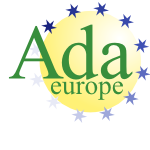 AdaEurope-1998-ArabanS #library #object-oriented
AdaEurope-1998-ArabanS #library #object-oriented- A Two-Level Matching Mechanism for Object-Oriented Class Libraries (SA, ASMS), pp. 188–200.
 CAiSE-1998-JinS #multi
CAiSE-1998-JinS #multi- Global Cache Management for Multi-class Workloads in Data Warehouses (SJ, XS), pp. 77–91.
 ICML-1998-McCallumRMN #classification
ICML-1998-McCallumRMN #classification- Improving Text Classification by Shrinkage in a Hierarchy of Classes (AM, RR, TMM, AYN), pp. 359–367.
 ICPR-1998-Aladjem #classification #ml #network #recursion #reduction
ICPR-1998-Aladjem #classification #ml #network #recursion #reduction- Training of a ML neural network for classification via recursive reduction of the class separation (MA), pp. 450–452.
 ICPR-1998-HerouxDRT #automation #classification #identification
ICPR-1998-HerouxDRT #automation #classification #identification- Classification method study for automatic form class identification (PH, SD, AR, ÉT), pp. 926–928.
 ICPR-1998-MoriKTS #graph #using #visualisation
ICPR-1998-MoriKTS #graph #using #visualisation- Visualization of the structure of classes using a graph (YM, MK, JT, MS), pp. 1724–1727.
 ICPR-1998-OhLS #analysis #using
ICPR-1998-OhLS #analysis #using- Using class separation for feature analysis and combination of class-dependent features (ISO, JSL, CYS), pp. 453–455.
 KDD-1998-ChanS #case study #detection #learning #scalability #towards
KDD-1998-ChanS #case study #detection #learning #scalability #towards- Toward Scalable Learning with Non-Uniform Class and Cost Distributions: A Case Study in Credit Card Fraud Detection (PKC, SJS), pp. 164–168.
 UML-1998-GogollaR #diagrams #uml
UML-1998-GogollaR #diagrams #uml- Transformation Rules for UML Class Diagrams (MG, MR), pp. 92–106.
 UML-1998-Ou #constraints #database #design #diagrams #object-oriented #on the #specification #uml #using
UML-1998-Ou #constraints #database #design #diagrams #object-oriented #on the #specification #uml #using- On Using UML Class Diagrams for Object-Oriented Database Design. Specification of Integrity Constraints (YO), pp. 173–188.
 ECOOP-1998-MikhajlovS #case study #problem
ECOOP-1998-MikhajlovS #case study #problem- A Study of The Fragile Base Class Problem (LM, ES), pp. 355–382.
 OOPSLA-1998-JacobsBHB #java #reasoning
OOPSLA-1998-JacobsBHB #java #reasoning- Reasoning about Java Classes (Preliminary Report) (BJ, JvdB, MH, MvB), pp. 329–340.
 OOPSLA-1998-LiangB #java #virtual machine
OOPSLA-1998-LiangB #java #virtual machine- Dynamics Class Loading in the Java Virtual Machine (SL, GB), pp. 36–44.
 TOOLS-ASIA-1998-Poo #policy
TOOLS-ASIA-1998-Poo #policy- Policy Definition in Application-Domain-Related Classes (DCCP), pp. 94–103.
 TOOLS-PACIFIC-1998-McDonaldS #framework #inheritance #testing
TOOLS-PACIFIC-1998-McDonaldS #framework #inheritance #testing- Testing Inheritance Hierarchies in the ClassBench Framework (JM, PAS), p. 229–?.
 POPL-1998-DeFouwGC #analysis #interprocedural #performance
POPL-1998-DeFouwGC #analysis #interprocedural #performance- Fast Interprocedural Class Analysis (GD, DG, CC), pp. 222–236.
 POPL-1998-FlattKF #mixin
POPL-1998-FlattKF #mixin- Classes and Mixins (MF, SK, MF), pp. 171–183.
 FSE-1998-SneltingT #concept analysis #re-engineering #using
FSE-1998-SneltingT #concept analysis #re-engineering #using- Reengineering Class Hierarchies Using Concept Analysis (GS, FT), pp. 99–110.
 HPDC-1998-SalmonSBS #distributed #scalability
HPDC-1998-SalmonSBS #distributed #scalability- Scaling of Beowulf-Class Distributed Systems (JKS, TLS, RB, CS), pp. 368–369.
 CSL-1998-BonfanteCMT #complexity #polynomial #term rewriting
CSL-1998-BonfanteCMT #complexity #polynomial #term rewriting- Complexity Classes and Rewrite Systems with Polynomial Interpretation (GB, AC, JYM, HT), pp. 372–384.
 LICS-1998-Tatsuta #synthesis
LICS-1998-Tatsuta #synthesis- Realizability for Constructive Theory of Functions and Classes and its Application to Program Synthesis (MT), pp. 358–367.
 RTA-1998-LimetR #equation #term rewriting
RTA-1998-LimetR #equation #term rewriting- Solving Disequations Modulo Some Class of Rewrite Systems (SL, PR), pp. 121–135.
 ITiCSE-1997-WolzDM #interactive #multi
ITiCSE-1997-WolzDM #interactive #multi- Multi-media integrated into CS 2: an interactive children’s story as a unifying class project (UW, DD, MM), pp. 103–110.
 STOC-1997-Ben-DavidBK #algorithm #composition #concept #geometry #learning #theorem
STOC-1997-Ben-DavidBK #algorithm #composition #concept #geometry #learning #theorem- A Composition Theorem for Learning Algorithms with Applications to Geometric Concept Classes (SBD, NHB, EK), pp. 324–333.
 FME-1997-MikhajlovaS #interface #object-oriented #refinement #source code
FME-1997-MikhajlovaS #interface #object-oriented #refinement #source code- Class Refinement and Interface Refinement in Object-Oriented Programs (AM, ES), pp. 82–101.
 HCI-CC-1997-SavidisS97a #complexity #declarative #framework #specification
HCI-CC-1997-SavidisS97a #complexity #declarative #framework #specification- Agent Classes for Managing Dialogue Control Specification Complexity: A Declarative Language Framework (AS, CS), pp. 461–464.
 HCI-SEC-1997-EllisDMAJ #equivalence
HCI-SEC-1997-EllisDMAJ #equivalence- In Search of Equivalence Classes in Subjective Scales of Reality (SRE, NSD, BMM, BDA, RHJ), pp. 873–876.
 ICML-1997-CardieN #predict #using
ICML-1997-CardieN #predict #using- Improving Minority Class Prediction Using Case-Specific Feature Weights (CC, NN), pp. 57–65.
 KDD-1997-ProvostF #analysis #classification #comparison #performance #visualisation
KDD-1997-ProvostF #analysis #classification #comparison #performance #visualisation- Analysis and Visualization of Classifier Performance: Comparison under Imprecise Class and Cost Distributions (FJP, TF), pp. 43–48.
 OOPSLA-1997-Mezini #consistency #evolution #library #maintenance
OOPSLA-1997-Mezini #consistency #evolution #library #maintenance- Maintaining the Consistency of Class Libraries During Their Evolution (MM), pp. 1–21.
 OOPSLA-1997-TipS
OOPSLA-1997-TipS- Class Hierarchy Specialization (FT, PFS), pp. 271–285.
 TOOLS-ASIA-1997-HitchensF #design #flexibility #library
TOOLS-ASIA-1997-HitchensF #design #flexibility #library- The Design of a Flexible Class Library Management System (MH, AF), pp. 60–69.
 TOOLS-PACIFIC-1997-ZhangP #calculus #modelling
TOOLS-PACIFIC-1997-ZhangP #calculus #modelling- Class-Based Models in the -Calculus (XZ, JP), pp. 238–251.
 TOOLS-USA-1997-Ege #design #encapsulation
TOOLS-USA-1997-Ege #design #encapsulation- Class Design: Advanced Encapsulation Techniques (RKE), p. 376.
 TOOLS-USA-1997-FrigoNZ #generative #robust
TOOLS-USA-1997-FrigoNZ #generative #robust- Mechanical Generation of Robust Class Hierarchies (JF, RN, WZ), p. 282–?.
 TOOLS-USA-1997-Schmidt97a
TOOLS-USA-1997-Schmidt97a- Dynamically Extensible Objects in a Class-Based Language (RWS), pp. 294–307.
 POPL-1997-Jones #morphism #polymorphism #type inference
POPL-1997-Jones #morphism #polymorphism #type inference- First-class Polymorphism with Type Inference (MPJ), pp. 483–496.
 CAV-1997-ChanABN #constraints #model checking #theorem proving
CAV-1997-ChanABN #constraints #model checking #theorem proving- Combining Constraint Solving and Symbolic Model Checking for a Class of a Systems with Non-linear Constraints (WC, RJA, PB, DN), pp. 316–327.
 SIGMOD-1996-GoelI #optimisation #order #query #sql
SIGMOD-1996-GoelI #optimisation #order #query #sql- SQL Query Optimization: Reordering for a General Class of Queries (PG, BRI), pp. 47–56.
 SIGMOD-1996-RaoBG #query
SIGMOD-1996-RaoBG #query- Providing Better Support for a Class of Decision Support Queries (SR, AB, DVG), pp. 217–227.
 CSEE-1996-Werth #re-engineering
CSEE-1996-Werth #re-engineering- Integrating Ethics and Professional Issues into a Software Engineering Class (LHW), pp. 259–269.
 ITiCSE-1996-ArnowC #email #programming #web
ITiCSE-1996-ArnowC #email #programming #web- Extending the conversation: integrating email and Web technology in CS programming classes (DMA, DC), pp. 93–95.
 ICALP-1996-AlonS #approximate #integer #parallel #problem #programming
ICALP-1996-AlonS #approximate #integer #parallel #problem #programming- Improved Parallel Approximation of a Class of Integer Programming Programming Problems (NA, AS), pp. 562–573.
 ICALP-1996-BosscherG #decidability #process #scalability
ICALP-1996-BosscherG #decidability #process #scalability- Regularity for a Large Class of Context-Free Processes is Decidable (DJBB, WODG), pp. 182–193.
 ICFP-1996-QueinnecR
ICFP-1996-QueinnecR- Sharing Code through First-class Environments (CQ, DDR), pp. 251–261.
 ICFP-1996-Turbak
ICFP-1996-Turbak- First-Class Synchronization Barriers (FAT), pp. 157–168.
 IFL-1996-Pil
IFL-1996-Pil- First Class File I/O (MP), pp. 233–246.
 AKDDM-1996-CheesemanS #classification
AKDDM-1996-CheesemanS #classification- Bayesian Classification (AutoClass): Theory and Results (PC, JS), pp. 153–180.
 ICPR-1996-Aladjem #distance #optimisation #recursion
ICPR-1996-Aladjem #distance #optimisation #recursion- Two-class pattern discrimination via recursive optimization of Patrick-Fisher distance (MEA), pp. 60–64.
 ICPR-1996-ChenJ #behaviour #network #on the
ICPR-1996-ChenJ #behaviour #network #on the- On the small sample behavior of the class-sensitive neural network (CHC, AJ), pp. 209–213.
 ICPR-1996-Fainzilberg #recognition #statistics #why
ICPR-1996-Fainzilberg #recognition #statistics #why- Why relevant features may be unuseful in statistical recognition of two classes (LF), pp. 730–734.
 ICPR-1996-Ha #pattern matching #pattern recognition #recognition
ICPR-1996-Ha #pattern matching #pattern recognition #recognition- An optimum class-selective rejection rule for pattern recognition (TMH), pp. 75–80.
 ICPR-1996-KimuraWM #feature model #on the #problem
ICPR-1996-KimuraWM #feature model #on the #problem- On feature extraction for limited class problem (FK, TW, YM), pp. 191–194.
 ICPR-1996-KositskyU #learning
ICPR-1996-KositskyU #learning- Learning class regions by the union of ellipsoids (MK, SU), pp. 750–757.
 ICPR-1996-MottlMBK #image #problem
ICPR-1996-MottlMBK #image #problem- Hidden tree-like quasi-Markov model and generalized technique for a class of image processing problems (VM, IBM, AB, AK), pp. 715–719.
 ICPR-1996-MurshedBS #approach #classification #detection #fuzzy #problem
ICPR-1996-MurshedBS #approach #classification #detection #fuzzy #problem- A fuzzy ARTMAP-based classification system for detecting cancerous cells, based on the one-class problem approach (NAM, FB, RS), pp. 478–482.
 SEKE-1996-Franca #c++ #design #education #library #object-oriented #programming
SEKE-1996-Franca #c++ #design #education #library #object-oriented #programming- The Design of a Class Library to Support Teaching of Object Oriented Programming with C++ (PBF), pp. 32–37.
 SEKE-1996-Gates #constraints #on the
SEKE-1996-Gates #constraints #on the- On Defining a Class of Integrity Constraints (AQG), pp. 338–344.
 SEKE-1996-Hassanein
SEKE-1996-Hassanein- Class Hierarchy Management System (EH), pp. 38–44.
 ECOOP-1996-GarbinatoFG #design #distributed #protocol #reliability
ECOOP-1996-GarbinatoFG #design #distributed #protocol #reliability- Protocol Classes for Designing Reliable Distributed Environments (BG, PF, RG), pp. 316–343.
 OOPSLA-1996-DickyDHL #automation #on the
OOPSLA-1996-DickyDHL #automation #on the- On Automatic Class Insertion with Overloading (HD, CD, MH, TL), pp. 251–267.
 OOPSLA-1996-TipCFR #c++ #slicing
OOPSLA-1996-TipCFR #c++ #slicing- Slicing Class Hierarchies in C++ (FT, JDC, JF, GR), pp. 179–197.
 SAC-1996-SchleiferSP #implementation #smalltalk
SAC-1996-SchleiferSP #implementation #smalltalk- The implementation of a Chronicle collection class in Smalltalk/DB (PS, YS, DP), pp. 209–215.
 HPCA-1996-QiaoM #multi #network #on the #permutation
HPCA-1996-QiaoM #multi #network #on the #permutation- On the Multiplexing Degree Required to Embed Permutations in a Class of Networks with Direct Interconnects (CQ, YM), pp. 118–129.
 JICSLP-1996-Mesnard #constraints #logic programming #query #source code
JICSLP-1996-Mesnard #constraints #logic programming #query #source code- Inferring Left-terminating Classes of Queries for Constraint Logic Programs (FM), pp. 7–21.
 ICDAR-v1-1995-MurshedBS #approach #verification
ICDAR-v1-1995-MurshedBS #approach #verification- Off-line signature verification, without a priori knowledge of class /spl omega//sub 2/. A new approach (NAM, FB, RS), pp. 191–196.
 ICDAR-v2-1995-CesariniGMS
ICDAR-v2-1995-CesariniGMS- A system for data extraction from forms of known class (FC, MG, SM, GS), pp. 1136–1140.
 ICDAR-v2-1995-YuSS #scalability
ICDAR-v2-1995-YuSS #scalability- A system for recognizing a large class of engineering drawings (YY, AS, SCS), pp. 791–794.
 SIGMOD-1995-RamaswamyK
SIGMOD-1995-RamaswamyK- OODB Indexing by Class-Division (SR, PCK), pp. 139–150.
 ICSM-1995-NakanishiAI #interface #library #metric
ICSM-1995-NakanishiAI #interface #library #metric- A metric for evaluating class library interfaces and its application to library upgrades (KN, TA, MI), pp. 12–19.
 ICALP-1995-GiancarloG #algorithm #matrix #on the
ICALP-1995-GiancarloG #algorithm #matrix #on the- On the Construction of Classes of Suffix Trees for Square Matrices: Algorithms and Applications (RG, RG), pp. 111–122.
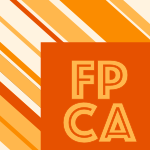 FPCA-1995-MiraniH
FPCA-1995-MiraniH- First-Class Schedules and Virtual Maps (RM, PH), pp. 78–85.
 CAiSE-1995-AndonoffHPZ #composition #inheritance #modelling
CAiSE-1995-AndonoffHPZ #composition #inheritance #modelling- Modelling Inheritance, Composition and Relationship Links between Objects, Object Versions and Class Versions (EA, GH, ALP, GZ), pp. 96–111.
 SEKE-1995-JiangC #concept #evolution
SEKE-1995-JiangC #concept #evolution- Class Transmutation and other Evolution Concepts (HJ, XC), pp. 72–79.
 ECOOP-1995-BertinoG #multi
ECOOP-1995-BertinoG #multi- Objects with Multiple Most Specific Classes (EB, GG), pp. 102–126.
 ECOOP-1995-DeanGC #analysis #object-oriented #optimisation #source code #using
ECOOP-1995-DeanGC #analysis #object-oriented #optimisation #source code #using- Optimization of Object-Oriented Programs Using Static Class Hierarchy Analysis (JD, DG, CC), pp. 77–101.
 ECOOP-1995-SteyaertM #inheritance
ECOOP-1995-SteyaertM #inheritance- A Marriage of Class- and Object-Based inheritance Without Unwanted Children (PS, WDM), pp. 127–144.
 OOPSLA-1995-DucasseBP #dependence
OOPSLA-1995-DucasseBP #dependence- A Reflective Model for First Class Dependencies (SD, MBF, AMPD), pp. 265–280.
 OOPSLA-1995-GroveDGC #predict
OOPSLA-1995-GroveDGC #predict- Profile-Guided Receiver Class Prediction (DG, JD, CG, CC), pp. 108–123.
 OOPSLA-1995-Riehle #encapsulation #how #why
OOPSLA-1995-Riehle #encapsulation #how #why- How and Why to Encapsulate Class Trees (DR), pp. 251–264.
 PLILP-1995-Jones #programming
PLILP-1995-Jones #programming- Programming with Constructor Classes (Abstract) (MPJ), p. 26.
 CAV-1995-HulgaardB #analysis #performance #petri net
CAV-1995-HulgaardB #analysis #performance #petri net- Efficient Timing Analysis of a Class of Petri Nets (HH, SMB), pp. 423–436.
 CAV-1995-JonssonK #algorithm #distributed #infinity #safety #verification
CAV-1995-JonssonK #algorithm #distributed #infinity #safety #verification- Verifying Safety Properties of a Class of Infinite-State Distributed Algorithms (BJ, LK), pp. 42–53.
 LICS-1995-Seth #complexity #fixpoint #logic #question
LICS-1995-Seth #complexity #fixpoint #logic #question- When Do Fixed Point Logics Capture Complexity Classes? (AS), pp. 353–363.
 TLCA-1995-Padovani #equation #equivalence #on the
TLCA-1995-Padovani #equation #equivalence #on the- On Equivalence Classes of Interpolation Equations (VP), pp. 335–349.
 PODS-1994-PatnaikI #complexity #named #parallel
PODS-1994-PatnaikI #complexity #named #parallel- Dyn-FO: A Parallel, Dynamic Complexity Class (SP, NI), pp. 210–221.
 ESOP-1994-HallHJW #haskell
ESOP-1994-HallHJW #haskell- Type Classes in Haskell (CVH, KH, SLPJ, PW), pp. 241–256.
 ESOP-1994-Kahrs #ml #morphism #polymorphism
ESOP-1994-Kahrs #ml #morphism #polymorphism- First-Class Polymorphism for ML (SK), pp. 333–347.
 ESOP-1994-Moreau #automaton #continuation #evaluation #functional #parallel #source code
ESOP-1994-Moreau #automaton #continuation #evaluation #functional #parallel #source code- The PCKS-Machine: An Abstract Machine for Sound Evaluation of Parallel Functional Programs with First-Class Continuations (LM), pp. 424–438.
 LFP-1994-Thatte #revisited #semantics
LFP-1994-Thatte #revisited #semantics- Semantics of Type Classes Revisited (SRT), pp. 208–219.
 AdaEurope-1994-Bondeli #ada #communication #reuse
AdaEurope-1994-Bondeli #ada #communication #reuse- A Fully Reusable Class of Objects for Synchronization and Communication in Ada 9X (PdB), pp. 355–386.
 TRI-Ada-1994-Barbey #ada
TRI-Ada-1994-Barbey #ada- Working with Ada 9X Classes (SB), pp. 129–140.
 CAiSE-1994-Keszenheimer #abstraction #behaviour #evolution #maintenance
CAiSE-1994-Keszenheimer #abstraction #behaviour #evolution #maintenance- Utilizing Behavioral Abstractions to Facilitate Maintenance During Class Evolution (LMK), pp. 325–338.
 CAiSE-1994-Odberg #classification #database #evolution #flexibility #object-oriented
CAiSE-1994-Odberg #classification #database #evolution #flexibility #object-oriented- Category Classes: Flexible Classification and Evolution in Object-Oriented Databases (EO), pp. 406–420.
 KR-1994-CalvaneseLN #framework #representation
KR-1994-CalvaneseLN #framework #representation- A Unified Framework for Class-Based Representation Formalisms (DC, ML, DN), pp. 109–120.
 SEKE-1994-CanforaLT #inheritance
SEKE-1994-CanforaLT #inheritance- Recovering object classes and inheritance relationships from existing code (GC, GADL, MT), pp. 233–240.
 SEKE-1994-GuoSRD #database #optimisation #query #reduction #semantics
SEKE-1994-GuoSRD #database #optimisation #query #reduction #semantics- Semantic query optimization by class reference reduction in object- oriented databases (SG, WS, NR, YD), pp. 306–313.
 OOPSLA-1994-LortzS #contract #programming
OOPSLA-1994-LortzS #contract #programming- Combining Contracts and Exemplar-Based Programming for Class Hiding and Customization (VBL, KGS), pp. 453–467.
 TOOLS-EUROPE-1994-Schmid #library #requirements #reuse
TOOLS-EUROPE-1994-Schmid #library #requirements #reuse- Reuse Inhibitors with, and Requirements for Collection Class Libraries (HAS), pp. 243–252.
 PLILP-1994-Voronkov #bottom-up #implementation
PLILP-1994-Voronkov #bottom-up #implementation- An Implementation Technique for a Class of Bottom-Up Procedures (AV), pp. 147–164.
 POPL-1994-Thatte #adaptation #automation #interface #reuse #synthesis
POPL-1994-Thatte #adaptation #automation #interface #reuse #synthesis- Automated Synthesis of Interface Adapters for Reusable Classes (ST), pp. 174–187.
 ICRE-1994-Eckert #analysis #object-oriented
ICRE-1994-Eckert #analysis #object-oriented- Types, classes and collections in object-oriented analysis (GE), pp. 32–39.
 SAC-1994-Berg #named #reuse
SAC-1994-Berg #named #reuse- CLASSLIB — class management and reuse support on a MVS mainframe (KB), pp. 53–58.
 SAC-1994-FogelsongDS #framework #library #reuse
SAC-1994-FogelsongDS #framework #library #reuse- Graphics class library for plotting (GCLIP), an extensible, reusable graphics framework (BAF, SD, DAS), pp. 64–69.
 SAC-1994-LeeA #c++
SAC-1994-LeeA #c++- C++ style class support under FIG Forth (YML, DJA), pp. 341–345.
 SAC-1994-RayJD #algorithm #array #graph #linear #parallel
SAC-1994-RayJD #algorithm #array #graph #linear #parallel- A parallel algorithm for mapping a special class of task graphs onto linear array multiprocessors (SR, HJ, JSD), pp. 473–477.
 FSE-1994-HarroldR #data flow #testing
FSE-1994-HarroldR #data flow #testing- Performing Data Flow Testing on Classes (MJH, GR), pp. 154–163.
 CADE-1994-ChazarainK #induction #proving
CADE-1994-ChazarainK #induction #proving- Mechanizable Inductive Proofs for a Class of Forall Exists Formulas (JC, EK), pp. 118–132.
 CAV-1994-AlurFH #automaton
CAV-1994-AlurFH #automaton- A Determinizable Class of Timed Automata (RA, LF, TAH), pp. 1–13.
 CAV-1994-McManisV #automaton #decidability #hybrid
CAV-1994-McManisV #automaton #decidability #hybrid- Suspension Automata: A Decidable Class of Hybrid Automata (JM, PV), pp. 105–117.
 ILPS-1994-MichaylovP #compilation #constraints #linear #logic programming #optimisation #source code
ILPS-1994-MichaylovP #compilation #constraints #linear #logic programming #optimisation #source code- Optimizing Compilation of Linear Arithmetic in a Class of Constraint Logic Programs (SM, BP), pp. 586–600.
 PODS-1993-KanellakisRVV #constraints #modelling
PODS-1993-KanellakisRVV #constraints #modelling- Indexing for Data Models with Constraints and Classes (PCK, SR, DEV, JSV), pp. 233–243.
 PLDI-1993-AdamsCS #data type
PLDI-1993-AdamsCS #data type- First-Class Data-Type Representations in SchemeXerox (NA, PC, MS), pp. 139–146.
 PLDI-1993-PetersonJ #implementation
PLDI-1993-PetersonJ #implementation- Implementing Type Classes (JP, MPJ), pp. 227–236.
 FPCA-1993-Jones #higher-order #morphism #polymorphism
FPCA-1993-Jones #higher-order #morphism #polymorphism- A System of Constructor Classes: Overloading and Implicit Higher-Order Polymorphism (MPJ), pp. 52–64.
 CIKM-1993-CellaryW #database #multi #object-oriented
CIKM-1993-CellaryW #database #multi #object-oriented- Locking Objects and Classes in Multiversion Object-Oriented Databases (WC, WW), pp. 586–595.
 ICML-1993-Brodley #automation
ICML-1993-Brodley #automation- Automatic Algorith/Model Class Selection (CEB), pp. 17–24.
 SEKE-1993-MassariCCC #database #source code
SEKE-1993-MassariCCC #database #source code- Programs as Databases: Treating Code and Comments as First Class Objects (AM, GC, PKC, SKC), pp. 78–85.
 ECOOP-1993-Chambers
ECOOP-1993-Chambers- Predicate Classes (CC), pp. 268–296.
 OOPSLA-1993-GodinM #maintenance #using
OOPSLA-1993-GodinM #maintenance #using- Building and Maintaining Analysis-Level Class Hierarchies Using Galois Lattices (RG, HM), pp. 394–410.
 TOOLS-EUROPE-1993-BarrilBB #authoring #object-oriented
TOOLS-EUROPE-1993-BarrilBB #authoring #object-oriented- Class Cooperation in a Dedicated Object System: The Force Authoring Environment (PB, MB, JFB), pp. 115–123.
 TOOLS-EUROPE-1993-Johnson #library #reuse
TOOLS-EUROPE-1993-Johnson #library #reuse- Reusable Class Libraries (PJ), p. 319.
 TOOLS-PACIFIC-1993-DongD #morphism #polymorphism
TOOLS-PACIFIC-1993-DongD #morphism #polymorphism- Class Union and Polymorphism (JSD, RD), pp. 181–190.
 TOOLS-PACIFIC-1993-Duke93a
TOOLS-PACIFIC-1993-Duke93a- Class Operators for Object Compatibility (RD), pp. 449–461.
 TOOLS-PACIFIC-1993-Fuller #modelling
TOOLS-PACIFIC-1993-Fuller #modelling- Class-Based Modelling Of A General Ledger System (AF), pp. 37–48.
 TOOLS-PACIFIC-1993-Maughan #implementation #library #persistent #programming #requirements
TOOLS-PACIFIC-1993-Maughan #implementation #library #persistent #programming #requirements- Persistent Programming: Requirements for a Class Library Implementation (GM), pp. 371–381.
 TOOLS-PACIFIC-1993-MenziesEN #library #reuse
TOOLS-PACIFIC-1993-MenziesEN #library #reuse- The Mysterious Case of the Missing Reusable Class Libraries (TM, JME, KN), pp. 421–427.
 TOOLS-PACIFIC-1993-NakanishiAM #library
TOOLS-PACIFIC-1993-NakanishiAM #library- Understandibility of Class Libraries and Zipf's Law (KN, TA, TM), pp. 225–232.
 TOOLS-PACIFIC-1993-PloschW #communication #distributed #hybrid #library
TOOLS-PACIFIC-1993-PloschW #communication #distributed #hybrid #library- An Extensible Communication Class Library for Hybrid Distributed Systems (RP, RW), pp. 431–437.
 TOOLS-PACIFIC-1993-RatjensS #framework #named
TOOLS-PACIFIC-1993-RatjensS #framework #named- ClassWorks — a Methodological Framework for Developing Systems (MR, RS), p. 317.
 TOOLS-USA-1993-BielakM
TOOLS-USA-1993-BielakM- The Many Faces of a Class: Views and Contrasts (RB, JCM), pp. 153–161.
 TOOLS-USA-1993-MiliL #abstraction #automation #object-oriented #reuse
TOOLS-USA-1993-MiliL #abstraction #automation #object-oriented #reuse- Data Abstraction in SoftClass, an OO CASE Tool for Software Reuse (HM, HL), pp. 133–149.
 TOOLS-USA-1993-MinginsDS #analysis #eiffel #metric
TOOLS-USA-1993-MinginsDS #analysis #eiffel #metric- Collection and Analysis of Software Metrics from the Eiffel Class Hierarchy (CM, BD, GS), pp. 427–435.
 POPL-1993-NipkowP #type checking
POPL-1993-NipkowP #type checking- Type Checking Type Classes (TN, CP), pp. 409–418.
 SAC-1993-NgMN #library #object-oriented #programming
SAC-1993-NgMN #library #object-oriented #programming- A Class Library Management System for Object-Oriented Programming (KWN, JM, GMN), pp. 445–451.
 ICALP-1992-ChangMP
ICALP-1992-ChangMP- Characterization of Temporal Property Classes (EYC, ZM, AP), pp. 474–486.
 LFP-1992-ChenHO #parametricity
LFP-1992-ChenHO #parametricity- Parametric Type Classes (KC, PH, MO), pp. 170–181.
 LFP-1992-DanvyL #continuation
LFP-1992-DanvyL #continuation- Back to Direct Style II: First-Class Continuations (OD, JLL), pp. 299–310.
 TRI-Ada-C-1992-Cherry #ada #behaviour
TRI-Ada-C-1992-Cherry #ada #behaviour- Stimulus Response Machines: An Ada-based Graphic Formalism for Describing Class and Object Behavior (GWC), pp. 321–332.
 ML-1992-SmythM #detection #fault #novel
ML-1992-SmythM #detection #fault #novel- Detecting Novel Classes with Applications to Fault Diagnosis (PS, JM), pp. 416–425.
 ECOOP-1992-Casais #approach #incremental
ECOOP-1992-Casais #approach #incremental- An Incremental Class Reorganization Approach (EC), pp. 114–132.
 ECOOP-1992-DodaniT #named #object-oriented #programming #type system
ECOOP-1992-DodaniT #named #object-oriented #programming #type system- ACTS: A Type System for Object-Oriented Programming Based on Abstract and Concrete Classes (MD, CST), pp. 309–328.
 ECOOP-1992-LauS #heuristic #library #object-oriented #parallel #scalability
ECOOP-1992-LauS #heuristic #library #object-oriented #parallel #scalability- An Object-Oriented Class Library for Scalable Parallel Heuristic Search (WCL, VS), pp. 252–267.
 ECOOP-1992-McCue #object-oriented #transaction
ECOOP-1992-McCue #object-oriented #transaction- Developing a Class Hierarchy for Object-Oriented Transaction Processing (DLM), pp. 413–426.
 ECOOP-1992-Szyperski #inheritance #why
ECOOP-1992-Szyperski #inheritance #why- Import is Not Inheritance — Why We Need Both: Modules and Classes (CAS), pp. 19–32.
 OOPSLA-1992-Cook #interface #specification
OOPSLA-1992-Cook #interface #specification- Interfaces and Specifications for the Smalltalk-80 Collection Classes (WRC), pp. 1–15.
 OOPSLA-1992-KiczalesL #design #documentation #library
OOPSLA-1992-KiczalesL #design #documentation #library- Issues in the Design and Documentation of Class Libraries (GK, JL), pp. 435–451.
 TOOLS-EUROPE-1992-CarnduffG #design #eiffel #library
TOOLS-EUROPE-1992-CarnduffG #design #eiffel #library- An Eiffel Class Library for Ship Design (TWC, WAG), pp. 233–245.
 TOOLS-EUROPE-1992-Steinmuller #industrial
TOOLS-EUROPE-1992-Steinmuller #industrial- Qualifying C++-Foundation Classes for Use in Industrial Applications (US), pp. 47–59.
 TOOLS-PACIFIC-1992-DebrayH #c++ #simulation
TOOLS-PACIFIC-1992-DebrayH #c++ #simulation- Some Classes for Object-Based Simulation in C++ (TD, JBH), pp. 143–152.
 TOOLS-PACIFIC-1992-MaE #approach #library #relational #using
TOOLS-PACIFIC-1992-MaE #approach #library #relational #using- A Practical Approach to Class Library Management Using a Relational DBMS (JM, JME), pp. 165–173.
 TOOLS-PACIFIC-1992-Miller #analysis #architecture #finite #interactive
TOOLS-PACIFIC-1992-Miller #analysis #architecture #finite #interactive- A Class Architecture for Interactive Finite Element Analysis (GRM), pp. 101–108.
 TOOLS-PACIFIC-1992-Ratjens #information management #scalability
TOOLS-PACIFIC-1992-Ratjens #information management #scalability- Discovering Classes and their Properties in Large-Scale Management Information Systems (MR), pp. 53–65.
 TOOLS-USA-1992-McKimM #design #interface
TOOLS-USA-1992-McKimM #design #interface- Class Interface Design (JCM, DAM), pp. 151–160.
 TOOLS-USA-1992-Weber #correctness #how
TOOLS-USA-1992-Weber #correctness #how- Getting Class Correctness and System Correctness Equivalent (How to get covariance right) (FW), pp. 199–213.
 ICSE-1992-HarroldMF #incremental #object-oriented #testing
ICSE-1992-HarroldMF #incremental #object-oriented #testing- Incremental Testing of Object-Oriented Class Structures (MJH, JDM, KJF), pp. 68–80.
 CSL-1992-Creignou #linear #problem #proving #satisfiability
CSL-1992-Creignou #linear #problem #proving #satisfiability- The Class of Problems that are Linear Equivalent to Satisfiability or a Uniform Method for Proving NP-Completeness (NC), pp. 115–133.
 CSL-1992-HonsellMST #formal method #functional
CSL-1992-HonsellMST #formal method #functional- A Theory of Classes for a Functional Language with Effects (FH, IAM, SFS, CLT), pp. 309–326.
 CSL-1992-Stewart #bound #logic #polynomial #query
CSL-1992-Stewart #bound #logic #polynomial #query- Logical Characterization of Bounded Query Classes II: Polynomial-Time Oracle Machines (IAS), pp. 410–424.
 IWPTS-1992-HigashinoBLYT #parametricity #strict
IWPTS-1992-HigashinoBLYT #parametricity #strict- Test System for a Restricted Class of LOTOS Expressions with Data Parameters (TH, GvB, XL, KY, KT), pp. 205–216.
 LICS-1992-Stolboushkin #axiom #finite #linear #modelling #order
LICS-1992-Stolboushkin #axiom #finite #linear #modelling #order- Axiomatizable Classes of Finite Models and Definability of Linear Order (APS), pp. 64–70.
 PODS-1991-Roy #clustering #complexity #independence #query #relational #semantics
PODS-1991-Roy #clustering #complexity #independence #query #relational #semantics- Semantic Complexity of Classes of Relational Queries and Query Independent Data Partitioning (SR), pp. 259–267.
 SEI-1991-Werth #automation #collaboration #re-engineering #tool support
SEI-1991-Werth #automation #collaboration #re-engineering #tool support- Industry-Academia Collaboration to Provide CASE Tools for Software Engineering Classes (LHW), pp. 245–256.
 VDME-1991-1-SchmidtH #compilation #generative #library
VDME-1991-1-SchmidtH #compilation #generative #library- The VDM Domain Compiler: A VDM Class Library Generator (US, HMH), pp. 675–676.
 FPCA-1991-JonesL #functional #strict
FPCA-1991-JonesL #functional #strict- Unboxed Values as First Class Citizens in a Non-Strict Functional Language (SLPJ, JL), pp. 636–666.
 FPCA-1991-NipkowS #order #unification
FPCA-1991-NipkowS #order #unification- Type Classes and Overloading Resolution via Order-Sorted Unification (TN, GS), pp. 1–14.
 CHI-1991-RossonCS #reuse #smalltalk
CHI-1991-RossonCS #reuse #smalltalk- A view matcher for reusing Smalltalk classes (MBR, JMC, CS), pp. 277–283.
 CHI-1991-RossonCS91a #reuse #smalltalk
CHI-1991-RossonCS91a #reuse #smalltalk- Demonstrating a view matcher for reusing Smalltalk classes (MBR, JMC, CS), pp. 431–432.
 ECOOP-1991-BergsteinL #incremental #learning #optimisation #taxonomy
ECOOP-1991-BergsteinL #incremental #learning #optimisation #taxonomy- Incremental Class Dictionary Learning and Optimization (PLB, KJL), pp. 377–396.
 OOPSLA-1991-Bergstein
OOPSLA-1991-Bergstein- Object-Preserving Class Transformations (PLB), pp. 299–313.
 OOPSLA-1991-HelmM #information retrieval #library #object-oriented
OOPSLA-1991-HelmM #information retrieval #library #object-oriented- Integrating Information Retrieval and Domain Specific Approaches for Browsing and Retrieval in Object-Oriented Class Libraries (RH, YSM), pp. 47–61.
 TOOLS-USA-1991-Hong #approach #database #design #normalisation
TOOLS-USA-1991-Hong #approach #database #design #normalisation- A Class Normalization Approach to the Design of O-O Databases (SH), pp. 63–72.
 TOOLS-USA-1991-Horstmann #c++ #design #library #standard
TOOLS-USA-1991-Horstmann #c++ #design #library #standard- Design Considerations for a Standard C++ Container Class Library (CSH), pp. 327–338.
 TOOLS-USA-1991-KitchelM #using
TOOLS-USA-1991-KitchelM #using- Using Descriptor Classes in O-O Systems (SWK, NLM), pp. 167–178.
 TOOLS-USA-1991-Korson #design #library #object-oriented #specification
TOOLS-USA-1991-Korson #design #library #object-oriented #specification- The Specification and Design of Object-Oriented Class Libraries (TK), pp. 485–486.
 TOOLS-USA-1991-Meyer #how #question
TOOLS-USA-1991-Meyer #how #question- Do we know how to find the classes? (BM), pp. 349–350.
 TOOLS-USA-1991-Mili #named #object-oriented #reuse
TOOLS-USA-1991-Mili #named #object-oriented #reuse- SoftClass: An Object-Oriented Tool for Software Reuse (HM), pp. 303–318.
 TOOLS-USA-1991-PaulaN #design
TOOLS-USA-1991-PaulaN #design- Designing a Class Hierarchy (EGdP, MLN), pp. 203–218.
 POPL-1991-DubaHM #continuation #ml #type system
POPL-1991-DubaHM #continuation #ml #type system- Typing First-Class Continuations in ML (BFD, RH, DBM), pp. 163–173.
 PPoPP-1991-KungSGK #network #performance #scalability
PPoPP-1991-KungSGK #network #performance #scalability- Parallelizing a New Class of Large Applications over High-speed Networks (HTK, PS, MG, MK), pp. 167–177.
 SOSP-1991-MarshSLM
SOSP-1991-MarshSLM- First-Class User-Level Theads (BDM, MLS, TJL, EPM), pp. 110–121.
 LICS-1991-PacholskiS #higher-order #on the #similarity
LICS-1991-PacholskiS #higher-order #on the #similarity- On the 0-1 Law for the class of Existential Second Order Minimal Gödel Sentences with Equality (LP, WS), pp. 280–285.
 PLDI-1990-HiebDB #continuation #representation
PLDI-1990-HiebDB #continuation #representation- Representing Control in the Presence of First-Class Continuations (RH, RKD, CB), pp. 66–77.
 ICALP-1990-DietzfelbingerH #realtime
ICALP-1990-DietzfelbingerH #realtime- A New Universal Class of Hash Functions and Dynamic Hashing in Real Time (MD, FMadH), pp. 6–19.
 ICALP-1990-LucaV #on the
ICALP-1990-LucaV #on the- On Non-Counting Regular Classes (AdL, SV), pp. 74–87.
 LFP-1990-KatzW #continuation #interactive
LFP-1990-KatzW #continuation #interactive- Continuing into the Future: On the Interaction of Futures and First-Class Continuations (MK, DW), pp. 176–184.
 LFP-1990-SheldonG #dependent type
LFP-1990-SheldonG #dependent type- Static Dependent Types for First Class Modules (MAS, DKG), pp. 20–29.
 OOPSLA-ECOOP-1990-Berlin #case study #experience #multi #reuse
OOPSLA-ECOOP-1990-Berlin #case study #experience #multi #reuse- When Objects Collide: Experiences with Reusing Multiple Class Hierarchies (LMB), pp. 181–193.
 POPL-1990-Stark #automaton #concurrent #on the
POPL-1990-Stark #automaton #concurrent #on the- On the Relations Computable by a Class of Concurrent Automata (EWS), pp. 329–340.
 CLP-1990-SchreyeVB90 #detection #graph #horn clause #query #strict #using
CLP-1990-SchreyeVB90 #detection #graph #horn clause #query #strict #using- A Practical Technique for Detecting Non-terminating Queries for a Restricted Class of Horn Clauses, Using Directed, Weighted Graphs (DDS, KV, MB), pp. 649–663.
 CSL-1990-Fermuller #set
CSL-1990-Fermuller #set- A Resolution Variant Deciding some Classes of Clause Sets (CGF), pp. 128–144.
 LICS-1990-HeintzeJ #constraints #set
LICS-1990-HeintzeJ #constraints #set- A Decision Procedure for a Class of Set Constraints (Extended Abstract) (NH, JJ), pp. 42–51.
 NACLP-1990-MancarellaPRT #algebra #logic programming #source code
NACLP-1990-MancarellaPRT #algebra #logic programming #source code- Algebraic Properties of a Class of Logic Programs (PM, DP, MR, MT), pp. 23–39.
 PODS-1989-Borgida #inheritance #query #strict #type system
PODS-1989-Borgida #inheritance #query #strict #type system- Type Systems for Querying Class Hierarchies with Non-strict Inheritance (AB), pp. 394–400.
 PLDI-1989-OTooleG #polymorphism #re-engineering
PLDI-1989-OTooleG #polymorphism #re-engineering- Type Reconstruction with First-Class Polymorphic Values (JO, DKG), pp. 207–217.
 ICALP-1989-Toran #combinator #complexity
ICALP-1989-Toran #combinator #complexity- A Combinatorial Technique for Separating Counting Complexity Classes (JT), pp. 733–744.
 KR-1989-Prescott #reasoning
KR-1989-Prescott #reasoning- Analogical Reasoning, Defeasible Reasoning, and the Reference Class (RP), pp. 256–265.
 ECOOP-1989-MadanyCRL #file system
ECOOP-1989-MadanyCRL #file system- A Class Hierarchy for Building Stream-Oriented File Systems (PM, RHC, VFR, DEL), pp. 311–328.
 OOPSLA-1989-Ferber #object-oriented
OOPSLA-1989-Ferber #object-oriented- Computational Reflection in Class-Based Object-Oriented Languages (JF), pp. 317–326.
 OOPSLA-1989-MadsenM #object-oriented #programming
OOPSLA-1989-MadsenM #object-oriented #programming- Virtual Classes: A Powerful Mechanism in Object-Oriented Programming (OLM, BMP), pp. 397–406.
 OOPSLA-1989-OhoriB #parametricity #static typing #type inference
OOPSLA-1989-OhoriB #parametricity #static typing #type inference- Static Type Inference for Parametric Classes (AO, PB), pp. 445–456.
 SOSP-1989-BarkleyL #bound #lazy evaluation
SOSP-1989-BarkleyL #bound #lazy evaluation- A Lazy Buddy System Bounded by Two Coalescing Delays per Class (REB, TPL), pp. 167–176.
 CSL-1989-Dahn #on the
CSL-1989-Dahn #on the- On Test Classes for Universal Theories (BID), pp. 90–97.
 CSL-1989-Leitsch
CSL-1989-Leitsch- Deciding Horn Classes by Hyperresolution (AL), pp. 225–241.
 CSL-1989-Wette #complexity #recursion #representation
CSL-1989-Wette #complexity #recursion #representation- Sequential Representation of Primitive Recursive Functions, and Complexity Classes (EW), pp. 422–437.
 LICS-1989-Goerdt #complexity #recursion
LICS-1989-Goerdt #complexity #recursion- Characterizing Complexity Classes By Higher Type Primitive Recursive Definitions (AG), pp. 364–374.
 RTA-1989-Strandh #equation #performance #source code
RTA-1989-Strandh #equation #performance #source code- Classes of Equational Programs that Compile into Efficient Machine Code (RS), pp. 449–461.
 SIGMOD-1988-Borgida #modelling
SIGMOD-1988-Borgida #modelling- Modeling Class Hierarchies with Contradictions (AB), pp. 434–443.
 PLDI-1988-Reppy
PLDI-1988-Reppy- Synchronous Operations as First-Class Values (JHR), pp. 250–259.
 PLDI-1988-WalzJ #attribute grammar #evaluation #incremental
PLDI-1988-WalzJ #attribute grammar #evaluation #incremental- Incremental Evaluation for a General Class of Circular Attribute Grammars (JAW, GFJ), pp. 209–221.
 STOC-1988-PapadimitriouY88a #approximate #complexity #optimisation
STOC-1988-PapadimitriouY88a #approximate #complexity #optimisation- Optimization, Approximation, and Complexity Classes (Extended Abstract) (CHP, MY), pp. 229–234.
 ICALP-1988-Watanabe #complexity #nondeterminism #on the
ICALP-1988-Watanabe #complexity #nondeterminism #on the- On ≤ᴾ₁₋tt-Sparseness and Nondeterministic Complexity Classes (Extended Abstract) (OW0), pp. 697–709.
 ML-1988-CheesemanKSSTF #classification #named
ML-1988-CheesemanKSSTF #classification #named- AutoClass: A Bayesian Classification System (PC, JK, MS, JS, WT, DF), pp. 54–64.
 SIGIR-1988-FoxNL #concept
SIGIR-1988-FoxNL #concept- Coefficients for Combining Concept Classes in a Collection (EAF, GLN, WCL), pp. 291–307.
 POPL-1988-Felleisen #theory and practice
POPL-1988-Felleisen #theory and practice- The Theory and Practice of First-Class Prompts (MF), pp. 180–190.
 POPL-1988-JohnsonD #continuation
POPL-1988-JohnsonD #continuation- Stores and Partial Continuations as First-Class Objects in a Language and its Environment (GFJ, DD), pp. 158–168.
 ICSE-1988-LieberherrR #case study #named
ICSE-1988-LieberherrR #case study #named- Demeter: A Case Study of Software Growth through Parameterized Classes (KJL, AJR), pp. 254–264.
 CSL-1988-Goerdt #complexity #recursion
CSL-1988-Goerdt #complexity #recursion- Characterizing Complexity Classes by General Recursive Definitions in Higher Types (AG), pp. 99–117.
 CSL-1988-Gradel #complexity #modelling #nondeterminism
CSL-1988-Gradel #complexity #modelling #nondeterminism- Size of Models versus Length of Computations: On Inseparability by Nondeterministic Time Complexity Classes (EG), pp. 118–137.
 JICSCP-1988-McCroskyK88 #array #prolog #using
JICSCP-1988-McCroskyK88 #array #prolog #using- Improving First-Class Array Expressions Using Prolog (CM, AJK), pp. 18–25.
 PODS-1987-NaughtonS #bound #decidability #recursion
PODS-1987-NaughtonS #bound #decidability #recursion- A Decidable Class of Bounded Recursions (JFN, YS), pp. 227–236.
 PLDI-1987-Johnson #continuation #named
PLDI-1987-Johnson #continuation #named- GL — a denotational testbed with continuations and partial continuations as first-class objects (GFJ), pp. 165–176.
 OOPSLA-1987-Cointe #lisp
OOPSLA-1987-Cointe #lisp- Metaclasses are First Class: the ObjVlisp Model (PC), pp. 156–167.
 OOPSLA-1987-PenneyS #object-oriented
OOPSLA-1987-PenneyS #object-oriented- Class Modification in the GemStone Object-Oriented DBMS (DJP, JS), pp. 111–117.
 POPL-1987-GelernterJL
POPL-1987-GelernterJL- Environments as First Class Objects (DG, SJ, TL), pp. 98–110.
 ICLP-1987-Maher87 #logic #semantics #source code
ICLP-1987-Maher87 #logic #semantics #source code- Logic Semantics for a Class of Committed-Choice Programs (MJM), pp. 858–876.
 RTA-1987-Benois #algorithm #automaton #complexity #regular expression #term rewriting
RTA-1987-Benois #algorithm #automaton #complexity #regular expression #term rewriting- Descendants of Regular Language in a Class of Rewriting Systems: Algorithm and Complexity of an Automata Construction (MB), pp. 121–132.
 RTA-1987-MadlenerO #finite #string #term rewriting
RTA-1987-MadlenerO #finite #string #term rewriting- Groups Presented by Certain Classes of Finite Length-Reducing String-Rewriting Systems (KM, FO), pp. 133–144.
 RTA-1987-Otto #confluence #congruence
RTA-1987-Otto #confluence #congruence- Some Results about Confluence on a Given Congruence Class (FO), pp. 145–155.
 SLP-1987-Debray87 #analysis #logic programming #source code
SLP-1987-Debray87 #analysis #logic programming #source code- Flow Analysis of a Simple Class of Dynamic Logic Programs (SKD), pp. 307–316.
 PODS-1986-GuchtF #multi #relational
PODS-1986-GuchtF #multi #relational- Some Classes of Multilevel Relational Structures (DVG, PCF), pp. 60–69.
 PODS-1986-SaccaZ #database #implementation #logic #on the #query
PODS-1986-SaccaZ #database #implementation #logic #on the #query- On the Implementation of a Simple Class of Logic Queries for Databases (DS, CZ), pp. 16–23.
 ICALP-1986-HartmanisH #complexity
ICALP-1986-HartmanisH #complexity- Complexity Classes Without Machines: On Complete Languages for UP (JH, LAH), pp. 123–135.
 ICALP-1986-HartmanisLY #complexity #set
ICALP-1986-HartmanisLY #complexity #set- Containment, Separation, Complete Sets, and Immunity of Complexity Classes (JH, ML, YY), pp. 136–145.
 ICALP-1986-Muller #complexity
ICALP-1986-Muller #complexity- Subpolynomial Complexity Classes of Real Functions and Real Numbers (NTM), pp. 284–293.
 ICALP-1986-YouS #algorithm #confluence #term rewriting
ICALP-1986-YouS #algorithm #confluence #term rewriting- E-Unification Algorithms for a Class of Confluent Term Rewriting Systems (JHY, PAS), pp. 454–463.
 OOPSLA-1986-LangP #named #object-oriented
OOPSLA-1986-LangP #named #object-oriented- Oaklisp: an Object-Oriented Scheme with First Class Types (KJL, BAP), pp. 30–37.
 OOPSLA-1986-McAllesterZ
OOPSLA-1986-McAllesterZ- Boolean Classes (DAM, RZ), pp. 417–423.
 OOPSLA-1986-MittalBK #bound
OOPSLA-1986-MittalBK #bound- Virtual Copies — At the Boundary Between Classes and Instances (SM, DGB, KMK), pp. 159–166.
 CADE-1986-BuningL #first-order #satisfiability
CADE-1986-BuningL #first-order #satisfiability- Classes of First Order Formulas Under Various Satisfiability Definitions (HKB, TL), pp. 553–563.
 ICLP-1986-BarbutiM86 #logic programming #source code
ICLP-1986-BarbutiM86 #logic programming #source code- Completeness of the SLDNF-resolution for a class of logic programs (RB, MM), pp. 600–614.
 ICALP-1985-ChazelleE #problem #retrieval
ICALP-1985-ChazelleE #problem #retrieval- Optimal Solutions for a Class of Point Retrieval Problems (BC, HE), pp. 80–89.
 PODS-1984-OrensteinM #data type
PODS-1984-OrensteinM #data type- A Class of Data Structures for Associative Searching (JAO, THM), pp. 181–190.
 ICALP-1984-IbarraKR #performance #simulation #strict
ICALP-1984-IbarraKR #performance #simulation #strict- Space and Time Efficient Simulations and Characterizations of Some Restricted Classes of PDAs (OHI, SMK, LER), pp. 247–259.
 ICSE-1984-HennellHR #tool support
ICSE-1984-HennellHR #tool support- Assessing a Class of Software Tools (MAH, DH, IJR), pp. 266–277.
 ILPC-1984-KaleW84 #architecture #prolog
ILPC-1984-KaleW84 #architecture #prolog- A Class of Architectures for a Prolog Machine (LVK, DSW), pp. 171–182.
 DAC-1983-Paulson #testing
DAC-1983-Paulson #testing- Classes of diagnostic tests (CP), pp. 316–322.
 STOC-1983-Engelfriet #automaton #complexity
STOC-1983-Engelfriet #automaton #complexity- Iterated Pushdown Automata and Complexity Classes (JE), pp. 365–373.
 STOC-1983-Immerman #complexity
STOC-1983-Immerman #complexity- Languages Which Capture Complexity Classes (Preliminary Report) (NI), pp. 347–354.
 ICALP-1983-Orponen #complexity
ICALP-1983-Orponen #complexity- Complexity Classes of Alternating Machines with Oracles (PO), pp. 573–584.
 GG-1982-Wankmuller #graph #reduction
GG-1982-Wankmuller #graph #reduction- Characterization of graph classes by forbidden structures and reductions (FW), pp. 405–414.
 POPL-1982-Sandberg #flexibility #named #syntax
POPL-1982-Sandberg #flexibility #named #syntax- Lithe: A Language Combining a Flexible Syntax, Classes (DS), pp. 142–145.
 VLDB-1981-BeeriO #algorithm #concurrent #detection #independence
VLDB-1981-BeeriO #algorithm #concurrent #detection #independence- A Resource Class Independent Deadlock Detection Algorithm (CB, RO), pp. 166–178.
 STOC-1981-BertoniMS #polynomial #random
STOC-1981-BertoniMS #polynomial #random- A Characterization of the Class of Functions Computable in Polynomial Time on Random Access Machines (AB, GM, NS), pp. 168–176.
 STOC-1981-HawrusikVY
STOC-1981-HawrusikVY- Classes of Functions for Computing on Binary Trees (Extended Abstract) (FMH, KNV, AY), pp. 19–27.
 STOC-1981-Simon #bound #complexity #probability #turing machine
STOC-1981-Simon #bound #complexity #probability #turing machine- Space-Bounded Probabilistic Turing Machine Complexity Classes Are Closed under Complement (Preliminary Version) (JS), pp. 158–167.
 STOC-1980-KarpL #complexity
STOC-1980-KarpL #complexity- Some Connections between Nonuniform and Uniform Complexity Classes (RMK, RJL), pp. 302–309.
 STOC-1980-SadriU #axiom #database #dependence #relational #scalability
STOC-1980-SadriU #axiom #database #dependence #relational #scalability- A Complete Axiomatization for a Large Class of Dependencies in Relational Databases (FS, JDU), pp. 117–122.
 LISP-1980-Kurokawa
LISP-1980-Kurokawa- The Function-Class (TK), pp. 38–45.
 STOC-1979-Valiant79a #algebra
STOC-1979-Valiant79a #algebra- Completeness Classes in Algebra (LGV), pp. 249–261.
 ICALP-1979-BookB #complexity #representation #set #similarity
ICALP-1979-BookB #complexity #representation #set #similarity- Representing Complexity Classes by Equality Sets (Preliminary Report) (RVB, FJB), pp. 49–57.
 SIGMOD-1978-AhoSU #optimisation #performance #relational
SIGMOD-1978-AhoSU #optimisation #performance #relational- Efficient Optimization of a Class of Relational Expressions (Abstract) (AVA, YS, JDU), p. 39.
 STOC-1978-BrussM #formal method #on the
STOC-1978-BrussM #formal method #on the- On Time-Space Classes and Their Relation to the Theory of Real Addition (ARB, ARM), pp. 233–239.
 STOC-1978-Kozen #recursion
STOC-1978-Kozen #recursion- Indexing of Subrecursive Classes (DK), pp. 287–295.
 ICALP-1978-Savitch #complexity #nondeterminism #parallel
ICALP-1978-Savitch #complexity #nondeterminism #parallel- Parallel and Nondeterministic Time Complexity Classes (Preliminary Report) (WJS), pp. 411–424.
 GG-1978-EhrigL #graph grammar #parallel
GG-1978-EhrigL #graph grammar #parallel- Locally Star Sluing Formulas for a Class of Parallel Graph Grammars (HE, AL), pp. 206–223.
 DAC-1977-Breuer #algorithm
DAC-1977-Breuer #algorithm- A class of min-cut placement algorithms (MAB), pp. 284–290.
 STOC-1977-CarterW
STOC-1977-CarterW- Universal Classes of Hash Functions (Extended Abstract) (LC, MNW), pp. 106–112.
 STOC-1977-Sudborough #automaton #bound
STOC-1977-Sudborough #automaton #bound- Separating Tape Bounded Auxiliary Pushdown Automata Classes (IHS), pp. 208–217.
 ICALP-1977-Courcelle #on the
ICALP-1977-Courcelle #on the- On the Definition of Classes of Interpretations (BC), pp. 554–569.
 ICSE-1976-BasuM #source code
ICSE-1976-BasuM #source code- Some Classes of Naturally Provable Programs (SKB, JM), pp. 400–406.
 ICSE-1976-GoudaM #analysis #design #modelling #on the #protocol
ICSE-1976-GoudaM #analysis #design #modelling #on the #protocol- On the Modelling, Analysis and Design of Protocols — A Special Class of Software Structures (MGG, EGM), pp. 256–262.
 STOC-1974-Mehlhorn #polynomial #recursion
STOC-1974-Mehlhorn #polynomial #recursion- Polynomial and Abstract Subrecursive Classes (KM), pp. 96–109.
 ICALP-1974-Book #complexity #on the
ICALP-1974-Book #complexity #on the- On the Structure of Complexity Classes (RVB), pp. 437–445.
 ICALP-1974-DilgerR #monad #strict
ICALP-1974-DilgerR #monad #strict- Monadic Program Schemes Under Restricted Classes of Free Interpretations (WD, PR), pp. 547–561.
 ICALP-1974-EhrenfeuchtR #morphism #term rewriting #trade-off
ICALP-1974-EhrenfeuchtR #morphism #term rewriting #trade-off- Trade-off between the Use of Nonterminals, Codings and Homomorphisms in Defining Languages for Some Classes of Rewriting Systems (AE, GR), pp. 473–480.
 STOC-1973-Eilenberg #set
STOC-1973-Eilenberg #set- Classes of Semigroups and Classes of Sets (SE), pp. 266–267.
 DAC-1972-MahS72a
DAC-1972-MahS72a- Topologic class routing for printed circuit boards (LM, LS), pp. 80–93.
 ICALP-1972-Boas #comparison #complexity
ICALP-1972-Boas #comparison #complexity- A Comparison of the Properties of Complexity Classes and Honesty Classes (PvEB), pp. 391–396.
 ICALP-1972-Book #complexity #formal method
ICALP-1972-Book #complexity #formal method- Complexity Classes of Formal Languages (Extended Abstract) (RVB), pp. 517–520.
 ICALP-1972-Zalcstein
ICALP-1972-Zalcstein- Syntactic Semigroups of Some Classes of Star-Free Languages (YZ), pp. 135–144.
 STOC-1971-Machtey #classification #recursion
STOC-1971-Machtey #classification #recursion- Classification of Computable Functions by Primitive Recursive Classes (MM), pp. 251–257.
 STOC-1971-Robertson #complexity #recursion
STOC-1971-Robertson #complexity #recursion- Complexity Classes of Partial Recursive Functions (Preliminary Version) (ELR), pp. 258–266.
 SIGIR-1971-Paola #problem #relational
SIGIR-1971-Paola #problem #relational- The Relational Data File and the Decision Problem for Classes of Proper Formulas (RADP), pp. 95–104.
 STOC-1970-BassY #complexity #set
STOC-1970-BassY #complexity #set- Hierarchies Based on Computational Complexity and Irregularities of Class Determining Measured Sets (Preliminary Report) (LJB, PRY), pp. 37–40.
 STOC-1970-LandweberR #complexity #recursion
STOC-1970-LandweberR #complexity #recursion- Recursive Properties of Abstract Complexity Classes (Preliminary Version) (LHL, ELR), pp. 31–36.
 STOC-1969-Basu #on the
STOC-1969-Basu #on the- On Classes of Computable Functions (SKB), pp. 55–59.
 STOC-1969-Borodin #complexity #recursion
STOC-1969-Borodin #complexity #recursion- Complexity Classes of Recursive Functions and the Existence of Complexity Gaps (AB), pp. 67–78.
 STOC-1969-McCreightM #bound
STOC-1969-McCreightM #bound- Classes of Computable Functions Defined by Bounds on Computation: Preliminary Report (EMM, ARM), pp. 79–88.
 STOC-1969-Spira #on the
STOC-1969-Spira #on the- On the Computation Time of Certain Classes of Boolean Functions (PMS), pp. 271–272.
 DAC-1967-Murray-Lasso #distributed #simulation
DAC-1967-Murray-Lasso #distributed #simulation- A digital computer simulation of a class of lumped and/or distributed four ports (MAML).
 CASE-2015-ChenW #design #probability #robust
CASE-2015-ChenW #design #probability #robust CASE-2015-ShiLGS #problem
CASE-2015-ShiLGS #problem FoSSaCS-2015-ChadhaSVB #automaton #decidability #probability
FoSSaCS-2015-ChadhaSVB #automaton #decidability #probability FoSSaCS-2015-Cotton-BarrattH #automaton #decidability #memory management #ml
FoSSaCS-2015-Cotton-BarrattH #automaton #decidability #memory management #ml ICSME-2015-OyetoyanCT
ICSME-2015-OyetoyanCT ICSME-2015-Tymchuk #quality
ICSME-2015-Tymchuk #quality ICSME-2015-ValeM #architecture #dynamic analysis #mining #named #using
ICSME-2015-ValeM #architecture #dynamic analysis #mining #named #using SANER-2015-Lorenz #inheritance #quality #specification
SANER-2015-Lorenz #inheritance #quality #specification SANER-2015-SilvaRVBA #javascript #question
SANER-2015-SilvaRVBA #javascript #question SCAM-2015-RaposSAC #named #navigation
SCAM-2015-RaposSAC #named #navigation PLDI-2015-ZhangMVJ #fault
PLDI-2015-ZhangMVJ #fault DLT-2015-BealH #finite
DLT-2015-BealH #finite LATA-2015-AmanoS #bound #multi #polynomial
LATA-2015-AmanoS #bound #multi #polynomial LATA-2015-AnselmoGM #2d #decidability
LATA-2015-AnselmoGM #2d #decidability LATA-2015-Cotton-BarrattMO #automaton #memory management
LATA-2015-Cotton-BarrattMO #automaton #memory management LATA-2015-MauriLMPZ #bibliography #complexity
LATA-2015-MauriLMPZ #bibliography #complexity ICFP-2015-LeF #continuation #transaction
ICFP-2015-LeF #continuation #transaction ICFP-2015-Rossberg #ml #named
ICFP-2015-Rossberg #ml #named CSCW-2015-KulkarniCKBK #distance #matter #named
CSCW-2015-KulkarniCKBK #distance #matter #named HIMI-IKC-2015-AraiTA #development #learning
HIMI-IKC-2015-AraiTA #development #learning HIMI-IKD-2015-GilbertZ #information management #towards #wiki
HIMI-IKD-2015-GilbertZ #information management #towards #wiki ICML-2015-MenonROW #estimation #learning
ICML-2015-MenonROW #estimation #learning ICML-2015-NarasimhanK0 #metric #optimisation #performance
ICML-2015-NarasimhanK0 #metric #optimisation #performance ICML-2015-PhamRFA #learning #multi #novel
ICML-2015-PhamRFA #learning #multi #novel SIGIR-2015-WangSWZSLL #cumulative #recommendation
SIGIR-2015-WangSWZSLL #cumulative #recommendation MoDELS-J-2011-BavotaGOLTGC15 #analysis #diagrams #fine-grained #maintenance #uml
MoDELS-J-2011-BavotaGOLTGC15 #analysis #diagrams #fine-grained #maintenance #uml MoDELS-J-2011-BavotaGOLTGC15 #analysis #diagrams #fine-grained #maintenance #uml
MoDELS-J-2011-BavotaGOLTGC15 #analysis #diagrams #fine-grained #maintenance #uml GPCE-2015-ScherrC #domain-specific language #embedded #staged
GPCE-2015-ScherrC #domain-specific language #embedded #staged SAC-2015-BourdilBDV #petri net #symmetry
SAC-2015-BourdilBDV #petri net #symmetry SAC-2015-PapeBH #adaptation #data type #execution #optimisation #performance
SAC-2015-PapeBH #adaptation #data type #execution #optimisation #performance SAC-2015-QueirozH #capacity
SAC-2015-QueirozH #capacity SAC-2015-SantosM #detection
SAC-2015-SantosM #detection ESEC-FSE-2015-AllamanisBBS
ESEC-FSE-2015-AllamanisBBS ICSE-v2-2015-AndersonHVWCBG #student
ICSE-v2-2015-AndersonHVWCBG #student ICSE-v2-2015-GuerroujBR #documentation
ICSE-v2-2015-GuerroujBR #documentation ICSE-v2-2015-RaudjarvG #android #runtime
ICSE-v2-2015-RaudjarvG #android #runtime ICLP-J-2015-FichteTW #logic programming #source code
ICLP-J-2015-FichteTW #logic programming #source code LICS-2015-CarvalhoMM #algebra #complexity
LICS-2015-CarvalhoMM #algebra #complexity TAP-2015-HubnerHP #equivalence #evaluation #novel #testing
TAP-2015-HubnerHP #equivalence #evaluation #novel #testing ECSA-2014-XuL #architecture #co-evolution #synthesis
ECSA-2014-XuL #architecture #co-evolution #synthesis ASE-2014-ArcuriFG #automation #dependence #generative #testing
ASE-2014-ArcuriFG #automation #dependence #generative #testing CSEET-2014-Koolmanojwong #re-engineering #risk management
CSEET-2014-Koolmanojwong #re-engineering #risk management CSEET-2014-NordioEMAPNS #coordination #distributed #education #empirical #re-engineering
CSEET-2014-NordioEMAPNS #coordination #distributed #education #empirical #re-engineering ITiCSE-2014-KothiyalMI #learning #question #scalability
ITiCSE-2014-KothiyalMI #learning #question #scalability ITiCSE-2014-SungS #development #mobile
ITiCSE-2014-SungS #development #mobile FASE-2014-FahrenbergALW #diagrams #difference
FASE-2014-FahrenbergALW #diagrams #difference FASE-2014-Zaharieva-StojanovskiH #concurrent #invariant #source code #verification
FASE-2014-Zaharieva-StojanovskiH #concurrent #invariant #source code #verification CSMR-WCRE-2014-BavotaOLMGA #nash #refactoring
CSMR-WCRE-2014-BavotaOLMGA #nash #refactoring ICPC-2014-ThungLOC #classification #design #diagrams #metric #network #using
ICPC-2014-ThungLOC #classification #design #diagrams #metric #network #using PLDI-2014-DeVitoRFAH #generative #runtime #using
PLDI-2014-DeVitoRFAH #generative #runtime #using STOC-2014-GargMV #algorithm #equilibrium
STOC-2014-GargMV #algorithm #equilibrium DLT-J-2013-AnselmoGM14 #2d #decidability
DLT-J-2013-AnselmoGM14 #2d #decidability LATA-2014-FormentiHKP #complexity
LATA-2014-FormentiHKP #complexity IFM-2014-AbbasBR #modelling #uml
IFM-2014-AbbasBR #modelling #uml ICGT-2014-RidderR #morphism #problem
ICGT-2014-RidderR #morphism #problem DUXU-DP-2014-Kumar #enterprise #experience #user interface
DUXU-DP-2014-Kumar #enterprise #experience #user interface HIMI-DE-2014-KawabeYAW #metric #student
HIMI-DE-2014-KawabeYAW #metric #student LCT-TRE-2014-IshikawaAKSTD #learning #process #self #student
LCT-TRE-2014-IshikawaAKSTD #learning #process #self #student ICEIS-v2-2014-MeloS #design #modelling #uml #using
ICEIS-v2-2014-MeloS #design #modelling #uml #using ICEIS-v2-2014-PereiraZS #concept analysis
ICEIS-v2-2014-PereiraZS #concept analysis ICEIS-v2-2014-XuLL #design #estimation #industrial #knowledge-based
ICEIS-v2-2014-XuLL #design #estimation #industrial #knowledge-based CIKM-2014-YaoTYXZSL #collaboration
CIKM-2014-YaoTYXZSL #collaboration CIKM-2014-ZhangLCZW #collaboration
CIKM-2014-ZhangLCZW #collaboration ICML-c1-2014-IyerNS #bound #convergence #estimation #kernel
ICML-c1-2014-IyerNS #bound #convergence #estimation #kernel ICML-c2-2014-0001NKA #estimation #probability
ICML-c2-2014-0001NKA #estimation #probability ICML-c2-2014-AgarwalKKSV #multi #predict #scalability
ICML-c2-2014-AgarwalKKSV #multi #predict #scalability ICML-c2-2014-NiuDPS #approximate #learning #multi
ICML-c2-2014-NiuDPS #approximate #learning #multi ICPR-2014-BougueliaBB #classification #data type #detection #novel #performance
ICPR-2014-BougueliaBB #classification #data type #detection #novel #performance ICPR-2014-HadjadjiCG #classification #multi
ICPR-2014-HadjadjiCG #classification #multi ICPR-2014-KrawczykWC #classification #clustering #fuzzy
ICPR-2014-KrawczykWC #classification #clustering #fuzzy ICPR-2014-LiYLYWH #classification #multi #predict
ICPR-2014-LiYLYWH #classification #multi #predict ICPR-2014-OHarneyMRCSCBF #kernel #learning #multi #pseudo
ICPR-2014-OHarneyMRCSCBF #kernel #learning #multi #pseudo ICPR-2014-ZhangWGZZ #analysis #using #verification
ICPR-2014-ZhangWGZZ #analysis #using #verification KDD-2014-DundarYR #identification #towards
KDD-2014-DundarYR #identification #towards KDD-2014-XieGFTY
KDD-2014-XieGFTY KDD-2014-ZhaiXW #multi #optimisation
KDD-2014-ZhaiXW #multi #optimisation KDIR-2014-SatoNS #classification #kernel #using
KDIR-2014-SatoNS #classification #kernel #using KMIS-2014-HisakaneOSK #multi
KMIS-2014-HisakaneOSK #multi MLDM-2014-LarinSKKHC #classification #parametricity #representation #using
MLDM-2014-LarinSKKHC #classification #parametricity #representation #using MLDM-2014-LimsettoW
MLDM-2014-LimsettoW MLDM-2014-UtkinZC #classification #data-driven #database #robust
MLDM-2014-UtkinZC #classification #data-driven #database #robust SEKE-2014-ChenM #abstraction #evolution
SEKE-2014-ChenM #abstraction #evolution SEKE-2014-CostaMM #detection #diagrams #equivalence #semantics #uml
SEKE-2014-CostaMM #detection #diagrams #equivalence #semantics #uml SEKE-2014-SantosM #detection #identification
SEKE-2014-SantosM #detection #identification MoDELS-2014-MaraeeB #diagrams #uml
MoDELS-2014-MaraeeB #diagrams #uml MoDELS-2014-MaraeeB #diagrams #uml
MoDELS-2014-MaraeeB #diagrams #uml CC-2014-SrinivasanR #composition
CC-2014-SrinivasanR #composition CGO-2014-DingEO #architecture #compilation #congruence
CGO-2014-DingEO #architecture #compilation #congruence ISSTA-2014-PradelHG #concurrent #performance #testing
ISSTA-2014-PradelHG #concurrent #performance #testing ASE-2013-ScannielloGMM #clustering #fault #predict #using
ASE-2013-ScannielloGMM #clustering #fault #predict #using CASE-2013-MartinezA #design
CASE-2013-MartinezA #design CASE-2013-WangJLC #capacity #policy
CASE-2013-WangJLC #capacity #policy CASE-2013-YueH13a #assembly #concurrent #petri net #policy #polynomial #process
CASE-2013-YueH13a #assembly #concurrent #petri net #policy #polynomial #process DATE-2013-Pomeranz #equivalence #fault #graph #on the #set
DATE-2013-Pomeranz #equivalence #fault #graph #on the #set ICDAR-2013-CecottiV #classification #multi #recognition
ICDAR-2013-CecottiV #classification #multi #recognition ICDAR-2013-HoRRES #approach #classification #documentation
ICDAR-2013-HoRRES #approach #classification #documentation ICDAR-2013-YinLS #analysis #detection #documentation #framework #image #multi #novel
ICDAR-2013-YinLS #analysis #detection #documentation #framework #image #multi #novel PODS-2013-KazanaS #bound #first-order #query
PODS-2013-KazanaS #bound #first-order #query CSEET-2013-ShethBK #approach #re-engineering
CSEET-2013-ShethBK #approach #re-engineering ITiCSE-2013-CapovillaH #education #spreadsheet #student
ITiCSE-2013-CapovillaH #education #spreadsheet #student TFPIE-2013-Tobin-HochstadtH
TFPIE-2013-Tobin-HochstadtH FASE-2013-BouchouchaSL #behaviour #comprehension #modelling #probability #towards #using
FASE-2013-BouchouchaSL #behaviour #comprehension #modelling #probability #towards #using FASE-2013-LasseterC #design pattern #invariant #runtime
FASE-2013-LasseterC #design pattern #invariant #runtime CSMR-2013-SabanePAG #case study #cost analysis #testing
CSMR-2013-SabanePAG #case study #cost analysis #testing CSMR-2013-ScannielloGT #comprehension #diagrams #sequence chart #source code
CSMR-2013-ScannielloGT #comprehension #diagrams #sequence chart #source code ICPC-2013-FalconeS #diagrams #eclipse #graph #named #plugin #uml #visualisation
ICPC-2013-FalconeS #diagrams #eclipse #graph #named #plugin #uml #visualisation ICPC-2013-MorenoASMPV #automation #generative #java #natural language #summary
ICPC-2013-MorenoASMPV #automation #generative #java #natural language #summary ICPC-2013-MorenoMPV #automation #generative #java #named #natural language #summary
ICPC-2013-MorenoMPV #automation #generative #java #named #natural language #summary ICSM-2013-OsmanCP #algorithm #analysis #diagrams #machine learning
ICSM-2013-OsmanCP #algorithm #analysis #diagrams #machine learning PLDI-2013-Titzer #parametricity #tuple
PLDI-2013-Titzer #parametricity #tuple DLT-J-2012-Schmid13 #regular expression
DLT-J-2012-Schmid13 #regular expression LATA-2013-CuiDFI #automaton #execution
LATA-2013-CuiDFI #automaton #execution LATA-2013-SippuS #multi #online
LATA-2013-SippuS #multi #online IFL-2013-VieraS #composition #semantics #syntax
IFL-2013-VieraS #composition #semantics #syntax CHI-2013-BirnholtzHR #student #twitter
CHI-2013-BirnholtzHR #student #twitter EDOC-2013-GuediHMN
EDOC-2013-GuediHMN ICEIS-J-2013-JuniorPVDCC #aspect-oriented #modelling #object-oriented #re-engineering
ICEIS-J-2013-JuniorPVDCC #aspect-oriented #modelling #object-oriented #re-engineering ICEIS-v1-2013-Castanon-PugaCF #fuzzy #java #library #named #object-oriented
ICEIS-v1-2013-Castanon-PugaCF #fuzzy #java #library #named #object-oriented ICEIS-v2-2013-JuniorVDCCP #aspect-oriented #modelling #object-oriented #refactoring
ICEIS-v2-2013-JuniorVDCCP #aspect-oriented #modelling #object-oriented #refactoring ICML-c3-2013-CortesMR #classification #kernel #multi
ICML-c3-2013-CortesMR #classification #kernel #multi ICML-c3-2013-MenonNAC #algorithm #classification #consistency #on the #statistics
ICML-c3-2013-MenonNAC #algorithm #classification #consistency #on the #statistics MLDM-2013-DoanDP #classification #scalability #visual notation
MLDM-2013-DoanDP #classification #scalability #visual notation SEKE-2013-AssuncaoV #diagrams #optimisation #retrieval
SEKE-2013-AssuncaoV #diagrams #optimisation #retrieval SEKE-2013-ElshaarawyHT #diagrams #framework #ocl #towards
SEKE-2013-ElshaarawyHT #diagrams #framework #ocl #towards SEKE-2013-JulianoTSM #assessment #automation #case study #complexity #similarity
SEKE-2013-JulianoTSM #assessment #automation #case study #complexity #similarity SIGIR-2013-PappasP #analysis #collaboration #sentiment
SIGIR-2013-PappasP #analysis #collaboration #sentiment MoDELS-2013-BalabanM #composition #constraints #correctness #diagrams #multi #uml
MoDELS-2013-BalabanM #composition #constraints #correctness #diagrams #multi #uml MoDELS-2013-CazzolaRAF #evolution #fine-grained #modelling #process #uml #using
MoDELS-2013-CazzolaRAF #evolution #fine-grained #modelling #process #uml #using MoDELS-2013-ChavezSFM #approach #implementation #java #testing #uml
MoDELS-2013-ChavezSFM #approach #implementation #java #testing #uml MoDELS-2013-SunFR #modelling #slicing #uml
MoDELS-2013-SunFR #modelling #slicing #uml MoDELS-2013-BalabanM #composition #constraints #correctness #diagrams #multi #uml
MoDELS-2013-BalabanM #composition #constraints #correctness #diagrams #multi #uml MoDELS-2013-CazzolaRAF #evolution #fine-grained #modelling #process #uml #using
MoDELS-2013-CazzolaRAF #evolution #fine-grained #modelling #process #uml #using MoDELS-2013-ChavezSFM #approach #implementation #java #testing #uml
MoDELS-2013-ChavezSFM #approach #implementation #java #testing #uml MoDELS-2013-SunFR #modelling #slicing #uml
MoDELS-2013-SunFR #modelling #slicing #uml TOOLS-EUROPE-J-2012-WernliLN13 #incremental
TOOLS-EUROPE-J-2012-WernliLN13 #incremental OOPSLA-2013-BalatsourasS #graph
OOPSLA-2013-BalatsourasS #graph PPDP-2013-CalauttiGT #decidability #detection #logic programming #source code
PPDP-2013-CalauttiGT #decidability #detection #logic programming #source code SAC-2013-FariaGC #algorithm #data type #detection #multi #problem
SAC-2013-FariaGC #algorithm #data type #detection #multi #problem ICSE-2013-KhooFH #debugging #named
ICSE-2013-KhooFH #debugging #named ICST-2013-SteenbuckF #concurrent #generative #testing
ICST-2013-SteenbuckF #concurrent #generative #testing ICTSS-2013-HuangP #equivalence #modelling #testing
ICTSS-2013-HuangP #equivalence #modelling #testing LICS-2013-EickmeyerKK #first-order #graph #invariant #logic #model checking
LICS-2013-EickmeyerKK #first-order #graph #invariant #logic #model checking WICSA-ECSA-2012-ZhangUVZHC #architecture #modelling #named
WICSA-ECSA-2012-ZhangUVZHC #architecture #modelling #named ASE-2012-MorenoM #automation #identification #java #named
ASE-2012-MorenoM #automation #identification #java #named CASE-2012-HouLZ #on the #petri net
CASE-2012-HouLZ #on the #petri net CASE-2012-IsmailDH #higher-order #using
CASE-2012-IsmailDH #higher-order #using CASE-2012-ZhangWZX #fault #memory management #using
CASE-2012-ZhangWZX #fault #memory management #using DAC-2012-SasanianWM #quantum #using
DAC-2012-SasanianWM #quantum #using VLDB-2012-GraefeK #database #detection
VLDB-2012-GraefeK #database #detection CSEET-2012-BollinHS #concept #education #experience #project management #simulation #using
CSEET-2012-BollinHS #concept #education #experience #project management #simulation #using FoSSaCS-2012-CaliGOP #diagrams #query #uml
FoSSaCS-2012-CaliGOP #diagrams #query #uml ICPC-2012-SohSPPGA #comprehension #diagrams #empirical #uml
ICPC-2012-SohSPPGA #comprehension #diagrams #empirical #uml SCAM-2012-AliSGA #debugging #using
SCAM-2012-AliSGA #debugging #using WCRE-2012-SteidlHJ #analysis #network #recommendation #using
WCRE-2012-SteidlHJ #analysis #network #recommendation #using STOC-2012-Vegh #algorithm #low cost #polynomial #problem
STOC-2012-Vegh #algorithm #low cost #polynomial #problem DLT-2012-Schmid #regular expression
DLT-2012-Schmid #regular expression LATA-2012-GaoS
LATA-2012-GaoS IFM-2012-AndradeFLP #generative #java #testing
IFM-2012-AndradeFLP #generative #java #testing CHI-2012-YardiB #difference #product line
CHI-2012-YardiB #difference #product line CSCW-2012-HarryGS #interactive #tablet
CSCW-2012-HarryGS #interactive #tablet ICML-2012-DundarAQR #learning #modelling #online
ICML-2012-DundarAQR #learning #modelling #online ICML-2012-MorvantKR #bound #classification #matrix #multi
ICML-2012-MorvantKR #bound #classification #matrix #multi ICML-2012-PlessisS #learning
ICML-2012-PlessisS #learning ICML-2012-SunRZ #adaptation #multi #named #problem
ICML-2012-SunRZ #adaptation #multi #named #problem ICPR-2012-AtaY #induction
ICPR-2012-AtaY #induction ICPR-2012-ChangrampadiYG #classification #image #multi #visual notation
ICPR-2012-ChangrampadiYG #classification #image #multi #visual notation ICPR-2012-DAmbrosioIS #learning #re-engineering
ICPR-2012-DAmbrosioIS #learning #re-engineering ICPR-2012-LankinenKK #categorisation #comparison #detection #visual notation
ICPR-2012-LankinenKK #categorisation #comparison #detection #visual notation ICPR-2012-LiuCSTN #learning #multi #performance #problem #recursion #scalability
ICPR-2012-LiuCSTN #learning #multi #performance #problem #recursion #scalability ICPR-2012-MaB #detection #multi
ICPR-2012-MaB #detection #multi ICPR-2012-RadtkeGSG #adaptation
ICPR-2012-RadtkeGSG #adaptation ICPR-2012-ThanhMNMY #detection #recognition #robust #using
ICPR-2012-ThanhMNMY #detection #recognition #robust #using ICPR-2012-YeKC #classification #multi
ICPR-2012-YeKC #classification #multi KDD-2012-AbrahaoSHK #community #on the
KDD-2012-AbrahaoSHK #community #on the KDD-2012-HoensC #learning
KDD-2012-HoensC #learning SEKE-2012-SalamiA #algorithm #diagrams #framework #retrieval #search-based #using
SEKE-2012-SalamiA #algorithm #diagrams #framework #retrieval #search-based #using SIGIR-2012-Ko #case study #classification #using
SIGIR-2012-Ko #case study #classification #using SIGIR-2012-LipkaSA #classification #clustering #information retrieval #problem
SIGIR-2012-LipkaSA #classification #clustering #information retrieval #problem ICMT-2012-Kosiuczenko #state machine
ICMT-2012-Kosiuczenko #state machine Onward-2012-McDirmid
Onward-2012-McDirmid OOPSLA-2012-TakikawaSDTF #type system
OOPSLA-2012-TakikawaSDTF #type system TOOLS-EUROPE-2012-WernliLN #incremental
TOOLS-EUROPE-2012-WernliLN #incremental SAC-2012-ChanvilaiHNTO #approach #constraints #diagrams #ocl
SAC-2012-ChanvilaiHNTO #approach #constraints #diagrams #ocl SAC-2012-CunhaFS #ocl #relational #uml
SAC-2012-CunhaFS #ocl #relational #uml SAC-2012-GiuntaPT12a #aspect-oriented #design pattern
SAC-2012-GiuntaPT12a #aspect-oriented #design pattern SAC-2012-KosinaG #multi #performance #problem
SAC-2012-KosinaG #multi #performance #problem SAC-2012-LeungS #constraints #mining
SAC-2012-LeungS #constraints #mining SAC-2012-WangCCX #fault
SAC-2012-WangCCX #fault SAC-2012-YuHJSLH #novel #programming #segmentation
SAC-2012-YuHJSLH #novel #programming #segmentation FSE-2012-ShaikhW #diagrams #ocl #performance #slicing #uml #verification
FSE-2012-ShaikhW #diagrams #ocl #performance #slicing #uml #verification ICSE-2012-BavotaLMOP #eclipse #refactoring
ICSE-2012-BavotaLMOP #eclipse #refactoring ICSE-2012-Butler #identifier #java #mining
ICSE-2012-Butler #identifier #java #mining ICSE-2012-KumarKRL #distributed #specification
ICSE-2012-KumarKRL #distributed #specification LDTA-2012-VieraSD
LDTA-2012-VieraSD LDTA-2012-VieraSM #attribute grammar #how
LDTA-2012-VieraSM #attribute grammar #how HPDC-2012-IlscheSCKJKIRNP #middleware
HPDC-2012-IlscheSCKJKIRNP #middleware CSL-2012-Cook #complexity #proving
CSL-2012-Cook #complexity #proving ICST-2012-DelamareK #algorithm #aspect-oriented #integration #order #search-based
ICST-2012-DelamareK #algorithm #aspect-oriented #integration #order #search-based WICSA-2011-PetrovBN #analysis #architecture #design #enterprise #multi
WICSA-2011-PetrovBN #analysis #architecture #design #enterprise #multi ICDAR-2011-GatosLS #performance #reduction
ICDAR-2011-GatosLS #performance #reduction ICDAR-2011-ShaoWXZZ #distance
ICDAR-2011-ShaoWXZZ #distance ITiCSE-2011-Marmorstein #effectiveness #open source #re-engineering
ITiCSE-2011-Marmorstein #effectiveness #open source #re-engineering FASE-2011-SharmaGAFM #question #random #testing
FASE-2011-SharmaGAFM #question #random #testing ICSM-2011-ButlerWYS #java #mining
ICSM-2011-ButlerWYS #java #mining ICSM-2011-Dragan #object-oriented
ICSM-2011-Dragan #object-oriented ICSM-2011-Sharif #architecture #assessment #diagrams #empirical #uml
ICSM-2011-Sharif #architecture #assessment #diagrams #empirical #uml SCAM-2011-MarinescuM #fault #question
SCAM-2011-MarinescuM #fault #question PEPM-2011-Martin-Martin #functional #logic programming
PEPM-2011-Martin-Martin #functional #logic programming ICALP-v1-2011-Mengel #constraints #problem
ICALP-v1-2011-Mengel #constraints #problem ICALP-v1-2011-ODonnellWZ #fourier
ICALP-v1-2011-ODonnellWZ #fourier SEFM-2011-GarisCR #alloy #diagrams #ocl #specification #uml
SEFM-2011-GarisCR #alloy #diagrams #ocl #specification #uml ICFP-2011-DevrieseP #on the
ICFP-2011-DevrieseP #on the ICFP-2011-VardoulakisS #analysis #automaton
ICFP-2011-VardoulakisS #analysis #automaton GCM-2010-HoffmannM11 #adaptation #diagrams #generative #graph
GCM-2010-HoffmannM11 #adaptation #diagrams #generative #graph CHI-2011-MoravejiMMCR #development #learning #named #social #web
CHI-2011-MoravejiMMCR #development #learning #named #social #web CSCW-2011-AmesGKS #comprehension #social
CSCW-2011-AmesGKS #comprehension #social HCI-UA-2011-Wang11a #interactive #learning #network #student #tool support #using
HCI-UA-2011-Wang11a #interactive #learning #network #student #tool support #using ICEIS-J-2011-BajwaC #modelling #natural language #specification #uml
ICEIS-J-2011-BajwaC #modelling #natural language #specification #uml ICEIS-v1-2011-PotoleaL #classification #performance
ICEIS-v1-2011-PotoleaL #classification #performance ICEIS-v2-2011-BajwaNCA #interface #modelling #natural language
ICEIS-v2-2011-BajwaNCA #interface #modelling #natural language CIKM-2011-AnderkaSL #classification #detection #problem #quality
CIKM-2011-AnderkaSL #classification #detection #problem #quality CIKM-2011-FuLZZ #learning #query
CIKM-2011-FuLZZ #learning #query CIKM-2011-SelvarajBSS #classification #dataset
CIKM-2011-SelvarajBSS #classification #dataset KDIR-2011-PrachuabsupakijS #classification #multi #set #using
KDIR-2011-PrachuabsupakijS #classification #multi #set #using KEOD-2011-AbbesZN #learning #ontology #semantics
KEOD-2011-AbbesZN #learning #ontology #semantics KMIS-2011-MajidMSH #student
KMIS-2011-MajidMSH #student SEKE-2011-BadriT #analysis #control flow #dependence #empirical #testing
SEKE-2011-BadriT #analysis #control flow #dependence #empirical #testing SEKE-2011-CassellAG #approach #clustering #refactoring
SEKE-2011-CassellAG #approach #clustering #refactoring SEKE-2011-GaoK #fault #predict
SEKE-2011-GaoK #fault #predict SIGIR-2011-BlondelSU
SIGIR-2011-BlondelSU SIGIR-2011-CetintasCSSD #modelling #online #probability
SIGIR-2011-CetintasCSSD #modelling #online #probability MoDELS-2011-AkiyamaHKS #design #refactoring
MoDELS-2011-AkiyamaHKS #design #refactoring MoDELS-2011-BavotaGOLTGC #comprehension #diagrams #identification #uml
MoDELS-2011-BavotaGOLTGC #comprehension #diagrams #identification #uml MoDELS-2011-ElaasarL #case study #diagrams #uml
MoDELS-2011-ElaasarL #case study #diagrams #uml MoDELS-2011-FeinererSS #diagrams #multi
MoDELS-2011-FeinererSS #diagrams #multi MoDELS-2011-LettnerTM #bibliography #embedded #identification #migration #problem
MoDELS-2011-LettnerTM #bibliography #embedded #identification #migration #problem MoDELS-2011-MaozRR #analysis #configuration management #consistency #diagrams #semantics
MoDELS-2011-MaozRR #analysis #configuration management #consistency #diagrams #semantics MoDELS-2011-MaozRR11a #alloy #analysis #diagrams #named #revisited #using
MoDELS-2011-MaozRR11a #alloy #analysis #diagrams #named #revisited #using MoDELS-2011-AkiyamaHKS #design #refactoring
MoDELS-2011-AkiyamaHKS #design #refactoring MoDELS-2011-BavotaGOLTGC #comprehension #diagrams #identification #uml
MoDELS-2011-BavotaGOLTGC #comprehension #diagrams #identification #uml MoDELS-2011-ElaasarL #case study #diagrams #uml
MoDELS-2011-ElaasarL #case study #diagrams #uml MoDELS-2011-FeinererSS #diagrams #multi
MoDELS-2011-FeinererSS #diagrams #multi MoDELS-2011-LettnerTM #bibliography #embedded #identification #migration #problem
MoDELS-2011-LettnerTM #bibliography #embedded #identification #migration #problem MoDELS-2011-MaozRR #analysis #configuration management #consistency #diagrams #semantics
MoDELS-2011-MaozRR #analysis #configuration management #consistency #diagrams #semantics MoDELS-2011-MaozRR11a #alloy #analysis #diagrams #named #revisited #using
MoDELS-2011-MaozRR11a #alloy #analysis #diagrams #named #revisited #using ECOOP-2011-MaozRR #diagrams #difference #named #semantics
ECOOP-2011-MaozRR #diagrams #difference #named #semantics OOPSLA-2011-SunshineNSAT
OOPSLA-2011-SunshineNSAT TOOLS-EUROPE-2011-SchwarzLN #dependence #injection #named
TOOLS-EUROPE-2011-SchwarzLN #dependence #injection #named GPCE-J-2009-McGacheyHM11 #java
GPCE-J-2009-McGacheyHM11 #java SAC-2011-BabichCPK #abstraction #case study #eclipse #fault #object-oriented #predict #using
SAC-2011-BabichCPK #abstraction #case study #eclipse #fault #object-oriented #predict #using SAC-2011-LeungS #equivalence #mining #nondeterminism
SAC-2011-LeungS #equivalence #mining #nondeterminism SAC-2011-SunLZTCW #dependence #impact analysis #object-oriented #source code #using
SAC-2011-SunLZTCW #dependence #impact analysis #object-oriented #source code #using ICSE-2011-BoddenSSOM #static analysis
ICSE-2011-BoddenSSOM #static analysis ICSE-2011-FokaefsTSC #identification #named #refactoring
ICSE-2011-FokaefsTSC #identification #named #refactoring ICSE-2011-KjolstadDAS
ICSE-2011-KjolstadDAS SLE-2011-Wojciechowski #communication #concurrent #scripting language
SLE-2011-Wojciechowski #communication #concurrent #scripting language CSL-2011-LeCY #complexity #formal method #problem
CSL-2011-LeCY #complexity #formal method #problem ASE-2010-BavotaLMO #refactoring
ASE-2010-BavotaLMO #refactoring CASE-2010-IslamL #distributed #hybrid
CASE-2010-IslamL #distributed #hybrid ITiCSE-2010-AydinolG #using #web
ITiCSE-2010-AydinolG #using #web FASE-2010-BacchelliDL #fault #question
FASE-2010-BacchelliDL #fault #question FASE-2010-DarvasM #consistency #proving #using
FASE-2010-DarvasM #consistency #proving #using CSMR-2010-FokinTC #c++ #decompiler #re-engineering #source code
CSMR-2010-FokinTC #c++ #decompiler #re-engineering #source code ICPC-2010-HammadCM #design #evolution
ICPC-2010-HammadCM #design #evolution ICPC-2010-Mihancea #named #polymorphism #visualisation
ICPC-2010-Mihancea #named #polymorphism #visualisation ICSM-2010-BavotaOLAG #game studies #identification #refactoring
ICSM-2010-BavotaOLAG #game studies #identification #refactoring ICSM-2010-DraganCM #automation #identification
ICSM-2010-DraganCM #automation #identification ICSM-2010-GethersP #modelling #object-oriented #relational #topic #using
ICSM-2010-GethersP #modelling #object-oriented #relational #topic #using ICSM-2010-OlbrichCS #case study #evolution #open source #smell
ICSM-2010-OlbrichCS #case study #evolution #open source #smell ICSM-2010-QusefOL #testing #traceability
ICSM-2010-QusefOL #testing #traceability MSR-2010-NugrohoCA #design #java #metric #predict #uml
MSR-2010-NugrohoCA #design #java #metric #predict #uml CIAA-2010-ReidenbachS #polynomial #regular expression #scalability
CIAA-2010-ReidenbachS #polynomial #regular expression #scalability DLT-2010-Giammarresi #2d
DLT-2010-Giammarresi #2d DLT-2010-PorrecaLZ #on the
DLT-2010-PorrecaLZ #on the LATA-2010-AravantinosCP #complexity #problem #satisfiability
LATA-2010-AravantinosCP #complexity #problem #satisfiability LATA-2010-JainLS #automation
LATA-2010-JainLS #automation ICFP-2010-MorrisJ #programming
ICFP-2010-MorrisJ #programming SOFTVIS-2010-FollettH #dependence #impact analysis #named #visualisation
SOFTVIS-2010-FollettH #dependence #impact analysis #named #visualisation SOFTVIS-2010-FrischD #diagrams #visualisation
SOFTVIS-2010-FrischD #diagrams #visualisation CIKM-2010-LiHZC #collaboration
CIKM-2010-LiHZC #collaboration CIKM-2010-LiuXCY #classification #feature model #multi
CIKM-2010-LiuXCY #classification #feature model #multi ICML-2010-WalshSLD #learning
ICML-2010-WalshSLD #learning ICML-2010-WangCV #multi
ICML-2010-WangCV #multi ICML-2010-WunderLB #multi
ICML-2010-WunderLB #multi ICPR-2010-BaradaraniMW #design #image #on the
ICPR-2010-BaradaraniMW #design #image #on the ICPR-2010-CapitaineF #evaluation
ICPR-2010-CapitaineF #evaluation ICPR-2010-CordellaSFMF #classification #performance
ICPR-2010-CordellaSFMF #classification #performance ICPR-2010-DickinsonHA #multi #using #video
ICPR-2010-DickinsonHA #multi #using #video ICPR-2010-DitzlerPC #algorithm #incremental #learning
ICPR-2010-DitzlerPC #algorithm #incremental #learning ICPR-2010-EscaleraMPRP #fault #framework #online
ICPR-2010-EscaleraMPRP #fault #framework #online ICPR-2010-GhanemVW #classification #multi
ICPR-2010-GhanemVW #classification #multi ICPR-2010-HeG #classification
ICPR-2010-HeG #classification ICPR-2010-HeLS #automation #recognition #verification
ICPR-2010-HeLS #automation #recognition #verification ICPR-2010-JingLYBY #analysis #kernel
ICPR-2010-JingLYBY #analysis #kernel ICPR-2010-JinHL #multi
ICPR-2010-JinHL #multi ICPR-2010-LiuYZH #multi #recognition
ICPR-2010-LiuYZH #multi #recognition ICPR-2010-MangalampalliCS #classification #fuzzy #image #named #performance
ICPR-2010-MangalampalliCS #classification #fuzzy #image #named #performance ICPR-2010-SmithW #analysis
ICPR-2010-SmithW #analysis ICPR-2010-WanLJ #feature model
ICPR-2010-WanLJ #feature model ICPR-2010-WojcikiewiczBK #classification #clustering #image
ICPR-2010-WojcikiewiczBK #classification #clustering #image ICPR-2010-WuGZ #multi #recognition #segmentation
ICPR-2010-WuGZ #multi #recognition #segmentation ICPR-2010-ZhangYWWXHY #graph #multi #recognition
ICPR-2010-ZhangYWWXHY #graph #multi #recognition ICPR-2010-ZhuBC #multi #recognition #visual notation
ICPR-2010-ZhuBC #multi #recognition #visual notation KDD-2010-AttenbergP #classification #learning #modelling #why
KDD-2010-AttenbergP #classification #learning #modelling #why KDD-2010-DuBoisS #modelling #relational
KDD-2010-DuBoisS #modelling #relational KDD-2010-LiuYY #algorithm #performance #problem
KDD-2010-LiuYY #algorithm #performance #problem KDD-2010-PrengerLVCH #bound #classification #fault
KDD-2010-PrengerLVCH #bound #classification #fault KDD-2010-PrestonBKSF #clustering #constraints #using
KDD-2010-PrestonBKSF #clustering #constraints #using KDD-2010-SunCY #approach #reduction #scalability
KDD-2010-SunCY #approach #reduction #scalability KDIR-2010-PadmajaBK #framework #problem #reduction
KDIR-2010-PadmajaBK #framework #problem #reduction KDIR-2010-ZhuLC #ranking
KDIR-2010-ZhuLC #ranking KR-2010-BartholomewL #decidability #modelling
KR-2010-BartholomewL #decidability #modelling KR-2010-CondottaL #constraints #network
KR-2010-CondottaL #constraints #network SEKE-2010-ArrudaCD #detection #framework #using
SEKE-2010-ArrudaCD #detection #framework #using SIGIR-2010-Pasca
SIGIR-2010-Pasca ECOOP-2010-HermansPD #automation #diagrams #spreadsheet
ECOOP-2010-HermansPD #automation #diagrams #spreadsheet OOPSLA-2010-OliveiraMO
OOPSLA-2010-OliveiraMO OOPSLA-2010-ServettoZ #composition #java #named
OOPSLA-2010-ServettoZ #composition #java #named OOPSLA-2010-VerwaestBGLN #named
OOPSLA-2010-VerwaestBGLN #named TOOLS-EUROPE-2010-MadsenE #parametricity
TOOLS-EUROPE-2010-MadsenE #parametricity ICSE-2010-BaresiM #automation #generative #java #named #testing
ICSE-2010-BaresiM #automation #generative #java #named #testing ICST-2010-PorresR #contract #nondeterminism #protocol #uml
ICST-2010-PorresR #contract #nondeterminism #protocol #uml ICTSS-2010-CabralPV #algorithm #integration #order #problem
ICTSS-2010-CabralPV #algorithm #integration #order #problem IJCAR-2010-AravantinosCP #decidability
IJCAR-2010-AravantinosCP #decidability LICS-2010-KuskeLL #automation #morphism #problem
LICS-2010-KuskeLL #automation #morphism #problem VMCAI-2010-BuZL #automaton #hybrid #programming #reachability #using #verification
VMCAI-2010-BuZL #automaton #hybrid #programming #reachability #using #verification CBSE-2009-Bickford #component #specification #using
CBSE-2009-Bickford #component #specification #using ASE-2009-CassellAGN #automation #clustering #towards #using
ASE-2009-CassellAGN #automation #clustering #towards #using DATE-2009-LarcherBGIBG #configuration management #standard
DATE-2009-LarcherBGIBG #configuration management #standard DATE-2009-LinHL #design
DATE-2009-LinHL #design ICDAR-2009-AlaeiNP #classification
ICDAR-2009-AlaeiNP #classification SIGMOD-2009-Freitas #memory management
SIGMOD-2009-Freitas #memory management VLDB-2009-CormodeSBK #graph #network #social
VLDB-2009-CormodeSBK #graph #network #social CSEET-2009-Bass #quality
CSEET-2009-Bass #quality ITiCSE-2009-Lasserre #adaptation #learning #programming
ITiCSE-2009-Lasserre #adaptation #learning #programming CSMR-2009-JoshiJ #concept analysis
CSMR-2009-JoshiJ #concept analysis CSMR-2009-MihanceaM #comprehension
CSMR-2009-MihanceaM #comprehension ICPC-2009-SharifM #comprehension #diagrams #empirical #uml
ICPC-2009-SharifM #comprehension #diagrams #empirical #uml ICSM-2009-FokaefsTCS #clustering #object-oriented #using
ICSM-2009-FokaefsTCS #clustering #object-oriented #using ICSM-2009-LiuPFGC #modelling #topic
ICSM-2009-LiuPFGC #modelling #topic WCRE-1999-CostaJCP99a #modelling
WCRE-1999-CostaJCP99a #modelling WCRE-1999-VaucherKMG99a #case study #design #lessons learnt #smell
WCRE-1999-VaucherKMG99a #case study #design #lessons learnt #smell PLDI-2009-QiM #product line
PLDI-2009-QiM #product line DLT-2009-Souza #decidability #equivalence #on the #transducer
DLT-2009-Souza #decidability #equivalence #on the #transducer LATA-2009-LiuM #automation #complexity
LATA-2009-LiuM #automation #complexity FM-2009-JohnsenKY #composition #concurrent #distributed #evolution
FM-2009-JohnsenKY #composition #concurrent #distributed #evolution FM-2009-SaidBS #refinement #state machine #tool support #uml
FM-2009-SaidBS #refinement #state machine #tool support #uml ICFP-2009-RompfMO #continuation #implementation #polymorphism
ICFP-2009-RompfMO #continuation #implementation #polymorphism ICFP-2009-VieraSS #aspect-oriented #attribute grammar #haskell #how #programming
ICFP-2009-VieraSS #aspect-oriented #attribute grammar #haskell #how #programming ICFP-2009-Voigtlander #functional #theorem
ICFP-2009-Voigtlander #functional #theorem HIMI-II-2009-AndoM #how #interactive #mobile #motivation #question #student
HIMI-II-2009-AndoM #how #interactive #mobile #motivation #question #student OCSC-2009-JohnsonB #community #wiki
OCSC-2009-JohnsonB #community #wiki VISSOFT-2009-SharifM #comprehension #diagrams #empirical #layout #uml
VISSOFT-2009-SharifM #comprehension #diagrams #empirical #layout #uml ICEIS-AIDSS-2009-RaimbaultGL #diagrams #information management #uml #using
ICEIS-AIDSS-2009-RaimbaultGL #diagrams #information management #uml #using CIKM-2009-QianNZ #multi #performance
CIKM-2009-QianNZ #multi #performance CIKM-2009-QiCKKW #learning
CIKM-2009-QiCKKW #learning CIKM-2009-WangHLS #comprehension #learning #query #semantics #web
CIKM-2009-WangHLS #comprehension #learning #query #semantics #web ICML-2009-Li #adaptation #classification #multi #named
ICML-2009-Li #adaptation #classification #multi #named ICML-2009-PlathTN #classification #image #multi #random #segmentation #using
ICML-2009-PlathTN #classification #image #multi #random #segmentation #using ICML-2009-SunJY #machine learning #problem
ICML-2009-SunJY #machine learning #problem KDD-2009-KolczC #composition #email
KDD-2009-KolczC #composition #email KDD-2009-MaunzHK #graph #mining #refinement #scalability #using
KDD-2009-MaunzHK #graph #mining #refinement #scalability #using KDD-2009-PanS #collaboration #scalability
KDD-2009-PanS #collaboration #scalability KDD-2009-XueW #classification #quantifier
KDD-2009-XueW #classification #quantifier KDIR-2009-BruyneP #classification
KDIR-2009-BruyneP #classification KDIR-2009-VillalbaC #biology #case study #classification #generative #reduction
KDIR-2009-VillalbaC #biology #case study #classification #generative #reduction KEOD-2009-HermidaRMP #case study #modelling #ontology #owl #reuse #uml
KEOD-2009-HermidaRMP #case study #modelling #ontology #owl #reuse #uml MLDM-2009-SilvaSNPJN #classification #geometry #image #metric #using
MLDM-2009-SilvaSNPJN #classification #geometry #image #metric #using SEKE-2009-LiangKS #approach #automation #case study #diagrams
SEKE-2009-LiangKS #approach #automation #case study #diagrams SIGIR-2009-Collins-ThompsonB #performance #predict #query #using
SIGIR-2009-Collins-ThompsonB #performance #predict #query #using ECOOP-2009-Jones #haskell #what #why
ECOOP-2009-Jones #haskell #what #why ECOOP-2009-LagorioSZ #calculus #composition
ECOOP-2009-LagorioSZ #calculus #composition OOPSLA-2009-TsafrirWBS #dependence #performance #source code
OOPSLA-2009-TsafrirWBS #dependence #performance #source code GPCE-2009-McGacheyHM #java #pervasive
GPCE-2009-McGacheyHM #java #pervasive POPL-2009-Leijen #flexibility #morphism #polymorphism #robust #type inference
POPL-2009-Leijen #flexibility #morphism #polymorphism #robust #type inference SAC-2009-BrooksI #classification #detection #novel #visual notation
SAC-2009-BrooksI #classification #detection #novel #visual notation SAC-2009-ChoiKHK #component #dependence #metric
SAC-2009-ChoiKHK #component #dependence #metric SAC-2009-Hurlin #parallel #protocol #specification #thread
SAC-2009-Hurlin #parallel #protocol #specification #thread SAC-2009-ShenU #approximate #composition #concept #matrix #multi
SAC-2009-ShenU #approximate #composition #concept #matrix #multi ICLP-2009-LierlerL #decidability #source code
ICLP-2009-LierlerL #decidability #source code ASE-2008-FalleriHN #approach #normalisation
ASE-2008-FalleriHN #approach #normalisation CASE-2008-HouZWCT #adaptation #approach #fuzzy #nondeterminism #using
CASE-2008-HouZWCT #adaptation #approach #fuzzy #nondeterminism #using CASE-2008-KuanCJ #modelling
CASE-2008-KuanCJ #modelling VLDB-2008-LeeHLG #classification #clustering #named #using
VLDB-2008-LeeHLG #classification #clustering #named #using ITiCSE-2008-Abad #case study #distributed #experience #learning
ITiCSE-2008-Abad #case study #distributed #experience #learning ITiCSE-2008-Fekete #education #java #student #thread
ITiCSE-2008-Fekete #education #java #student #thread ITiCSE-2008-PatersonHC #education #semantics
ITiCSE-2008-PatersonHC #education #semantics FASE-2008-DenaroGP #integration #testing
FASE-2008-DenaroGP #integration #testing FoSSaCS-2008-GodoyMT #decidability #morphism
FoSSaCS-2008-GodoyMT #decidability #morphism TACAS-2008-FarzanCCTW #automation #composition #regular expression #verification
TACAS-2008-FarzanCCTW #automation #composition #regular expression #verification CSMR-2008-LuciaGOT #diagrams #maintenance #modelling #process #uml
CSMR-2008-LuciaGOT #diagrams #maintenance #modelling #process #uml ICPC-2008-DenierG #metric #named
ICPC-2008-DenierG #metric #named ICPC-2008-LuciaGOT #comparison #comprehension #diagrams #empirical #uml
ICPC-2008-LuciaGOT #comparison #comprehension #diagrams #empirical #uml ICSM-2008-LuciaOV #metric #semantics #using
ICSM-2008-LuciaOV #metric #semantics #using ICSM-2008-PentaCGA #design pattern #empirical
ICSM-2008-PentaCGA #design pattern #empirical SCAM-2008-Mihancea #approach #re-engineering #visual notation
SCAM-2008-Mihancea #approach #re-engineering #visual notation SCAM-2008-SingerK
SCAM-2008-SingerK WCRE-2008-BhattiDH #object-oriented
WCRE-2008-BhattiDH #object-oriented WCRE-2008-Ebraert #feature model #programming
WCRE-2008-Ebraert #feature model #programming SEFM-2008-DjokoDF #aspect-oriented
SEFM-2008-DjokoDF #aspect-oriented ICFP-2008-Leijen #morphism #named #polymorphism #type inference
ICFP-2008-Leijen #morphism #named #polymorphism #type inference ICFP-2008-VytiniotisWJ #haskell #morphism #named #polymorphism
ICFP-2008-VytiniotisWJ #haskell #morphism #named #polymorphism GT-VMT-2006-HermannET08 #diagrams #graph grammar #inheritance #sequence chart #syntax #uml
GT-VMT-2006-HermannET08 #diagrams #graph grammar #inheritance #sequence chart #syntax #uml GT-VMT-2008-RensinkK #diagrams #graph #on the #semantics #uml
GT-VMT-2008-RensinkK #diagrams #graph #on the #semantics #uml CHI-2008-LuoLLT #image #multi #named #query
CHI-2008-LuoLLT #image #multi #named #query SIGAda-2008-Moore #ada #using
SIGAda-2008-Moore #ada #using ICEIS-AIDSS-2008-BoucheGC #sequence
ICEIS-AIDSS-2008-BoucheGC #sequence ICEIS-AIDSS-2008-GocB #sequence
ICEIS-AIDSS-2008-GocB #sequence ICEIS-ISAS2-2008-ShigemitsuS #diagrams
ICEIS-ISAS2-2008-ShigemitsuS #diagrams CIKM-2008-ChalamallaNSR #identification
CIKM-2008-ChalamallaNSR #identification CIKM-2008-GhelliCS #linear #regular expression
CIKM-2008-GhelliCS #linear #regular expression CIKM-2008-LoekitoB #behaviour #mining
CIKM-2008-LoekitoB #behaviour #mining CIKM-2008-ShiLW #multi #semantics
CIKM-2008-ShiLW #multi #semantics ECIR-2008-OfoghiYM #identification #natural language #semantics
ECIR-2008-OfoghiYM #identification #natural language #semantics ICML-2008-CrammerTP #clustering
ICML-2008-CrammerTP #clustering ICML-2008-OBrienGG #classification #multi #probability
ICML-2008-OBrienGG #classification #multi #probability ICPR-2008-IlayarajaNJ #implementation #performance #problem #scalability
ICPR-2008-IlayarajaNJ #implementation #performance #problem #scalability ICPR-2008-PaclikLND #analysis #estimation #multi #using
ICPR-2008-PaclikLND #analysis #estimation #multi #using ICPR-2008-RicamatoMT #comparison #empirical
ICPR-2008-RicamatoMT #comparison #empirical KDD-2008-KeerthiSCHL #linear #multi #scalability
KDD-2008-KeerthiSCHL #linear #multi #scalability KDD-2008-LozanoA #multi
KDD-2008-LozanoA #multi SEKE-2008-HewettKS #generative #integration #object-oriented #order #performance #testing
SEKE-2008-HewettKS #generative #integration #object-oriented #order #performance #testing MoDELS-2008-YuFR #modelling #static analysis #uml
MoDELS-2008-YuFR #modelling #static analysis #uml MoDELS-2008-YuFR #modelling #static analysis #uml
MoDELS-2008-YuFR #modelling #static analysis #uml ECOOP-2008-BiermanPN #incremental #named
ECOOP-2008-BiermanPN #incremental #named TOOLS-EUROPE-2008-NielsenE #composition #optimisation #static typing
TOOLS-EUROPE-2008-NielsenE #composition #optimisation #static typing GPCE-2008-KaminaT #lightweight
GPCE-2008-KaminaT #lightweight PPDP-2008-MarionP #complexity #polynomial
PPDP-2008-MarionP #complexity #polynomial PADL-2008-FernandezFFGM #developer #ml #programming #tool support
PADL-2008-FernandezFFGM #developer #ml #programming #tool support POPL-2008-Pientka #higher-order #programming #syntax
POPL-2008-Pientka #higher-order #programming #syntax SAC-2008-ChenXN #analysis #detection #fault #specification
SAC-2008-ChenXN #analysis #detection #fault #specification SAC-2008-NishizawaC #java #refinement
SAC-2008-NishizawaC #java #refinement OSDI-2008-YangLBKM #named #operating system
OSDI-2008-YangLBKM #named #operating system SAT-2008-PorschenS #linear
SAT-2008-PorschenS #linear ECSA-2007-Kjaer #architecture #prototype
ECSA-2007-Kjaer #architecture #prototype ASE-2007-WapplerS #testing
ASE-2007-WapplerS #testing CASE-2007-YipLL #process
CASE-2007-YipLL #process CASE-2007-ZhaoLZ #on the #petri net
CASE-2007-ZhaoLZ #on the #petri net ICDAR-2007-UchidaSIOK #embedded
ICDAR-2007-UchidaSIOK #embedded ICDAR-2007-WendlingR #recognition #using
ICDAR-2007-WendlingR #recognition #using ITiCSE-2007-KheirW #realtime #speech #student #using
ITiCSE-2007-KheirW #realtime #speech #student #using ITiCSE-2007-PatersonH #design #implementation
ITiCSE-2007-PatersonH #design #implementation ITiCSE-2007-PecinovskyP #interface #order
ITiCSE-2007-PecinovskyP #interface #order WCRE-J-2005-SuttonM07 #c++ #modelling #uml
WCRE-J-2005-SuttonM07 #c++ #modelling #uml ICPC-2007-YusufKM #comprehension #diagrams #eye tracking #uml
ICPC-2007-YusufKM #comprehension #diagrams #eye tracking #uml ICSM-2007-BowmanBL #algorithm #multi #search-based
ICSM-2007-BowmanBL #algorithm #multi #search-based SCAM-2007-SawinR #java
SCAM-2007-SawinR #java STOC-2007-Santhanam #bound
STOC-2007-Santhanam #bound CIAA-J-2006-NicartCCGK07 #automaton #multi
CIAA-J-2006-NicartCCGK07 #automaton #multi ICALP-2007-BurgisserC #complexity #problem #quantifier
ICALP-2007-BurgisserC #complexity #problem #quantifier IFM-2007-CavarraW #behaviour #modelling #specification
IFM-2007-CavarraW #behaviour #modelling #specification HIMI-IIE-2007-AndoM #education #student
HIMI-IIE-2007-AndoM #education #student VISSOFT-2007-KagdiM #diagrams #graph #uml
VISSOFT-2007-KagdiM #diagrams #graph #uml CIKM-2007-PascaDG #documentation #query
CIKM-2007-PascaDG #documentation #query CIKM-2007-SarmentoJRO #quote
CIKM-2007-SarmentoJRO #quote ICML-2007-McNeillV #generative #linear #modelling #probability
ICML-2007-McNeillV #generative #linear #modelling #probability KDD-2007-LiLW #equivalence #mining #statistics
KDD-2007-LiLW #equivalence #mining #statistics KDD-2007-WuWCX #analysis #composition
KDD-2007-WuWCX #analysis #composition MLDM-2007-Lehmann #hybrid #learning #ontology
MLDM-2007-Lehmann #hybrid #learning #ontology SEKE-2007-FollecoKHS #learning #quality
SEKE-2007-FollecoKHS #learning #quality SIGIR-2007-ErtekinHG #learning #problem
SIGIR-2007-ErtekinHG #learning #problem ECMDA-FA-2007-MaraeeB #diagrams #finite #performance #reasoning #satisfiability #set #uml
ECMDA-FA-2007-MaraeeB #diagrams #finite #performance #reasoning #satisfiability #set #uml MoDELS-2007-CabotG #contract #diagrams #uml
MoDELS-2007-CabotG #contract #diagrams #uml MoDELS-2007-CabotG #contract #diagrams #uml
MoDELS-2007-CabotG #contract #diagrams #uml ECOOP-2007-DoorenS #abstraction #inheritance #using
ECOOP-2007-DoorenS #abstraction #inheritance #using ECOOP-2007-HuangZS #image #named
ECOOP-2007-HuangZS #image #named OOPSLA-2007-GasiunasMO
OOPSLA-2007-GasiunasMO TOOLS-EUROPE-2007-BalsCEE #design #modelling #named #object-oriented #spreadsheet
TOOLS-EUROPE-2007-BalsCEE #design #modelling #named #object-oriented #spreadsheet POPL-2007-DreyerHCK #composition
POPL-2007-DreyerHCK #composition POPL-2007-SiskindP #standard
POPL-2007-SiskindP #standard SAC-2007-LamprierALS #clustering #named #segmentation
SAC-2007-LamprierALS #clustering #named #segmentation SAC-2007-VignagaB #design #diagrams #interactive
SAC-2007-VignagaB #design #diagrams #interactive ICSE-2007-KiezunETF #java #refactoring
ICSE-2007-KiezunETF #java #refactoring ICSE-2007-TurhanB #re-engineering
ICSE-2007-TurhanB #re-engineering ICSE-2007-Zualkernan #learning #programming #using
ICSE-2007-Zualkernan #learning #programming #using HPDC-2007-ZhengVT #fault tolerance #replication #scheduling
HPDC-2007-ZhengVT #fault tolerance #replication #scheduling PPoPP-2007-CarlstromMCKO #transaction
PPoPP-2007-CarlstromMCKO #transaction AMOST-2007-MassonJPJD #automation #generative #modelling #security #testing
AMOST-2007-MassonJPJD #automation #generative #modelling #security #testing CSL-2007-AehligB #logic
CSL-2007-AehligB #logic CSL-2007-AehligCN #complexity
CSL-2007-AehligCN #complexity CSL-2007-DawarR #finite #logic #power of #strict
CSL-2007-DawarR #finite #logic #power of #strict LICS-2007-TorreMP #context-sensitive grammar #robust
LICS-2007-TorreMP #context-sensitive grammar #robust VMCAI-2007-Logozzo #abstract interpretation #analysis #composition #java #named #verification
VMCAI-2007-Logozzo #abstract interpretation #analysis #composition #java #named #verification ASE-2006-SatohKU #diagrams #uml
ASE-2006-SatohKU #diagrams #uml CASE-2006-FangL #agile #multi
CASE-2006-FangL #agile #multi CASE-2006-LiuWL #algorithm #performance #petri net #set
CASE-2006-LiuWL #algorithm #performance #petri net #set DATE-2006-MajidzadehS #design #higher-order #novel
DATE-2006-MajidzadehS #design #higher-order #novel ICPC-2006-Mihancea #towards
ICPC-2006-Mihancea #towards ICSM-2006-TomaszewskiGL #fault #predict
ICSM-2006-TomaszewskiGL #fault #predict MSR-2006-KakimotoMKTTM #identification #using
MSR-2006-KakimotoMKTTM #identification #using MSR-2006-SagerBPK #algorithm #detection #java #using
MSR-2006-SagerBPK #algorithm #detection #java #using WCRE-2006-KorshunovaPBM #c++ #diagrams #named #process #reverse engineering #sequence #source code #uml #xmi
WCRE-2006-KorshunovaPBM #c++ #diagrams #named #process #reverse engineering #sequence #source code #uml #xmi STOC-2006-KawarabayashiM #approximate #graph
STOC-2006-KawarabayashiM #approximate #graph CIAA-2006-NicartCCGK #automaton #multi
CIAA-2006-NicartCCGK #automaton #multi DLT-2006-ItoLS #bound
DLT-2006-ItoLS #bound FM-2006-McCombS #composition #refinement
FM-2006-McCombS #composition #refinement ICFP-2006-BlumeAC #programming
ICFP-2006-BlumeAC #programming SOFTVIS-2006-GudenbergNEE #diagrams #layout #uml
SOFTVIS-2006-GudenbergNEE #diagrams #layout #uml SOFTVIS-2006-Jucknath-JohnG #evolution #graph #modelling #scalability #visualisation
SOFTVIS-2006-Jucknath-JohnG #evolution #graph #modelling #scalability #visualisation SOFTVIS-2006-Jucknath-JohnGT #development #layout #modelling
SOFTVIS-2006-Jucknath-JohnGT #development #layout #modelling ICML-2006-DenisMR #classification #learning #naive bayes #performance
ICML-2006-DenisMR #classification #learning #naive bayes #performance ICPR-v1-2006-DhuaC #multi #recognition
ICPR-v1-2006-DhuaC #multi #recognition ICPR-v1-2006-ToewsA #detection #invariant
ICPR-v1-2006-ToewsA #detection #invariant ICPR-v1-2006-ZehnderKG #detection #multi #performance
ICPR-v1-2006-ZehnderKG #detection #multi #performance ICPR-v2-2006-IlonenPKK #classification
ICPR-v2-2006-IlonenPKK #classification ICPR-v2-2006-SanguansatAJM #2d #analysis #component #recognition
ICPR-v2-2006-SanguansatAJM #2d #analysis #component #recognition ICPR-v2-2006-Sternby #clustering #refinement
ICPR-v2-2006-Sternby #clustering #refinement ICPR-v3-2006-ChengC #problem
ICPR-v3-2006-ChengC #problem ICPR-v3-2006-IsukapalliE #identification #learning #policy
ICPR-v3-2006-IsukapalliE #identification #learning #policy ICPR-v3-2006-PranckevicieneHS #feature model
ICPR-v3-2006-PranckevicieneHS #feature model ICPR-v3-2006-YoshimuraHM #comparison
ICPR-v3-2006-YoshimuraHM #comparison ICPR-v4-2006-HocquetRC #estimation #parametricity #problem
ICPR-v4-2006-HocquetRC #estimation #parametricity #problem ICPR-v4-2006-SmithH #using
ICPR-v4-2006-SmithH #using KDD-2006-ArunasalamC #classification #named #top-down
KDD-2006-ArunasalamC #classification #named #top-down KDD-2006-Forman #classification #fault #roadmap
KDD-2006-Forman #classification #fault #roadmap SEKE-2006-BabichCC #java #named
SEKE-2006-BabichCC #java #named SEKE-2006-HoipkemierKM #3d #diagrams #open source #visualisation
SEKE-2006-HoipkemierKM #3d #diagrams #open source #visualisation MoDELS-2006-ArevaloFHN #abstraction #approach #concept analysis #modelling
MoDELS-2006-ArevaloFHN #abstraction #approach #concept analysis #modelling MoDELS-2006-HendricksonJH #design #diagrams #process
MoDELS-2006-HendricksonJH #design #diagrams #process MoDELS-2006-ArevaloFHN #abstraction #approach #concept analysis #modelling
MoDELS-2006-ArevaloFHN #abstraction #approach #concept analysis #modelling MoDELS-2006-HendricksonJH #design #diagrams #process
MoDELS-2006-HendricksonJH #design #diagrams #process ECOOP-2006-LeeC
ECOOP-2006-LeeC OOPSLA-2006-Hutchins #prototype #using
OOPSLA-2006-Hutchins #prototype #using GPCE-2006-LammelO #integration
GPCE-2006-LammelO #integration PPDP-2006-Sulzmann #proving #source code
PPDP-2006-Sulzmann #proving #source code POPL-2006-ErnstOC #calculus
POPL-2006-ErnstOC #calculus SAC-2006-FekihAM #diagrams #specification #state machine #uml
SAC-2006-FekihAM #diagrams #specification #state machine #uml SAC-2006-PuppinS #java #network #social
SAC-2006-PuppinS #java #network #social SAC-2006-SasitornC #java #performance #virtual machine
SAC-2006-SasitornC #java #performance #virtual machine SAC-2006-SteimannMM #interface
SAC-2006-SteimannMM #interface ICSE-2006-GoelMRT #process
ICSE-2006-GoelMRT #process CGO-2006-SuL
CGO-2006-SuL CGO-2006-SundaresanMRS #case study #compilation #experience #java #multi #thread
CGO-2006-SundaresanMRS #case study #compilation #experience #java #multi #thread IJCAR-2006-TomanW #dependence #functional #logic #on the
IJCAR-2006-TomanW #dependence #functional #logic #on the ASE-2005-EngelsE #automation #generative #named #object-oriented #specification #spreadsheet
ASE-2005-EngelsE #automation #generative #named #object-oriented #specification #spreadsheet ASE-2005-Milanova #composition #diagrams #identification #precise #uml
ASE-2005-Milanova #composition #diagrams #identification #precise #uml CASE-2005-GuschinskayaDGL #approach #heuristic #optimisation
CASE-2005-GuschinskayaDGL #approach #heuristic #optimisation ITiCSE-2005-Deibel #interactive
ITiCSE-2005-Deibel #interactive ITiCSE-2005-EckerdalT #concept #java
ITiCSE-2005-EckerdalT #concept #java ITiCSE-2005-Fossum #interpreter
ITiCSE-2005-Fossum #interpreter ESOP-2005-SecoC #component #polymorphism #type system
ESOP-2005-SecoC #component #polymorphism #type system FASE-2005-EgyedSW #maintenance #refinement #uml
FASE-2005-EgyedSW #maintenance #refinement #uml FASE-2005-EichbergSM #using
FASE-2005-EichbergSM #using TACAS-2005-BinghamH #empirical #infinity #performance #verification
TACAS-2005-BinghamH #empirical #infinity #performance #verification CSMR-2005-ArevaloDN #dependence
CSMR-2005-ArevaloDN #dependence CSMR-2005-GirbaLD #evolution
CSMR-2005-GirbaLD #evolution ICSM-2005-KagdiMS #modelling #slicing #uml
ICSM-2005-KagdiMS #modelling #slicing #uml ICSM-2005-MarcusP #concept
ICSM-2005-MarcusP #concept ICSM-2005-SalahDMSV #named #reverse engineering #sequence
ICSM-2005-SalahDMSV #named #reverse engineering #sequence IWPC-2005-SunW #comprehension #diagrams #layout #on the #uml
IWPC-2005-SunW #comprehension #diagrams #layout #on the #uml PASTE-2005-KhurshidS #execution #library #symbolic computation
PASTE-2005-KhurshidS #execution #library #symbolic computation SCAM-2005-JonesK #analysis #garbage collection #performance #thread
SCAM-2005-JonesK #analysis #garbage collection #performance #thread SCAM-2005-PowerH #classification #java #named #source code
SCAM-2005-PowerH #classification #java #named #source code WCRE-2005-SuttonM #c++ #modelling #reverse engineering #uml
WCRE-2005-SuttonM #c++ #modelling #reverse engineering #uml STOC-2005-FortnowST #semantics
STOC-2005-FortnowST #semantics STOC-2005-Hallgren #algorithm #performance #quantum
STOC-2005-Hallgren #algorithm #performance #quantum CIAA-2005-KempeCEGN
CIAA-2005-KempeCEGN CIAA-2005-VielhaberC #infinity #on the #set #transducer
CIAA-2005-VielhaberC #infinity #on the #set #transducer FM-2005-LeinoM #composition #invariant #verification
FM-2005-LeinoM #composition #invariant #verification ICFP-2005-LammelJ #scrap your boilerplate
ICFP-2005-LammelJ #scrap your boilerplate ICFP-2005-MakholmW #mixin #morphism #type inference
ICFP-2005-MakholmW #mixin #morphism #type inference ICFP-2005-RingenburgG #named
ICFP-2005-RingenburgG #named VISSOFT-2005-AndriyevskaDSM #architecture #diagrams #layout #uml
VISSOFT-2005-AndriyevskaDSM #architecture #diagrams #layout #uml VISSOFT-2005-SmithM #identification #interactive #java #runtime #source code
VISSOFT-2005-SmithM #identification #interactive #java #runtime #source code ICML-2005-BurgeL #learning #network
ICML-2005-BurgeL #learning #network ICML-2005-GuptaG #clustering #hybrid #robust #using
ICML-2005-GuptaG #clustering #hybrid #robust #using ICML-2005-HillD #adaptation #classification #problem
ICML-2005-HillD #adaptation #classification #problem ICML-2005-IeWNL #adaptation #multi #recognition #using
ICML-2005-IeWNL #adaptation #multi #recognition #using SEKE-2005-ChiangTK #classification #multi #performance #using
SEKE-2005-ChiangTK #classification #multi #performance #using SEKE-2005-TsunodaKOMM #collaboration #java #named #recommendation
SEKE-2005-TsunodaKOMM #collaboration #java #named #recommendation SEKE-2005-ZhouL #approach #diagrams
SEKE-2005-ZhouL #approach #diagrams MoDELS-2005-ChengSB #analysis #automation #case study #experience #industrial #lessons learnt #modelling #uml
MoDELS-2005-ChengSB #analysis #automation #case study #experience #industrial #lessons learnt #modelling #uml MoDELS-2005-MarkovicB #diagrams #ocl #refactoring #uml
MoDELS-2005-MarkovicB #diagrams #ocl #refactoring #uml MoDELS-2005-ChengSB #analysis #automation #case study #experience #industrial #lessons learnt #modelling #uml
MoDELS-2005-ChengSB #analysis #automation #case study #experience #industrial #lessons learnt #modelling #uml MoDELS-2005-MarkovicB #diagrams #ocl #refactoring #uml
MoDELS-2005-MarkovicB #diagrams #ocl #refactoring #uml ECOOP-2005-BiermanW #object-oriented
ECOOP-2005-BiermanW #object-oriented ECOOP-2005-DaynesC #representation #runtime
ECOOP-2005-DaynesC #representation #runtime ECOOP-2005-LamP #consistency #diagrams #statechart
ECOOP-2005-LamP #consistency #diagrams #statechart OOPSLA-2005-BalabanTF #library #migration #refactoring
OOPSLA-2005-BalabanTF #library #migration #refactoring PADL-2005-HeerenH
PADL-2005-HeerenH POPL-2005-AlurCMN #interface #java #specification #synthesis
POPL-2005-AlurCMN #interface #java #specification #synthesis POPL-2005-ChakravartyKJM
POPL-2005-ChakravartyKJM SAC-2005-SignoriniG #evolution #object-oriented
SAC-2005-SignoriniG #evolution #object-oriented SAC-2005-ZhouX #approach #complexity #diagrams
SAC-2005-ZhouX #approach #complexity #diagrams CC-2005-Padovani #c++ #compilation #using
CC-2005-Padovani #c++ #compilation #using HPCA-2005-JacobsonBHBZEEGLST #performance
HPCA-2005-JacobsonBHBZEEGLST #performance CSL-2005-Murlak #on the
CSL-2005-Murlak #on the LICS-2005-DawarO #theorem
LICS-2005-DawarO #theorem RTA-2005-TourE #unification
RTA-2005-TourE #unification VMCAI-2005-Bozzelli #model checking #process #term rewriting
VMCAI-2005-Bozzelli #model checking #process #term rewriting SIGMOD-2004-PaparizosWLJ #evaluation #logic #performance #xquery
SIGMOD-2004-PaparizosWLJ #evaluation #logic #performance #xquery ITiCSE-2004-CasselFLPKIG #using
ITiCSE-2004-CasselFLPKIG #using FASE-2004-Egyed #adaptation #consistency #diagrams #evolution #refinement
FASE-2004-Egyed #adaptation #consistency #diagrams #evolution #refinement TACAS-2004-SuW #analysis #constraints
TACAS-2004-SuW #analysis #constraints IWPC-2004-HammoudaGKS #diagrams #learning #modelling #uml
IWPC-2004-HammoudaGKS #diagrams #learning #modelling #uml IWPC-2004-XingS #comprehension #evolution #object-oriented
IWPC-2004-XingS #comprehension #evolution #object-oriented SCAM-2004-BruntinkD #metric #object-oriented #predict #testing #using
SCAM-2004-BruntinkD #metric #object-oriented #predict #testing #using STOC-2004-BurgisserC #algebra #complexity #set
STOC-2004-BurgisserC #algebra #complexity #set DLT-2004-GenestMK #algorithm #automaton #communication #effectiveness #theorem
DLT-2004-GenestMK #algorithm #automaton #communication #effectiveness #theorem ICGT-2004-EhrenfeuchtHHR
ICGT-2004-EhrenfeuchtHHR ICEIS-v3-2004-BonacinBL #analysis #design #diagrams #ontology #semantics
ICEIS-v3-2004-BonacinBL #analysis #design #diagrams #ontology #semantics ICEIS-v3-2004-Ohki #analysis #formal method
ICEIS-v3-2004-Ohki #analysis #formal method ICEIS-v4-2004-MazhelisP #classification #detection
ICEIS-v4-2004-MazhelisP #classification #detection ICML-2004-AppiceCRF #multi #problem
ICML-2004-AppiceCRF #multi #problem ICML-2004-CrammerC #optimisation
ICML-2004-CrammerC #optimisation ICML-2004-Forman #classification #feature model #multi
ICML-2004-Forman #classification #feature model #multi ICML-2004-FrankK #multi #problem
ICML-2004-FrankK #multi #problem ICML-2004-KoppelS #classification #problem #verification
ICML-2004-KoppelS #classification #problem #verification ICML-2004-VuralD #multi
ICML-2004-VuralD #multi ICPR-v1-2004-LiBS #image #recognition #using
ICPR-v1-2004-LiBS #image #recognition #using ICPR-v2-2004-BeierholmB #music #speech #using
ICPR-v2-2004-BeierholmB #music #speech #using ICPR-v2-2004-ShimanoN #optimisation #recognition
ICPR-v2-2004-ShimanoN #optimisation #recognition ICPR-v3-2004-TaxM #classification
ICPR-v3-2004-TaxM #classification ICPR-v4-2004-LiuWLT #classification #recognition
ICPR-v4-2004-LiuWLT #classification #recognition ICPR-v4-2004-PaclikVD #algorithm #feature model #multi
ICPR-v4-2004-PaclikVD #algorithm #feature model #multi ICPR-v4-2004-SamsonB #clustering #learning #parallel #robust #video
ICPR-v4-2004-SamsonB #clustering #learning #parallel #robust #video KDD-2004-AbeZL #learning #multi
KDD-2004-AbeZL #learning #multi KDD-2004-LiuYM #algorithm #classification #parametricity #performance
KDD-2004-LiuYM #algorithm #classification #parametricity #performance SEKE-2004-GomesPCPSFB #composition #diagrams #reuse #uml #using
SEKE-2004-GomesPCPSFB #composition #diagrams #reuse #uml #using SEKE-2004-SubramaniamLFE #case study #development #generative #named
SEKE-2004-SubramaniamLFE #case study #development #generative #named SEKE-2004-XingS #co-evolution #detection
SEKE-2004-XingS #co-evolution #detection TOOLS-USA-2003-ArdourelH04 #eiffel #graph
TOOLS-USA-2003-ArdourelH04 #eiffel #graph TOOLS-USA-2003-BadriB04 #empirical
TOOLS-USA-2003-BadriB04 #empirical ECOOP-2004-HirzelDH #analysis #pointer
ECOOP-2004-HirzelDH #analysis #pointer ECOOP-2004-SutterTD #constraints #java #library #using
ECOOP-2004-SutterTD #constraints #java #library #using OOPSLA-2004-DincklageD #java
OOPSLA-2004-DincklageD #java OOPSLA-2004-FactorSS #approach #library #object-oriented #standard
OOPSLA-2004-FactorSS #approach #library #object-oriented #standard OOPSLA-2004-GueheneucA #uml
OOPSLA-2004-GueheneucA #uml OOPSLA-2004-StreckenbachS #refactoring
OOPSLA-2004-StreckenbachS #refactoring SAC-2004-BettiniBL #calculus #higher-order #mixin
SAC-2004-BettiniBL #calculus #higher-order #mixin SAC-2004-BuckerRW #parallel
SAC-2004-BuckerRW #parallel SAC-2004-FagorziZA #calculus #modelling #multi
SAC-2004-FagorziZA #calculus #modelling #multi SAC-2004-SignoriniG #design #object-oriented #process #specification
SAC-2004-SignoriniG #design #object-oriented #process #specification SAC-2004-UngureanuMBK #clustering
SAC-2004-UngureanuMBK #clustering SAC-PL-J-2004-FagorziZ #case study #encoding #multi
SAC-PL-J-2004-FagorziZ #case study #encoding #multi ICSE-2004-LeowKS #automation #generative #source code #specification #testing
ICSE-2004-LeowKS #automation #generative #source code #specification #testing VMCAI-2004-Logozzo #automation #invariant
VMCAI-2004-Logozzo #automation #invariant ASE-2003-ArevaloDN #comprehension
ASE-2003-ArevaloDN #comprehension ASE-2003-GueheneucA
ASE-2003-GueheneucA DATE-2003-Tarnick #embedded #self
DATE-2003-Tarnick #embedded #self ICDAR-2003-BooseSB #interactive #scalability
ICDAR-2003-BooseSB #interactive #scalability ICDAR-2003-LeeO #classification #multi #problem
ICDAR-2003-LeeO #classification #multi #problem ICDAR-2003-MaD #classification #documentation #image #multi
ICDAR-2003-MaD #classification #documentation #image #multi ICDAR-2003-PerraudVML #modelling #n-gram #recognition
ICDAR-2003-PerraudVML #modelling #n-gram #recognition ICDAR-2003-TakahashiN #learning #recognition
ICDAR-2003-TakahashiN #learning #recognition ICDAR-2003-UchidaS #recognition #using
ICDAR-2003-UchidaS #recognition #using ITiCSE-2003-CasselIKGFLP #education #library #using
ITiCSE-2003-CasselIKGFLP #education #library #using FoSSaCS-2003-ArnoldS #ambiguity #calculus #game studies #μ-calculus
FoSSaCS-2003-ArnoldS #ambiguity #calculus #game studies #μ-calculus TACAS-2003-BerthomieuV #analysis #branch #petri net
TACAS-2003-BerthomieuV #analysis #branch #petri net SCAM-2003-WheeldonC
SCAM-2003-WheeldonC WCRE-2003-DekelG #concept
WCRE-2003-DekelG #concept SAS-2003-BessonJ #analysis #composition #datalog
SAS-2003-BessonJ #analysis #composition #datalog SAS-2003-Logozzo #analysis #composition #object-oriented
SAS-2003-Logozzo #analysis #composition #object-oriented DLT-2003-FreundMOP #on the
DLT-2003-FreundMOP #on the ICALP-2003-XieDI #equation #infinity #polynomial #verification
ICALP-2003-XieDI #equation #infinity #polynomial #verification FME-2003-DuranCS #compilation #inheritance
FME-2003-DuranCS #compilation #inheritance SOFTVIS-2003-Eichelberger #design #diagrams #question
SOFTVIS-2003-Eichelberger #design #diagrams #question SOFTVIS-2003-EiglspergerKS #approach #automation #diagrams #layout #uml
SOFTVIS-2003-EiglspergerKS #approach #automation #diagrams #layout #uml SOFTVIS-2003-GutwengerJKKLM #approach #diagrams #uml #visualisation
SOFTVIS-2003-GutwengerJKKLM #approach #diagrams #uml #visualisation VISSOFT-2003-EichelbergerG #diagrams #layout #state of the art #uml
VISSOFT-2003-EichelbergerG #diagrams #layout #state of the art #uml VISSOFT-2003-EichelbergerW #diagrams #layout #uml
VISSOFT-2003-EichelbergerW #diagrams #layout #uml CAiSE-2003-GeneroP #complexity #diagrams #metric #uml
CAiSE-2003-GeneroP #complexity #diagrams #metric #uml ICEIS-v1-2003-EzeifeD #database #incremental
ICEIS-v1-2003-EzeifeD #database #incremental ICEIS-v3-2003-Ramos #constraints #diagrams #relational #uml
ICEIS-v3-2003-Ramos #constraints #diagrams #relational #uml ECIR-2003-CeciM #classification #documentation #html
ECIR-2003-CeciM #classification #documentation #html ICML-2003-LachicheF #classification #multi #probability #using
ICML-2003-LachicheF #classification #multi #probability #using ICML-2003-Mesterharm #algorithm #multi #using
ICML-2003-Mesterharm #algorithm #multi #using ICML-2003-ZhuWC #dataset #scalability
ICML-2003-ZhuWC #dataset #scalability KDD-2003-PerlichP #concept #relational
KDD-2003-PerlichP #concept #relational KDD-2003-TeohM #interactive #named #visualisation
KDD-2003-TeohM #interactive #named #visualisation MLDM-2003-DehmeshkiKC #rule-based #set
MLDM-2003-DehmeshkiKC #rule-based #set SEKE-2003-DongY #design pattern #diagrams #uml #visualisation
SEKE-2003-DongY #design pattern #diagrams #uml #visualisation UML-2003-Balsters #database #modelling #ocl #uml
UML-2003-Balsters #database #modelling #ocl #uml UML-2003-Egyed #abstraction #composition #reasoning #relational
UML-2003-Egyed #abstraction #composition #reasoning #relational UML-2003-Isoda #uml
UML-2003-Isoda #uml ECOOP-2003-HenkelD #algebra #java #specification
ECOOP-2003-HenkelD #algebra #java #specification OOPSLA-2003-AllenBC #approach
OOPSLA-2003-AllenBC #approach OOPSLA-2003-BlackSD #smalltalk
OOPSLA-2003-BlackSD #smalltalk ICSE-2003-RountevMR #analysis #java #morphism #polymorphism #testing
ICSE-2003-RountevMR #analysis #java #morphism #polymorphism #testing CADE-2003-Belinfante #reasoning
CADE-2003-Belinfante #reasoning CADE-2003-Ringeissen
CADE-2003-Ringeissen CSL-2003-ChenF
CSL-2003-ChenF CSL-2003-Reus #composition #logic #semantics
CSL-2003-Reus #composition #logic #semantics ASE-2002-GibbsMP #automation #c++ #invariant #validation
ASE-2002-GibbsMP #automation #c++ #invariant #validation DATE-2002-AghaghiriPF #encoding #multi #power management
DATE-2002-AghaghiriPF #encoding #multi #power management VLDB-2002-CarneyCCCLSSTZ #data transformation #monitoring
VLDB-2002-CarneyCCCLSSTZ #data transformation #monitoring CSEET-2002-BevanWM #guidelines #programming
CSEET-2002-BevanWM #guidelines #programming ITiCSE-2002-SchepM #case study #experience #programming #using
ITiCSE-2002-SchepM #case study #experience #programming #using ICSM-2002-ChenZBZY #analysis #approach #dependence #novel
ICSM-2002-ChenZBZY #analysis #approach #dependence #novel ICSM-2002-Sneed #object-oriented #repository
ICSM-2002-Sneed #object-oriented #repository ICSM-2002-ZhouBZY #named
ICSM-2002-ZhouBZY #named WCRE-2002-BarowskiC #dependence #java
WCRE-2002-BarowskiC #dependence #java PLDI-2002-CociorvaBLSRNBH #optimisation #trade-off
PLDI-2002-CociorvaBLSRNBH #optimisation #trade-off FME-2002-CavalcantiN #refinement #simulation
FME-2002-CavalcantiN #refinement #simulation IFM-2002-KuskeGKK #diagrams #graph transformation #semantics #uml
IFM-2002-KuskeGKK #diagrams #graph transformation #semantics #uml ICFP-2002-NeubauerT #higher-order #morphism #polymorphism
ICFP-2002-NeubauerT #higher-order #morphism #polymorphism ICGT-2002-HageHW #graph
ICGT-2002-HageHW #graph VISSOFT-2002-Eichelberger #diagrams
VISSOFT-2002-Eichelberger #diagrams ICEIS-2002-DahchourP #semantics
ICEIS-2002-DahchourP #semantics ICEIS-2002-PelechanoACP #automation #code generation #concept #object-oriented
ICEIS-2002-PelechanoACP #automation #code generation #concept #object-oriented ICEIS-2002-PequenoV #self #using
ICEIS-2002-PequenoV #self #using CIKM-2002-MotoyoshiMW #mining
CIKM-2002-MotoyoshiMW #mining ICML-2002-Ghani #categorisation #multi
ICML-2002-Ghani #categorisation #multi ICPR-v1-2002-BingPL
ICPR-v1-2002-BingPL ICPR-v2-2002-BhagavathyNM #image #modelling #using
ICPR-v2-2002-BhagavathyNM #image #modelling #using ICPR-v2-2002-ErcilB #classification #polynomial #using
ICPR-v2-2002-ErcilB #classification #polynomial #using ICPR-v2-2002-FrancH #multi
ICPR-v2-2002-FrancH #multi ICPR-v2-2002-TaxD #classification #multi #using
ICPR-v2-2002-TaxD #classification #multi #using ICPR-v2-2002-Vaswani #classification #linear #matrix
ICPR-v2-2002-Vaswani #classification #linear #matrix ICPR-v4-2002-CaputoN #classification #kernel
ICPR-v4-2002-CaputoN #classification #kernel ICPR-v4-2002-KoB02a #feedback #image #multi #network #probability #retrieval
ICPR-v4-2002-KoB02a #feedback #image #multi #network #probability #retrieval KDD-2002-GodboleSC #multi #scalability #using
KDD-2002-GodboleSC #multi #scalability #using KDD-2002-JoshiAK #predict #question
KDD-2002-JoshiAK #predict #question ECOOP-2002-ArnoldR #effectiveness
ECOOP-2002-ArnoldR #effectiveness ECOOP-2002-IchisugiT #difference #independence
ECOOP-2002-IchisugiT #difference #independence ECOOP-2002-SneltingT #composition #semantics
ECOOP-2002-SneltingT #composition #semantics PPDP-2002-AnconaLZ #compilation #java
PPDP-2002-AnconaLZ #compilation #java ASPLOS-2002-ZengELV #ecosystem #energy #named #operating system
ASPLOS-2002-ZengELV #ecosystem #energy #named #operating system LCTES-SCOPES-2002-NewsomeW #compilation #java
LCTES-SCOPES-2002-NewsomeW #compilation #java CADE-2002-GeorgievaHS #decidability
CADE-2002-GeorgievaHS #decidability LICS-2002-CalvaneseGL #information management #logic #representation
LICS-2002-CalvaneseGL #information management #logic #representation LICS-2002-Cook #complexity #proving
LICS-2002-Cook #complexity #proving LICS-2002-HesseI #complexity #problem
LICS-2002-HesseI #complexity #problem SAT-2002-Bruni #satisfiability
SAT-2002-Bruni #satisfiability ASE-2001-GrosuLSSY #automation #concurrent #re-engineering #using
ASE-2001-GrosuLSSY #automation #concurrent #re-engineering #using ASE-2001-LedangS #behaviour #diagrams #modelling #uml
ASE-2001-LedangS #behaviour #diagrams #modelling #uml ICDAR-2001-OhLS #recognition
ICDAR-2001-OhLS #recognition CSEET-2001-CarringtonMJ #in the large
CSEET-2001-CarringtonMJ #in the large ITiCSE-2001-Cassel #problem #student #summary
ITiCSE-2001-Cassel #problem #student #summary ITiCSE-2001-Guzdial #collaboration #multi
ITiCSE-2001-Guzdial #collaboration #multi ITiCSE-2001-Rutherfoord #re-engineering #using
ITiCSE-2001-Rutherfoord #re-engineering #using FoSSaCS-2001-JensenS #abstract interpretation #analysis #object-oriented #source code
FoSSaCS-2001-JensenS #abstract interpretation #analysis #object-oriented #source code ICSM-2001-BeydedaGS #representation #testing #visual notation
ICSM-2001-BeydedaGS #representation #testing #visual notation ICSM-2001-TonellaP #c++ #diagrams #reverse engineering #uml
ICSM-2001-TonellaP #c++ #diagrams #reverse engineering #uml PASTE-2001-Webber #invariant #question #what
PASTE-2001-Webber #invariant #question #what SCAM-2001-KnieselCA #framework #java #named
SCAM-2001-KnieselCA #framework #java #named WCRE-2001-AlhajjP #database #migration #object-oriented #re-engineering #relational
WCRE-2001-AlhajjP #database #migration #object-oriented #re-engineering #relational FLOPS-2001-SatoSK #calculus
FLOPS-2001-SatoSK #calculus ICEIS-v2-2001-AraujoM #diagrams #uml
ICEIS-v2-2001-AraujoM #diagrams #uml ICEIS-v2-2001-KuzniarzP #uml
ICEIS-v2-2001-KuzniarzP #uml ICML-2001-LatinneSD #classification #multi #problem
ICML-2001-LatinneSD #classification #multi #problem KDD-2001-LinP #induction #natural language #semantics
KDD-2001-LinP #induction #natural language #semantics KDD-2001-Morimoto #database #mining #set
KDD-2001-Morimoto #database #mining #set OOPSLA-2001-LanzaD #categorisation #visualisation
OOPSLA-2001-LanzaD #categorisation #visualisation TOOLS-USA-2001-GueheneucA #constraints #design pattern #detection #fault #using
TOOLS-USA-2001-GueheneucA #constraints #design pattern #detection #fault #using GCSE-2001-GregorSM #injection
GCSE-2001-GregorSM #injection CC-2001-Madsen #implementation
CC-2001-Madsen #implementation IJCAR-2001-GieslK #decidability #induction #theorem
IJCAR-2001-GieslK #decidability #induction #theorem TLCA-2001-Hofmann #behaviour #bound #complexity #memory management #type system
TLCA-2001-Hofmann #behaviour #bound #complexity #memory management #type system ASE-2000-Egyed #abstraction #diagrams #semantics
ASE-2000-Egyed #abstraction #diagrams #semantics ASE-2000-SahraouiLBE #assessment #automation #library #reuse #towards
ASE-2000-SahraouiLBE #assessment #automation #library #reuse #towards ITiCSE-2000-CarrS #education #library #parallel #programming #thread
ITiCSE-2000-CarrS #education #library #parallel #programming #thread ESOP-2000-Danvy #continuation #formal method #implementation
ESOP-2000-Danvy #continuation #formal method #implementation ESOP-2000-FisherRR #calculus #compilation
ESOP-2000-FisherRR #calculus #compilation ESOP-2000-Jones #dependence #functional
ESOP-2000-Jones #dependence #functional ESOP-2000-Russo #ml #standard
ESOP-2000-Russo #ml #standard ESOP-2000-WellsV #equation #reasoning
ESOP-2000-WellsV #equation #reasoning FASE-2000-HuizingK #invariant #object-oriented #source code #using #verification
FASE-2000-HuizingK #invariant #object-oriented #source code #using #verification FASE-2000-ReggioACH #approach #formal method #lightweight #state machine #uml
FASE-2000-ReggioACH #approach #formal method #lightweight #state machine #uml ICSM-2000-LuccaFC #data-driven #diagrams #legacy
ICSM-2000-LuccaFC #data-driven #diagrams #legacy PLDI-2000-SreedharBC #framework #interprocedural #optimisation
PLDI-2000-SreedharBC #framework #interprocedural #optimisation STOC-2000-GuptaT #algorithm #approximate #classification #constant #problem
STOC-2000-GuptaT #algorithm #approximate #classification #constant #problem ICALP-2000-Urbanski #automaton #on the
ICALP-2000-Urbanski #automaton #on the WLC-2000-SchottS #algorithm #parallel #word
WLC-2000-SchottS #algorithm #parallel #word WLC-2000-Van #on the
WLC-2000-Van #on the IFM-2000-MassonMJ #composition #verification
IFM-2000-MassonMJ #composition #verification CHI-2000-FreiSMI #design #named
CHI-2000-FreiSMI #design #named ICEIS-2000-OConnorW #self
ICEIS-2000-OConnorW #self ICML-2000-BoschZ #in memory #learning #multi
ICML-2000-BoschZ #in memory #learning #multi ICML-2000-Hall #feature model #machine learning
ICML-2000-Hall #feature model #machine learning ICPR-v1-2000-NielsenP #adaptation #problem #representation #segmentation #using
ICPR-v1-2000-NielsenP #adaptation #problem #representation #segmentation #using ICPR-v2-2000-BaggenstossN #classification #probability #using
ICPR-v2-2000-BaggenstossN #classification #probability #using ICPR-v2-2000-DuinLH #feature model #linear #multi
ICPR-v2-2000-DuinLH #feature model #linear #multi ICPR-v3-2000-AlbregtsenND #adaptation #distance #matrix
ICPR-v3-2000-AlbregtsenND #adaptation #distance #matrix KDD-2000-KingKCD #data mining #functional #mining #predict #sequence #using
KDD-2000-KingKCD #data mining #functional #mining #predict #sequence #using KDD-2000-SchefferW #algorithm
KDD-2000-SchefferW #algorithm SIGIR-2000-OhML #categorisation #hypermedia #incremental #using
SIGIR-2000-OhML #categorisation #hypermedia #incremental #using UML-2000-Padawitz #constraints #diagrams #how #proving #state machine #theorem proving #uml
UML-2000-Padawitz #constraints #diagrams #how #proving #state machine #theorem proving #uml ECOOP-2000-IgarashiP #on the
ECOOP-2000-IgarashiP #on the ECOOP-2000-MalabarbaPGBB #java #runtime #type safety
ECOOP-2000-MalabarbaPGBB #java #runtime #type safety OOPSLA-2000-CliftonLCM #composition #java #multi #named #symmetry
OOPSLA-2000-CliftonLCM #composition #java #multi #named #symmetry OOPSLA-2000-Glew #encoding #performance
OOPSLA-2000-Glew #encoding #performance OOPSLA-2000-QianGC #java #specification
OOPSLA-2000-QianGC #java #specification TOOLS-PACIFIC-2000-BarberG #architecture #identification #object-oriented #tool support
TOOLS-PACIFIC-2000-BarberG #architecture #identification #object-oriented #tool support TOOLS-USA-2000-Kotula #c++ #reliability
TOOLS-USA-2000-Kotula #c++ #reliability TOOLS-USA-2000-ViegaRB #automation
TOOLS-USA-2000-ViegaRB #automation PADL-2000-GuptaA #constraints #interface #named #source code #spreadsheet #visual notation
PADL-2000-GuptaA #constraints #interface #named #source code #spreadsheet #visual notation PADL-2000-Tullsen
PADL-2000-Tullsen POPL-2000-Bawden #metaprogramming
POPL-2000-Bawden #metaprogramming ICRE-2000-Glinz #approach #consistency #lightweight #modelling
ICRE-2000-Glinz #approach #consistency #lightweight #modelling SAC-2000-AlhajjP
SAC-2000-AlhajjP SAC-2000-ChongS
SAC-2000-ChongS CADE-2000-Belinfante #algorithm
CADE-2000-Belinfante #algorithm CL-2000-Janhunen #logic programming #source code #strict
CL-2000-Janhunen #logic programming #source code #strict CL-2000-Muller #constraints
CL-2000-Muller #constraints ISSTA-2000-BuyOP #automation #testing
ISSTA-2000-BuyOP #automation #testing LICS-2000-LindellW #decidability #finite #first-order
LICS-2000-LindellW #decidability #finite #first-order DAC-1999-EcklMZL #approach #multi
DAC-1999-EcklMZL #approach #multi DATE-1999-EcklL #multi
DATE-1999-EcklL #multi ICDAR-1999-CesariniFGS #approach #comprehension #documentation #multi
ICDAR-1999-CesariniFGS #approach #comprehension #documentation #multi ICDAR-1999-LebourgeoisBE #learning #using
ICDAR-1999-LebourgeoisBE #learning #using ICDAR-1999-PrevostM #online #recognition
ICDAR-1999-PrevostM #online #recognition VLDB-1999-WangZL #classification #proximity #using
VLDB-1999-WangZL #classification #proximity #using ITiCSE-1999-Siegel #infinity #why
ITiCSE-1999-Siegel #infinity #why IWPC-1999-Li #evolution #on the
IWPC-1999-Li #evolution #on the PASTE-1999-SouterPH #analysis
PASTE-1999-SouterPH #analysis PLDI-1999-FisherR #design
PLDI-1999-FisherR #design PLDI-1999-Pugh #java
PLDI-1999-Pugh #java SAS-1999-KollerM #abstract interpretation
SAS-1999-KollerM #abstract interpretation DLT-1999-KvetonK
DLT-1999-KvetonK WIA-1999-AmilhastreJV #finite #heuristic
WIA-1999-AmilhastreJV #finite #heuristic ICFP-1999-LeagueST #java #representation
ICFP-1999-LeagueST #java #representation HCI-CCAD-1999-YenWNL #case study #design #education #information management #learning
HCI-CCAD-1999-YenWNL #case study #design #education #information management #learning ICEIS-1999-Athans #distributed #problem
ICEIS-1999-Athans #distributed #problem ICML-1999-MladenicG #feature model #naive bayes
ICML-1999-MladenicG #feature model #naive bayes KDD-1999-WangWLSSZ #algorithm #clustering #data mining #mining
KDD-1999-WangWLSSZ #algorithm #clustering #data mining #mining UML-1999-DSouzaSB #uml
UML-1999-DSouzaSB #uml UML-1999-KimC #diagrams #formal method #uml #using
UML-1999-KimC #diagrams #formal method #uml #using UML-1999-RaczK #diagrams #uml
UML-1999-RaczK #diagrams #uml ECOOP-1999-BonoPS #calculus #mixin
ECOOP-1999-BonoPS #calculus #mixin ECOOP-1999-Ernst
ECOOP-1999-Ernst ECOOP-1999-Serrano
ECOOP-1999-Serrano ECOOP-1999-ThorupT
ECOOP-1999-ThorupT OOPSLA-1999-KrintzCH #java #using
OOPSLA-1999-KrintzCH #java #using OOPSLA-1999-Madsen #analysis #semantics
OOPSLA-1999-Madsen #analysis #semantics TOOLS-ASIA-1999-BuehrerL #algebra #ontology #reasoning
TOOLS-ASIA-1999-BuehrerL #algebra #ontology #reasoning TOOLS-ASIA-1999-CrespoRM #automation
TOOLS-ASIA-1999-CrespoRM #automation TOOLS-ASIA-1999-JiangLX #generative
TOOLS-ASIA-1999-JiangLX #generative TOOLS-EUROPE-1999-Poo #case study #identification #specification
TOOLS-EUROPE-1999-Poo #case study #identification #specification TOOLS-PACIFIC-1999-MurrayCMS #named #testing
TOOLS-PACIFIC-1999-MurrayCMS #named #testing TOOLS-PACIFIC-1999-SchmolitzkyEKM #how #question #type safety
TOOLS-PACIFIC-1999-SchmolitzkyEKM #how #question #type safety TOOLS-PACIFIC-1999-ZendraC #eiffel #library
TOOLS-PACIFIC-1999-ZendraC #eiffel #library SAC-1999-Krishnamurthi #education #email #programming
SAC-1999-Krishnamurthi #education #email #programming ICSE-1999-MichailN #library
ICSE-1999-MichailN #library CADE-1999-HustadtS #revisited
CADE-1999-HustadtS #revisited CADE-1999-JanicicBG #flexibility #framework #integration #proving #theorem proving
CADE-1999-JanicicBG #flexibility #framework #integration #proving #theorem proving ICLP-1999-GavanelliLMM
ICLP-1999-GavanelliLMM LICS-1999-Johannsen #bound #problem
LICS-1999-Johannsen #bound #problem LICS-1999-Simpson #axiom #category theory
LICS-1999-Simpson #axiom #category theory DAC-1998-JiangJH #composition #encoding #synthesis
DAC-1998-JiangJH #composition #encoding #synthesis DATE-1998-GhoshKBH #benchmark #equivalence #invariant #metric #synthesis
DATE-1998-GhoshKBH #benchmark #equivalence #invariant #metric #synthesis ITiCSE-1998-HaganS #education #programming
ITiCSE-1998-HaganS #education #programming ITiCSE-1998-Naps #algorithm #java #source code #student #visualisation
ITiCSE-1998-Naps #algorithm #java #source code #student #visualisation ITiCSE-1998-PrestonS #distance #scalability
ITiCSE-1998-PrestonS #distance #scalability ESOP-1998-Remy #type system
ESOP-1998-Remy #type system ICALP-1998-Lugiez #automaton #induction #proving #theorem proving
ICALP-1998-Lugiez #automaton #induction #proving #theorem proving AdaEurope-1998-ArabanS #library #object-oriented
AdaEurope-1998-ArabanS #library #object-oriented CAiSE-1998-JinS #multi
CAiSE-1998-JinS #multi ICML-1998-McCallumRMN #classification
ICML-1998-McCallumRMN #classification ICPR-1998-Aladjem #classification #ml #network #recursion #reduction
ICPR-1998-Aladjem #classification #ml #network #recursion #reduction ICPR-1998-HerouxDRT #automation #classification #identification
ICPR-1998-HerouxDRT #automation #classification #identification ICPR-1998-MoriKTS #graph #using #visualisation
ICPR-1998-MoriKTS #graph #using #visualisation ICPR-1998-OhLS #analysis #using
ICPR-1998-OhLS #analysis #using KDD-1998-ChanS #case study #detection #learning #scalability #towards
KDD-1998-ChanS #case study #detection #learning #scalability #towards UML-1998-GogollaR #diagrams #uml
UML-1998-GogollaR #diagrams #uml UML-1998-Ou #constraints #database #design #diagrams #object-oriented #on the #specification #uml #using
UML-1998-Ou #constraints #database #design #diagrams #object-oriented #on the #specification #uml #using ECOOP-1998-MikhajlovS #case study #problem
ECOOP-1998-MikhajlovS #case study #problem OOPSLA-1998-JacobsBHB #java #reasoning
OOPSLA-1998-JacobsBHB #java #reasoning OOPSLA-1998-LiangB #java #virtual machine
OOPSLA-1998-LiangB #java #virtual machine TOOLS-ASIA-1998-Poo #policy
TOOLS-ASIA-1998-Poo #policy TOOLS-PACIFIC-1998-McDonaldS #framework #inheritance #testing
TOOLS-PACIFIC-1998-McDonaldS #framework #inheritance #testing POPL-1998-DeFouwGC #analysis #interprocedural #performance
POPL-1998-DeFouwGC #analysis #interprocedural #performance POPL-1998-FlattKF #mixin
POPL-1998-FlattKF #mixin FSE-1998-SneltingT #concept analysis #re-engineering #using
FSE-1998-SneltingT #concept analysis #re-engineering #using HPDC-1998-SalmonSBS #distributed #scalability
HPDC-1998-SalmonSBS #distributed #scalability CSL-1998-BonfanteCMT #complexity #polynomial #term rewriting
CSL-1998-BonfanteCMT #complexity #polynomial #term rewriting LICS-1998-Tatsuta #synthesis
LICS-1998-Tatsuta #synthesis RTA-1998-LimetR #equation #term rewriting
RTA-1998-LimetR #equation #term rewriting ITiCSE-1997-WolzDM #interactive #multi
ITiCSE-1997-WolzDM #interactive #multi STOC-1997-Ben-DavidBK #algorithm #composition #concept #geometry #learning #theorem
STOC-1997-Ben-DavidBK #algorithm #composition #concept #geometry #learning #theorem FME-1997-MikhajlovaS #interface #object-oriented #refinement #source code
FME-1997-MikhajlovaS #interface #object-oriented #refinement #source code HCI-CC-1997-SavidisS97a #complexity #declarative #framework #specification
HCI-CC-1997-SavidisS97a #complexity #declarative #framework #specification HCI-SEC-1997-EllisDMAJ #equivalence
HCI-SEC-1997-EllisDMAJ #equivalence ICML-1997-CardieN #predict #using
ICML-1997-CardieN #predict #using KDD-1997-ProvostF #analysis #classification #comparison #performance #visualisation
KDD-1997-ProvostF #analysis #classification #comparison #performance #visualisation OOPSLA-1997-Mezini #consistency #evolution #library #maintenance
OOPSLA-1997-Mezini #consistency #evolution #library #maintenance OOPSLA-1997-TipS
OOPSLA-1997-TipS TOOLS-ASIA-1997-HitchensF #design #flexibility #library
TOOLS-ASIA-1997-HitchensF #design #flexibility #library TOOLS-PACIFIC-1997-ZhangP #calculus #modelling
TOOLS-PACIFIC-1997-ZhangP #calculus #modelling TOOLS-USA-1997-Ege #design #encapsulation
TOOLS-USA-1997-Ege #design #encapsulation TOOLS-USA-1997-FrigoNZ #generative #robust
TOOLS-USA-1997-FrigoNZ #generative #robust TOOLS-USA-1997-Schmidt97a
TOOLS-USA-1997-Schmidt97a POPL-1997-Jones #morphism #polymorphism #type inference
POPL-1997-Jones #morphism #polymorphism #type inference CAV-1997-ChanABN #constraints #model checking #theorem proving
CAV-1997-ChanABN #constraints #model checking #theorem proving SIGMOD-1996-GoelI #optimisation #order #query #sql
SIGMOD-1996-GoelI #optimisation #order #query #sql SIGMOD-1996-RaoBG #query
SIGMOD-1996-RaoBG #query CSEE-1996-Werth #re-engineering
CSEE-1996-Werth #re-engineering ITiCSE-1996-ArnowC #email #programming #web
ITiCSE-1996-ArnowC #email #programming #web ICALP-1996-AlonS #approximate #integer #parallel #problem #programming
ICALP-1996-AlonS #approximate #integer #parallel #problem #programming ICALP-1996-BosscherG #decidability #process #scalability
ICALP-1996-BosscherG #decidability #process #scalability ICFP-1996-QueinnecR
ICFP-1996-QueinnecR ICFP-1996-Turbak
ICFP-1996-Turbak IFL-1996-Pil
IFL-1996-Pil AKDDM-1996-CheesemanS #classification
AKDDM-1996-CheesemanS #classification ICPR-1996-Aladjem #distance #optimisation #recursion
ICPR-1996-Aladjem #distance #optimisation #recursion ICPR-1996-ChenJ #behaviour #network #on the
ICPR-1996-ChenJ #behaviour #network #on the ICPR-1996-Fainzilberg #recognition #statistics #why
ICPR-1996-Fainzilberg #recognition #statistics #why ICPR-1996-Ha #pattern matching #pattern recognition #recognition
ICPR-1996-Ha #pattern matching #pattern recognition #recognition ICPR-1996-KimuraWM #feature model #on the #problem
ICPR-1996-KimuraWM #feature model #on the #problem ICPR-1996-KositskyU #learning
ICPR-1996-KositskyU #learning ICPR-1996-MottlMBK #image #problem
ICPR-1996-MottlMBK #image #problem ICPR-1996-MurshedBS #approach #classification #detection #fuzzy #problem
ICPR-1996-MurshedBS #approach #classification #detection #fuzzy #problem SEKE-1996-Franca #c++ #design #education #library #object-oriented #programming
SEKE-1996-Franca #c++ #design #education #library #object-oriented #programming SEKE-1996-Gates #constraints #on the
SEKE-1996-Gates #constraints #on the SEKE-1996-Hassanein
SEKE-1996-Hassanein ECOOP-1996-GarbinatoFG #design #distributed #protocol #reliability
ECOOP-1996-GarbinatoFG #design #distributed #protocol #reliability OOPSLA-1996-DickyDHL #automation #on the
OOPSLA-1996-DickyDHL #automation #on the OOPSLA-1996-TipCFR #c++ #slicing
OOPSLA-1996-TipCFR #c++ #slicing SAC-1996-SchleiferSP #implementation #smalltalk
SAC-1996-SchleiferSP #implementation #smalltalk HPCA-1996-QiaoM #multi #network #on the #permutation
HPCA-1996-QiaoM #multi #network #on the #permutation JICSLP-1996-Mesnard #constraints #logic programming #query #source code
JICSLP-1996-Mesnard #constraints #logic programming #query #source code ICDAR-v1-1995-MurshedBS #approach #verification
ICDAR-v1-1995-MurshedBS #approach #verification ICDAR-v2-1995-CesariniGMS
ICDAR-v2-1995-CesariniGMS ICDAR-v2-1995-YuSS #scalability
ICDAR-v2-1995-YuSS #scalability SIGMOD-1995-RamaswamyK
SIGMOD-1995-RamaswamyK ICSM-1995-NakanishiAI #interface #library #metric
ICSM-1995-NakanishiAI #interface #library #metric ICALP-1995-GiancarloG #algorithm #matrix #on the
ICALP-1995-GiancarloG #algorithm #matrix #on the FPCA-1995-MiraniH
FPCA-1995-MiraniH CAiSE-1995-AndonoffHPZ #composition #inheritance #modelling
CAiSE-1995-AndonoffHPZ #composition #inheritance #modelling SEKE-1995-JiangC #concept #evolution
SEKE-1995-JiangC #concept #evolution ECOOP-1995-BertinoG #multi
ECOOP-1995-BertinoG #multi ECOOP-1995-DeanGC #analysis #object-oriented #optimisation #source code #using
ECOOP-1995-DeanGC #analysis #object-oriented #optimisation #source code #using ECOOP-1995-SteyaertM #inheritance
ECOOP-1995-SteyaertM #inheritance OOPSLA-1995-DucasseBP #dependence
OOPSLA-1995-DucasseBP #dependence OOPSLA-1995-GroveDGC #predict
OOPSLA-1995-GroveDGC #predict OOPSLA-1995-Riehle #encapsulation #how #why
OOPSLA-1995-Riehle #encapsulation #how #why PLILP-1995-Jones #programming
PLILP-1995-Jones #programming CAV-1995-HulgaardB #analysis #performance #petri net
CAV-1995-HulgaardB #analysis #performance #petri net CAV-1995-JonssonK #algorithm #distributed #infinity #safety #verification
CAV-1995-JonssonK #algorithm #distributed #infinity #safety #verification LICS-1995-Seth #complexity #fixpoint #logic #question
LICS-1995-Seth #complexity #fixpoint #logic #question TLCA-1995-Padovani #equation #equivalence #on the
TLCA-1995-Padovani #equation #equivalence #on the PODS-1994-PatnaikI #complexity #named #parallel
PODS-1994-PatnaikI #complexity #named #parallel ESOP-1994-HallHJW #haskell
ESOP-1994-HallHJW #haskell ESOP-1994-Kahrs #ml #morphism #polymorphism
ESOP-1994-Kahrs #ml #morphism #polymorphism ESOP-1994-Moreau #automaton #continuation #evaluation #functional #parallel #source code
ESOP-1994-Moreau #automaton #continuation #evaluation #functional #parallel #source code LFP-1994-Thatte #revisited #semantics
LFP-1994-Thatte #revisited #semantics AdaEurope-1994-Bondeli #ada #communication #reuse
AdaEurope-1994-Bondeli #ada #communication #reuse TRI-Ada-1994-Barbey #ada
TRI-Ada-1994-Barbey #ada CAiSE-1994-Keszenheimer #abstraction #behaviour #evolution #maintenance
CAiSE-1994-Keszenheimer #abstraction #behaviour #evolution #maintenance CAiSE-1994-Odberg #classification #database #evolution #flexibility #object-oriented
CAiSE-1994-Odberg #classification #database #evolution #flexibility #object-oriented KR-1994-CalvaneseLN #framework #representation
KR-1994-CalvaneseLN #framework #representation SEKE-1994-CanforaLT #inheritance
SEKE-1994-CanforaLT #inheritance SEKE-1994-GuoSRD #database #optimisation #query #reduction #semantics
SEKE-1994-GuoSRD #database #optimisation #query #reduction #semantics OOPSLA-1994-LortzS #contract #programming
OOPSLA-1994-LortzS #contract #programming TOOLS-EUROPE-1994-Schmid #library #requirements #reuse
TOOLS-EUROPE-1994-Schmid #library #requirements #reuse PLILP-1994-Voronkov #bottom-up #implementation
PLILP-1994-Voronkov #bottom-up #implementation POPL-1994-Thatte #adaptation #automation #interface #reuse #synthesis
POPL-1994-Thatte #adaptation #automation #interface #reuse #synthesis ICRE-1994-Eckert #analysis #object-oriented
ICRE-1994-Eckert #analysis #object-oriented SAC-1994-Berg #named #reuse
SAC-1994-Berg #named #reuse SAC-1994-FogelsongDS #framework #library #reuse
SAC-1994-FogelsongDS #framework #library #reuse SAC-1994-LeeA #c++
SAC-1994-LeeA #c++ SAC-1994-RayJD #algorithm #array #graph #linear #parallel
SAC-1994-RayJD #algorithm #array #graph #linear #parallel FSE-1994-HarroldR #data flow #testing
FSE-1994-HarroldR #data flow #testing CADE-1994-ChazarainK #induction #proving
CADE-1994-ChazarainK #induction #proving CAV-1994-AlurFH #automaton
CAV-1994-AlurFH #automaton CAV-1994-McManisV #automaton #decidability #hybrid
CAV-1994-McManisV #automaton #decidability #hybrid ILPS-1994-MichaylovP #compilation #constraints #linear #logic programming #optimisation #source code
ILPS-1994-MichaylovP #compilation #constraints #linear #logic programming #optimisation #source code PODS-1993-KanellakisRVV #constraints #modelling
PODS-1993-KanellakisRVV #constraints #modelling PLDI-1993-AdamsCS #data type
PLDI-1993-AdamsCS #data type PLDI-1993-PetersonJ #implementation
PLDI-1993-PetersonJ #implementation FPCA-1993-Jones #higher-order #morphism #polymorphism
FPCA-1993-Jones #higher-order #morphism #polymorphism CIKM-1993-CellaryW #database #multi #object-oriented
CIKM-1993-CellaryW #database #multi #object-oriented ICML-1993-Brodley #automation
ICML-1993-Brodley #automation SEKE-1993-MassariCCC #database #source code
SEKE-1993-MassariCCC #database #source code ECOOP-1993-Chambers
ECOOP-1993-Chambers OOPSLA-1993-GodinM #maintenance #using
OOPSLA-1993-GodinM #maintenance #using TOOLS-EUROPE-1993-BarrilBB #authoring #object-oriented
TOOLS-EUROPE-1993-BarrilBB #authoring #object-oriented TOOLS-EUROPE-1993-Johnson #library #reuse
TOOLS-EUROPE-1993-Johnson #library #reuse TOOLS-PACIFIC-1993-DongD #morphism #polymorphism
TOOLS-PACIFIC-1993-DongD #morphism #polymorphism TOOLS-PACIFIC-1993-Duke93a
TOOLS-PACIFIC-1993-Duke93a TOOLS-PACIFIC-1993-Fuller #modelling
TOOLS-PACIFIC-1993-Fuller #modelling TOOLS-PACIFIC-1993-Maughan #implementation #library #persistent #programming #requirements
TOOLS-PACIFIC-1993-Maughan #implementation #library #persistent #programming #requirements TOOLS-PACIFIC-1993-MenziesEN #library #reuse
TOOLS-PACIFIC-1993-MenziesEN #library #reuse TOOLS-PACIFIC-1993-NakanishiAM #library
TOOLS-PACIFIC-1993-NakanishiAM #library TOOLS-PACIFIC-1993-PloschW #communication #distributed #hybrid #library
TOOLS-PACIFIC-1993-PloschW #communication #distributed #hybrid #library TOOLS-PACIFIC-1993-RatjensS #framework #named
TOOLS-PACIFIC-1993-RatjensS #framework #named TOOLS-USA-1993-BielakM
TOOLS-USA-1993-BielakM TOOLS-USA-1993-MiliL #abstraction #automation #object-oriented #reuse
TOOLS-USA-1993-MiliL #abstraction #automation #object-oriented #reuse TOOLS-USA-1993-MinginsDS #analysis #eiffel #metric
TOOLS-USA-1993-MinginsDS #analysis #eiffel #metric POPL-1993-NipkowP #type checking
POPL-1993-NipkowP #type checking SAC-1993-NgMN #library #object-oriented #programming
SAC-1993-NgMN #library #object-oriented #programming ICALP-1992-ChangMP
ICALP-1992-ChangMP LFP-1992-ChenHO #parametricity
LFP-1992-ChenHO #parametricity LFP-1992-DanvyL #continuation
LFP-1992-DanvyL #continuation TRI-Ada-C-1992-Cherry #ada #behaviour
TRI-Ada-C-1992-Cherry #ada #behaviour ML-1992-SmythM #detection #fault #novel
ML-1992-SmythM #detection #fault #novel ECOOP-1992-Casais #approach #incremental
ECOOP-1992-Casais #approach #incremental ECOOP-1992-DodaniT #named #object-oriented #programming #type system
ECOOP-1992-DodaniT #named #object-oriented #programming #type system ECOOP-1992-LauS #heuristic #library #object-oriented #parallel #scalability
ECOOP-1992-LauS #heuristic #library #object-oriented #parallel #scalability ECOOP-1992-McCue #object-oriented #transaction
ECOOP-1992-McCue #object-oriented #transaction ECOOP-1992-Szyperski #inheritance #why
ECOOP-1992-Szyperski #inheritance #why OOPSLA-1992-Cook #interface #specification
OOPSLA-1992-Cook #interface #specification OOPSLA-1992-KiczalesL #design #documentation #library
OOPSLA-1992-KiczalesL #design #documentation #library TOOLS-EUROPE-1992-CarnduffG #design #eiffel #library
TOOLS-EUROPE-1992-CarnduffG #design #eiffel #library TOOLS-EUROPE-1992-Steinmuller #industrial
TOOLS-EUROPE-1992-Steinmuller #industrial TOOLS-PACIFIC-1992-DebrayH #c++ #simulation
TOOLS-PACIFIC-1992-DebrayH #c++ #simulation TOOLS-PACIFIC-1992-MaE #approach #library #relational #using
TOOLS-PACIFIC-1992-MaE #approach #library #relational #using TOOLS-PACIFIC-1992-Miller #analysis #architecture #finite #interactive
TOOLS-PACIFIC-1992-Miller #analysis #architecture #finite #interactive TOOLS-PACIFIC-1992-Ratjens #information management #scalability
TOOLS-PACIFIC-1992-Ratjens #information management #scalability TOOLS-USA-1992-McKimM #design #interface
TOOLS-USA-1992-McKimM #design #interface TOOLS-USA-1992-Weber #correctness #how
TOOLS-USA-1992-Weber #correctness #how ICSE-1992-HarroldMF #incremental #object-oriented #testing
ICSE-1992-HarroldMF #incremental #object-oriented #testing CSL-1992-Creignou #linear #problem #proving #satisfiability
CSL-1992-Creignou #linear #problem #proving #satisfiability CSL-1992-HonsellMST #formal method #functional
CSL-1992-HonsellMST #formal method #functional CSL-1992-Stewart #bound #logic #polynomial #query
CSL-1992-Stewart #bound #logic #polynomial #query IWPTS-1992-HigashinoBLYT #parametricity #strict
IWPTS-1992-HigashinoBLYT #parametricity #strict LICS-1992-Stolboushkin #axiom #finite #linear #modelling #order
LICS-1992-Stolboushkin #axiom #finite #linear #modelling #order PODS-1991-Roy #clustering #complexity #independence #query #relational #semantics
PODS-1991-Roy #clustering #complexity #independence #query #relational #semantics SEI-1991-Werth #automation #collaboration #re-engineering #tool support
SEI-1991-Werth #automation #collaboration #re-engineering #tool support VDME-1991-1-SchmidtH #compilation #generative #library
VDME-1991-1-SchmidtH #compilation #generative #library FPCA-1991-JonesL #functional #strict
FPCA-1991-JonesL #functional #strict FPCA-1991-NipkowS #order #unification
FPCA-1991-NipkowS #order #unification CHI-1991-RossonCS #reuse #smalltalk
CHI-1991-RossonCS #reuse #smalltalk CHI-1991-RossonCS91a #reuse #smalltalk
CHI-1991-RossonCS91a #reuse #smalltalk ECOOP-1991-BergsteinL #incremental #learning #optimisation #taxonomy
ECOOP-1991-BergsteinL #incremental #learning #optimisation #taxonomy OOPSLA-1991-Bergstein
OOPSLA-1991-Bergstein OOPSLA-1991-HelmM #information retrieval #library #object-oriented
OOPSLA-1991-HelmM #information retrieval #library #object-oriented TOOLS-USA-1991-Hong #approach #database #design #normalisation
TOOLS-USA-1991-Hong #approach #database #design #normalisation TOOLS-USA-1991-Horstmann #c++ #design #library #standard
TOOLS-USA-1991-Horstmann #c++ #design #library #standard TOOLS-USA-1991-KitchelM #using
TOOLS-USA-1991-KitchelM #using TOOLS-USA-1991-Korson #design #library #object-oriented #specification
TOOLS-USA-1991-Korson #design #library #object-oriented #specification TOOLS-USA-1991-Meyer #how #question
TOOLS-USA-1991-Meyer #how #question TOOLS-USA-1991-Mili #named #object-oriented #reuse
TOOLS-USA-1991-Mili #named #object-oriented #reuse TOOLS-USA-1991-PaulaN #design
TOOLS-USA-1991-PaulaN #design POPL-1991-DubaHM #continuation #ml #type system
POPL-1991-DubaHM #continuation #ml #type system PPoPP-1991-KungSGK #network #performance #scalability
PPoPP-1991-KungSGK #network #performance #scalability SOSP-1991-MarshSLM
SOSP-1991-MarshSLM LICS-1991-PacholskiS #higher-order #on the #similarity
LICS-1991-PacholskiS #higher-order #on the #similarity PLDI-1990-HiebDB #continuation #representation
PLDI-1990-HiebDB #continuation #representation ICALP-1990-DietzfelbingerH #realtime
ICALP-1990-DietzfelbingerH #realtime ICALP-1990-LucaV #on the
ICALP-1990-LucaV #on the LFP-1990-KatzW #continuation #interactive
LFP-1990-KatzW #continuation #interactive LFP-1990-SheldonG #dependent type
LFP-1990-SheldonG #dependent type OOPSLA-ECOOP-1990-Berlin #case study #experience #multi #reuse
OOPSLA-ECOOP-1990-Berlin #case study #experience #multi #reuse POPL-1990-Stark #automaton #concurrent #on the
POPL-1990-Stark #automaton #concurrent #on the CLP-1990-SchreyeVB90 #detection #graph #horn clause #query #strict #using
CLP-1990-SchreyeVB90 #detection #graph #horn clause #query #strict #using CSL-1990-Fermuller #set
CSL-1990-Fermuller #set LICS-1990-HeintzeJ #constraints #set
LICS-1990-HeintzeJ #constraints #set NACLP-1990-MancarellaPRT #algebra #logic programming #source code
NACLP-1990-MancarellaPRT #algebra #logic programming #source code PODS-1989-Borgida #inheritance #query #strict #type system
PODS-1989-Borgida #inheritance #query #strict #type system PLDI-1989-OTooleG #polymorphism #re-engineering
PLDI-1989-OTooleG #polymorphism #re-engineering ICALP-1989-Toran #combinator #complexity
ICALP-1989-Toran #combinator #complexity KR-1989-Prescott #reasoning
KR-1989-Prescott #reasoning ECOOP-1989-MadanyCRL #file system
ECOOP-1989-MadanyCRL #file system OOPSLA-1989-Ferber #object-oriented
OOPSLA-1989-Ferber #object-oriented OOPSLA-1989-MadsenM #object-oriented #programming
OOPSLA-1989-MadsenM #object-oriented #programming OOPSLA-1989-OhoriB #parametricity #static typing #type inference
OOPSLA-1989-OhoriB #parametricity #static typing #type inference SOSP-1989-BarkleyL #bound #lazy evaluation
SOSP-1989-BarkleyL #bound #lazy evaluation CSL-1989-Dahn #on the
CSL-1989-Dahn #on the CSL-1989-Leitsch
CSL-1989-Leitsch CSL-1989-Wette #complexity #recursion #representation
CSL-1989-Wette #complexity #recursion #representation LICS-1989-Goerdt #complexity #recursion
LICS-1989-Goerdt #complexity #recursion RTA-1989-Strandh #equation #performance #source code
RTA-1989-Strandh #equation #performance #source code SIGMOD-1988-Borgida #modelling
SIGMOD-1988-Borgida #modelling PLDI-1988-Reppy
PLDI-1988-Reppy PLDI-1988-WalzJ #attribute grammar #evaluation #incremental
PLDI-1988-WalzJ #attribute grammar #evaluation #incremental STOC-1988-PapadimitriouY88a #approximate #complexity #optimisation
STOC-1988-PapadimitriouY88a #approximate #complexity #optimisation ICALP-1988-Watanabe #complexity #nondeterminism #on the
ICALP-1988-Watanabe #complexity #nondeterminism #on the ML-1988-CheesemanKSSTF #classification #named
ML-1988-CheesemanKSSTF #classification #named SIGIR-1988-FoxNL #concept
SIGIR-1988-FoxNL #concept POPL-1988-Felleisen #theory and practice
POPL-1988-Felleisen #theory and practice POPL-1988-JohnsonD #continuation
POPL-1988-JohnsonD #continuation ICSE-1988-LieberherrR #case study #named
ICSE-1988-LieberherrR #case study #named CSL-1988-Goerdt #complexity #recursion
CSL-1988-Goerdt #complexity #recursion CSL-1988-Gradel #complexity #modelling #nondeterminism
CSL-1988-Gradel #complexity #modelling #nondeterminism JICSCP-1988-McCroskyK88 #array #prolog #using
JICSCP-1988-McCroskyK88 #array #prolog #using PODS-1987-NaughtonS #bound #decidability #recursion
PODS-1987-NaughtonS #bound #decidability #recursion PLDI-1987-Johnson #continuation #named
PLDI-1987-Johnson #continuation #named OOPSLA-1987-Cointe #lisp
OOPSLA-1987-Cointe #lisp OOPSLA-1987-PenneyS #object-oriented
OOPSLA-1987-PenneyS #object-oriented POPL-1987-GelernterJL
POPL-1987-GelernterJL ICLP-1987-Maher87 #logic #semantics #source code
ICLP-1987-Maher87 #logic #semantics #source code RTA-1987-Benois #algorithm #automaton #complexity #regular expression #term rewriting
RTA-1987-Benois #algorithm #automaton #complexity #regular expression #term rewriting RTA-1987-MadlenerO #finite #string #term rewriting
RTA-1987-MadlenerO #finite #string #term rewriting RTA-1987-Otto #confluence #congruence
RTA-1987-Otto #confluence #congruence SLP-1987-Debray87 #analysis #logic programming #source code
SLP-1987-Debray87 #analysis #logic programming #source code PODS-1986-GuchtF #multi #relational
PODS-1986-GuchtF #multi #relational PODS-1986-SaccaZ #database #implementation #logic #on the #query
PODS-1986-SaccaZ #database #implementation #logic #on the #query ICALP-1986-HartmanisH #complexity
ICALP-1986-HartmanisH #complexity ICALP-1986-HartmanisLY #complexity #set
ICALP-1986-HartmanisLY #complexity #set ICALP-1986-Muller #complexity
ICALP-1986-Muller #complexity ICALP-1986-YouS #algorithm #confluence #term rewriting
ICALP-1986-YouS #algorithm #confluence #term rewriting OOPSLA-1986-LangP #named #object-oriented
OOPSLA-1986-LangP #named #object-oriented OOPSLA-1986-McAllesterZ
OOPSLA-1986-McAllesterZ OOPSLA-1986-MittalBK #bound
OOPSLA-1986-MittalBK #bound CADE-1986-BuningL #first-order #satisfiability
CADE-1986-BuningL #first-order #satisfiability ICLP-1986-BarbutiM86 #logic programming #source code
ICLP-1986-BarbutiM86 #logic programming #source code ICALP-1985-ChazelleE #problem #retrieval
ICALP-1985-ChazelleE #problem #retrieval PODS-1984-OrensteinM #data type
PODS-1984-OrensteinM #data type ICALP-1984-IbarraKR #performance #simulation #strict
ICALP-1984-IbarraKR #performance #simulation #strict ICSE-1984-HennellHR #tool support
ICSE-1984-HennellHR #tool support ILPC-1984-KaleW84 #architecture #prolog
ILPC-1984-KaleW84 #architecture #prolog DAC-1983-Paulson #testing
DAC-1983-Paulson #testing STOC-1983-Engelfriet #automaton #complexity
STOC-1983-Engelfriet #automaton #complexity STOC-1983-Immerman #complexity
STOC-1983-Immerman #complexity ICALP-1983-Orponen #complexity
ICALP-1983-Orponen #complexity GG-1982-Wankmuller #graph #reduction
GG-1982-Wankmuller #graph #reduction POPL-1982-Sandberg #flexibility #named #syntax
POPL-1982-Sandberg #flexibility #named #syntax VLDB-1981-BeeriO #algorithm #concurrent #detection #independence
VLDB-1981-BeeriO #algorithm #concurrent #detection #independence STOC-1981-BertoniMS #polynomial #random
STOC-1981-BertoniMS #polynomial #random STOC-1981-HawrusikVY
STOC-1981-HawrusikVY STOC-1981-Simon #bound #complexity #probability #turing machine
STOC-1981-Simon #bound #complexity #probability #turing machine STOC-1980-KarpL #complexity
STOC-1980-KarpL #complexity STOC-1980-SadriU #axiom #database #dependence #relational #scalability
STOC-1980-SadriU #axiom #database #dependence #relational #scalability LISP-1980-Kurokawa
LISP-1980-Kurokawa STOC-1979-Valiant79a #algebra
STOC-1979-Valiant79a #algebra ICALP-1979-BookB #complexity #representation #set #similarity
ICALP-1979-BookB #complexity #representation #set #similarity SIGMOD-1978-AhoSU #optimisation #performance #relational
SIGMOD-1978-AhoSU #optimisation #performance #relational STOC-1978-BrussM #formal method #on the
STOC-1978-BrussM #formal method #on the STOC-1978-Kozen #recursion
STOC-1978-Kozen #recursion ICALP-1978-Savitch #complexity #nondeterminism #parallel
ICALP-1978-Savitch #complexity #nondeterminism #parallel GG-1978-EhrigL #graph grammar #parallel
GG-1978-EhrigL #graph grammar #parallel DAC-1977-Breuer #algorithm
DAC-1977-Breuer #algorithm STOC-1977-CarterW
STOC-1977-CarterW STOC-1977-Sudborough #automaton #bound
STOC-1977-Sudborough #automaton #bound ICALP-1977-Courcelle #on the
ICALP-1977-Courcelle #on the ICSE-1976-BasuM #source code
ICSE-1976-BasuM #source code ICSE-1976-GoudaM #analysis #design #modelling #on the #protocol
ICSE-1976-GoudaM #analysis #design #modelling #on the #protocol STOC-1974-Mehlhorn #polynomial #recursion
STOC-1974-Mehlhorn #polynomial #recursion ICALP-1974-Book #complexity #on the
ICALP-1974-Book #complexity #on the ICALP-1974-DilgerR #monad #strict
ICALP-1974-DilgerR #monad #strict ICALP-1974-EhrenfeuchtR #morphism #term rewriting #trade-off
ICALP-1974-EhrenfeuchtR #morphism #term rewriting #trade-off STOC-1973-Eilenberg #set
STOC-1973-Eilenberg #set DAC-1972-MahS72a
DAC-1972-MahS72a ICALP-1972-Boas #comparison #complexity
ICALP-1972-Boas #comparison #complexity ICALP-1972-Book #complexity #formal method
ICALP-1972-Book #complexity #formal method ICALP-1972-Zalcstein
ICALP-1972-Zalcstein STOC-1971-Machtey #classification #recursion
STOC-1971-Machtey #classification #recursion STOC-1971-Robertson #complexity #recursion
STOC-1971-Robertson #complexity #recursion SIGIR-1971-Paola #problem #relational
SIGIR-1971-Paola #problem #relational STOC-1970-BassY #complexity #set
STOC-1970-BassY #complexity #set STOC-1970-LandweberR #complexity #recursion
STOC-1970-LandweberR #complexity #recursion STOC-1969-Basu #on the
STOC-1969-Basu #on the STOC-1969-Borodin #complexity #recursion
STOC-1969-Borodin #complexity #recursion STOC-1969-McCreightM #bound
STOC-1969-McCreightM #bound STOC-1969-Spira #on the
STOC-1969-Spira #on the DAC-1967-Murray-Lasso #distributed #simulation
DAC-1967-Murray-Lasso #distributed #simulation









